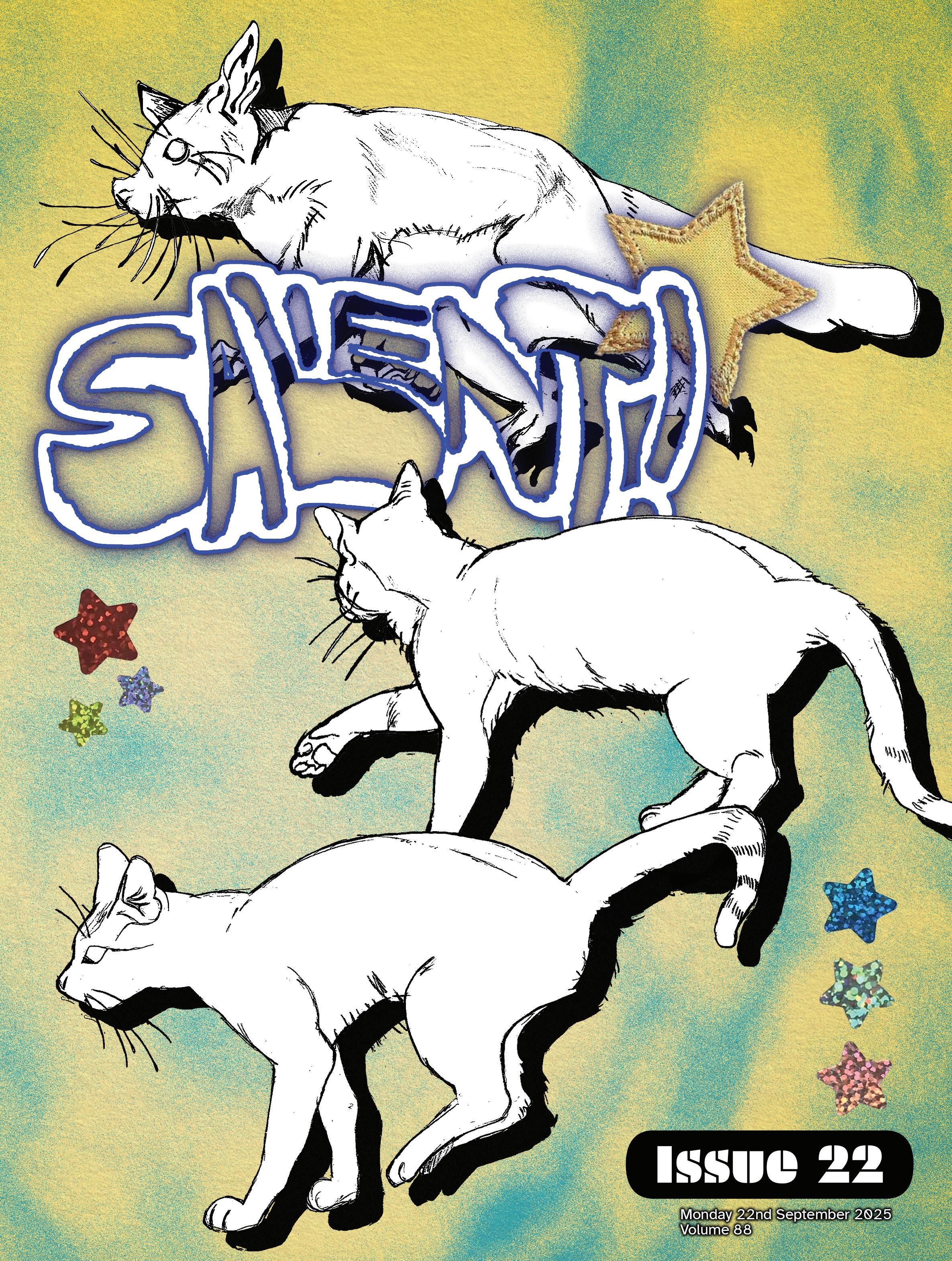
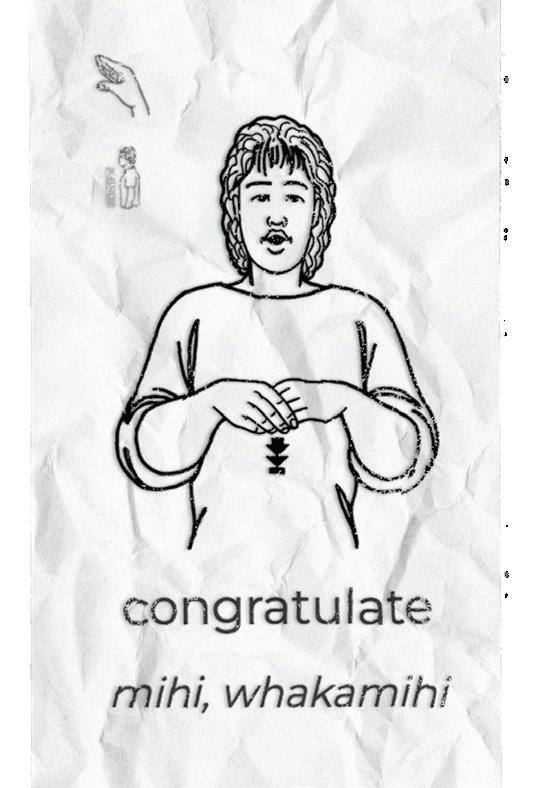
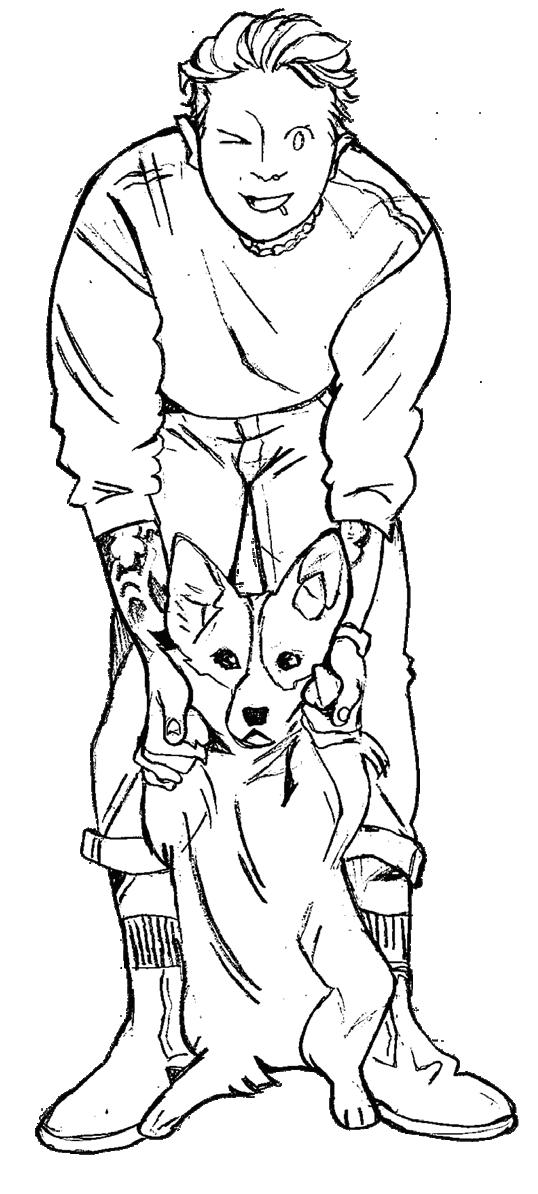




So, we know how much you're all loving Salient right now—and we’ve got the best news EVER: this issue is 56 pages long!
You might be wondering, why 56 pages? Well, it’s not just to celebrate a stellar trimester (though we could). It’s because democracy is going off—seriously, we’ve got more people running in the VUWSA elections than we’ve seen in over a decade. You can have too many cooks in the kitchen, but you can never have too many candidates. Just look at this year’s mayoral elections! [Subeditor: there are far too many candidates in this year's mayoral election]
This issue is absolutely packed with election content. We’ve got 12 pages of candidate introductions, plus interviews with all contested Presidential and Vice Presidential hopefuls (key word is contested—looking at you, ex-Salient alum Ethan Rogacion). On a more serious note, one candidate has received a death threat, and we’ve used that moment to open up a broader conversation about the abuse women face in politics.
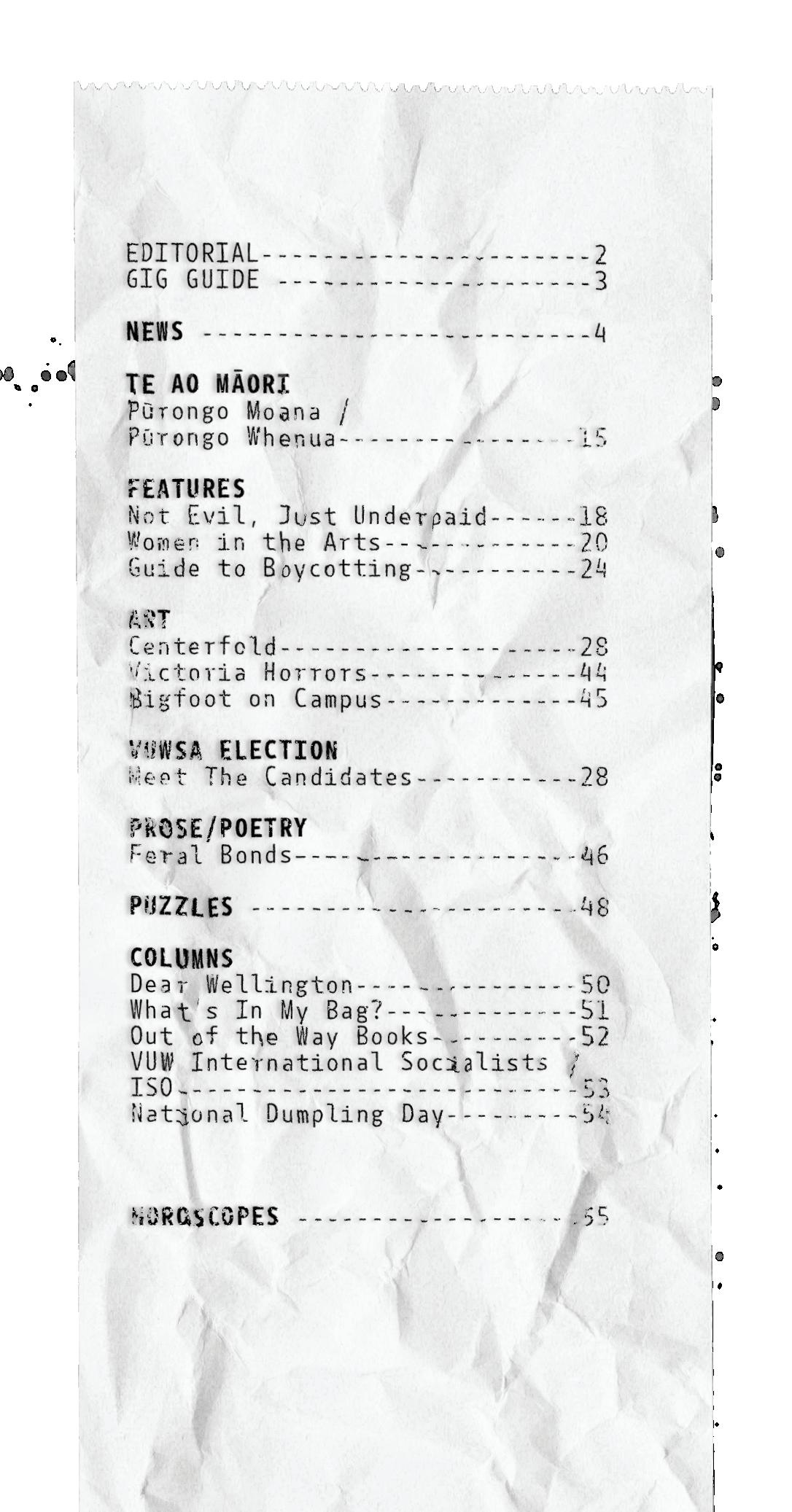
In our features section: Sophie Spencer explores Women in the Arts, featuring her own stunning photography (and maybe a sneaky VUWSA candidate cameo— no spoilers). Pluto Rennie asks whether people are inherently selfish, or if it’s just capitalism doing its thing. Te Urukeiha Tuhua has done the hard mahi testing alternatives to your favourite apps—so you can finally stop being too lazy to boycott Spotify.
Over in the arts section, our favourite comic panelists Jim Higgs and Sophia Knoef return with new additions to Bigfoot on Campus and Victoria Horrors. Author Brigit Nelson brings us a short story titled Feral Bonds. And honestly, there’s always more in the issue than we [Subeditor: Phoebe] can coherently fit into an editorial—so just read it. And if you’ve got thoughts? Send us a letter. We didn’t get any last week, and we’re a little sad about it.
Remember to vote in the VUWSA elections this week—and do your research. Also, don’t forget the local body elections. Democracy is fun, especially when it directly affects your experience at uni and life in Wellington.
[Subeditor: hi Dad!]
Date: Thursday 25 September
Time: 5pm Room: AM101
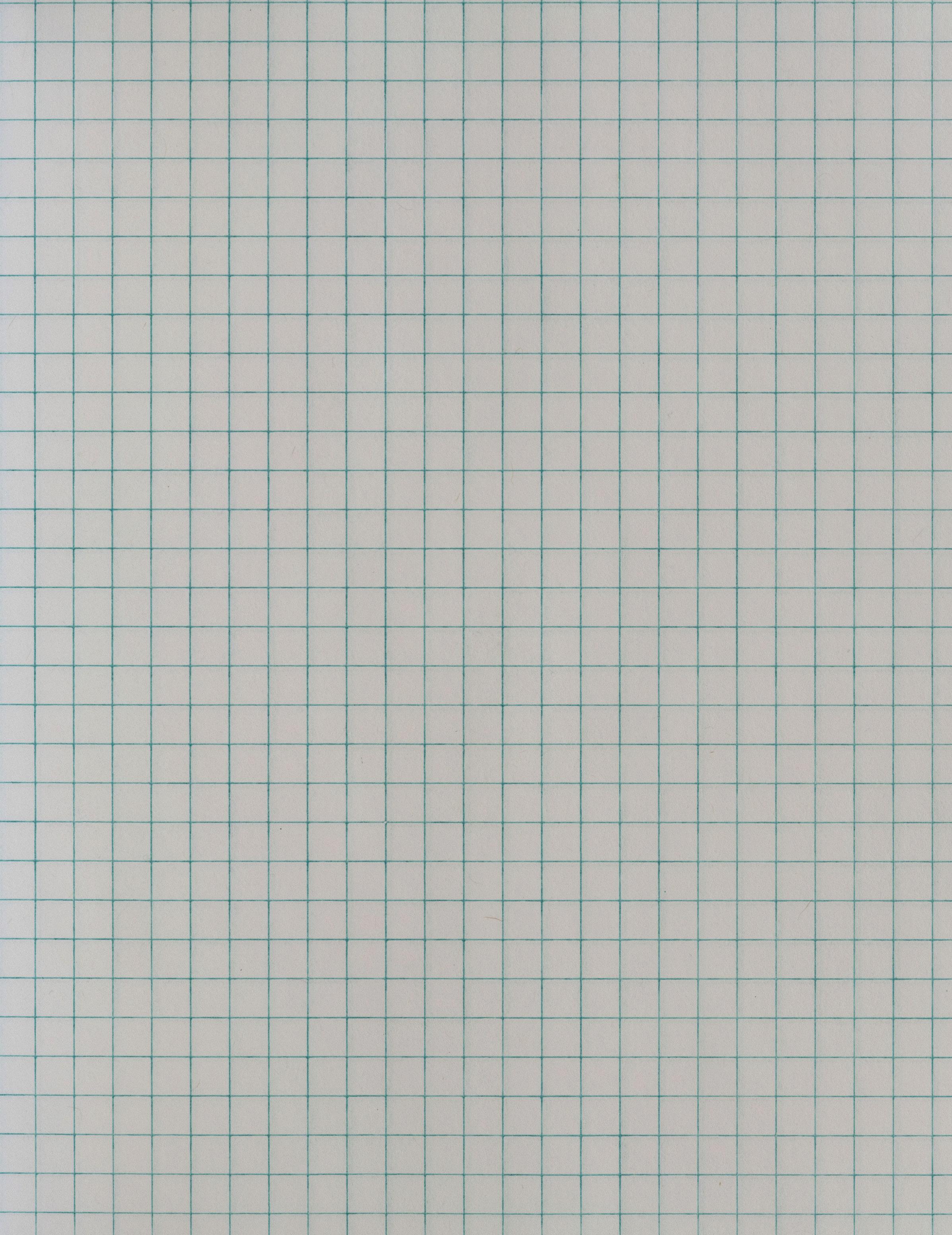
By Phoebe Robertson
Pizza will be provided. To find out more about what exec positions are available and how to nominate yourself, check out @uniqthw on Instagram.
Time: Wednesday 6:30PM location: MooN
Break up the week with a free gig at MooN; let PEBBlE serenade, sooth and transport you. Love In Every City is a folk project steeped in a humanistic sense of joy, love and connection. Contemplate, connect, drink a pint. It will heal you.
Film Screening: The Doctor's Wife
Time: Thursday 6:15PM location: two/fiftyseven Willis St
Pōneke radical Film Club is screening a series of Palestinian films each week: ticket sales go to The Sameer Project, a mutual aid group in Gaza. This week: The Doctor’s Wife, the story of NZ doctor Alan Kerr, who has taken 40 medical missions to occupied Palestine in the last 20 years.
Sigil Sound: The Summoning II
Time: Friday 8:30PM location: Valhalla
Music promoters Sigil Sound are, a year of organising, hitting hiatus; they’re saying goodbye with a grab bag of live artists and DJs at Valhalla: seven artists will take the stage, beginning at 8:30PM - from breakbeats to UK bass, and everything in between.
The RVMES: Boundary Issues Tour w/ Devon Welch + Fortuna And Roy
Time: Saturday 8:30PM location: Meow
Meow is hosting a high-energy album release party from tāmaki Makaurau rockers The RVMES (pronounced The Rooms) this Saturday. Expect a great dancefloor and a fun, genre-defying experience, as The RVMES whirl you from alt-rock to straight up funk.
The Bums Return!
Time: Saturday 8:30PM location: Underworld tavern
Get loud, get (productively, cathartically) angry, get moving: The Bums are back. Think 2010s garage punk: Bass Drum of death, the orwells, Fidlar. Fast-paced, high energy, inarguably therapeutic, incredibly fun.
Stand Up, Sing Back: Music is Protest
Time: Wednesday 7PM
Salvation Army Hall Island Bay
Join musicians Ru Mundy and Jono Manning alongside the For Future’s Sake protest choir for a community singing event, as they lead the group through an interactive history of music as a tool for protest. All proceeds go towards Medical Aid for Palestinians .
Cowboy Dan: Dreams That Feel Like Falling
Time: Thursday 8PM
location: MooN
Fuzzy, jangly, melodic slacker-pop is the name of the game this Thursday at MOON. A breezy gig by four laid back individuals with a new album to show you. Cowboy Dan will be joined by openers Echo Children, delivering a catchy blend of psych and alt-country.
Daily Keno: Love Party! (w/ Frances Grass)
Time: Friday 8PM
Newtown Community Centre
Rock up to the cosy environs of Newtown for a chill Saturday of spaced out, synthheavy dreampop. Daily Keno’s debut album is touching down, alongside the 70s-inspired folk of Frances Grass.
Time: Saturday 7PM location: San Fran
Do you love indie folk but sometimes feel it’s a little… bleak? So do the Folk Bitch Trio. This Naarm-based group adds an upbeat, catchy, often sardonically funny lens to a famously dour genre, and are making a rare trip to Welly. Not to be missed.
Bontempo And Christopher Tubbs
Time: Saturday 4PM - 10PM
location: Cuba St tavern
Get on the dancefloor early this Saturday in the Cuba Tavern’s beautiful courtyard. Christopher Tubbs, absolute legend of the house scene, will awe you; joining is Bontempo, known for her unbeatable 121 sets. This duo will set your Saturday on the right path.
EDITOR
Phoebe Robertson (Acting)
TE AO MĀORI EDITOR
Taipari Taua
NEWS EDITOR
Dan Moskovitz
NEWS WRITER
darcy lawrey
MUSIC EDITOR
Jia Sharma
SUB-EDITOR
Henry Broadbent
COLUMN EDITOR
Georgia Wearing
DESIGNER
Cal Ma
JUNIOR DESIGNER
Nate Murray
FEATURE WRITER
Te Urukeiha Tuhua
SOCIAL MEDIA MANAGER
Teddy O’Neill
NEWS WRITER/POLITICAL CARTOONIST
Walter Zamalis
CONTRIBUTING WRITERS
Ryan Cleland
Saad Aamir
Guy van Egmond
CONTRIBUTING CARTOONISTS
Jim Higgs
Sophia Knoef
CROSSWORD CONTRIBUTORS
Nil
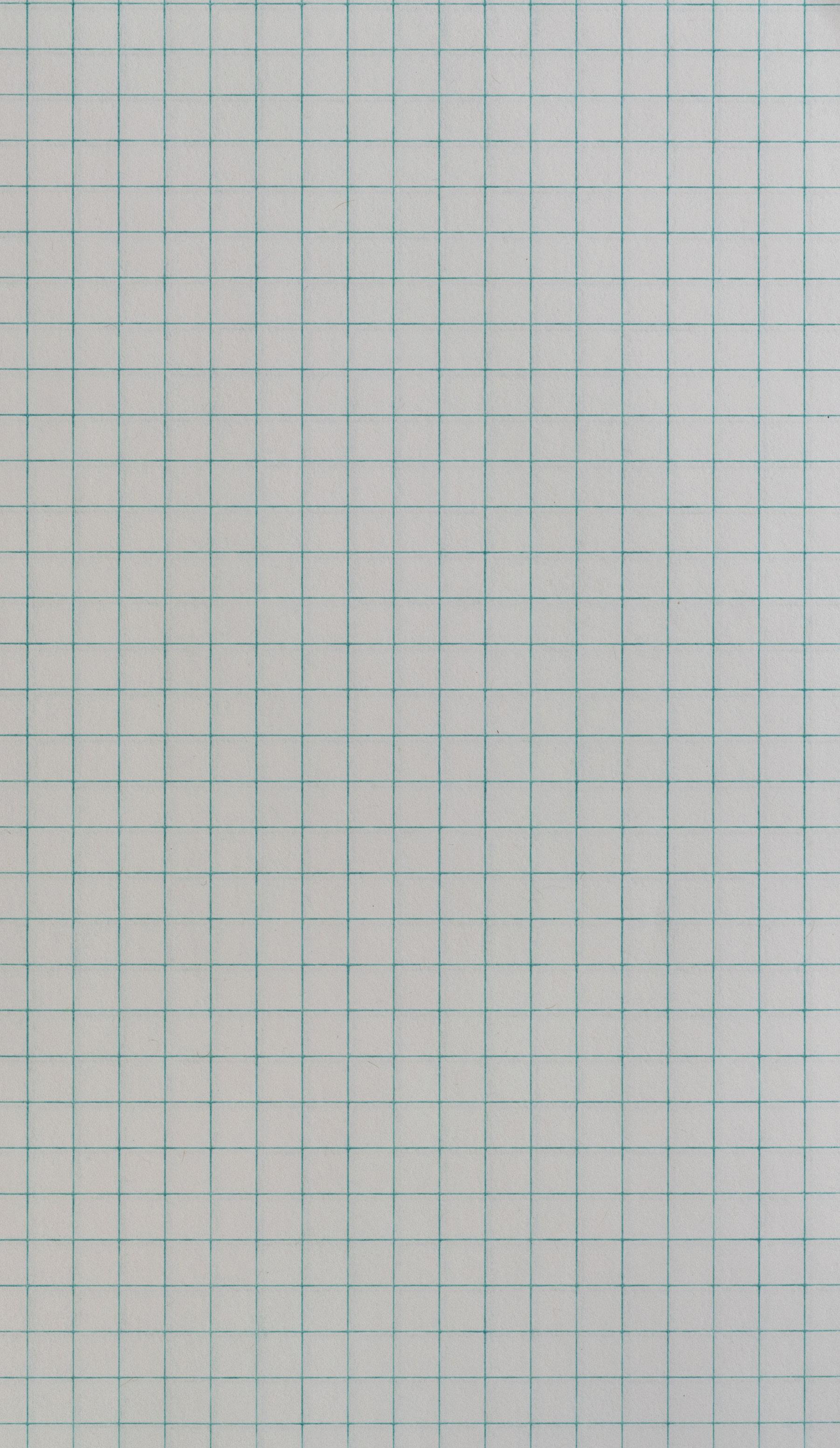
Julia Corston
Holly Rowsell
CENTERFOLD
Elias BatachEl
DISTRIBUTION
Saad Aamir
ADVERTISING SALES
advertising@vuwsa.org.nz
READ ONLINE salient.org.nz issuu.com/salientmagazine
GET IN TOUCH editor@salient.org.nz
Instagram/salientgram Tweet/salientmagazine
Facebook/Salient
LETTERS
Got something to say about the magazine? Want it published? editor@salient.org.nz
Salient is published by, but remains editorially independent from, the Victoria University of Wellington Students Association (VUWSA). Salient is funded in part by VUWSA through the Student Services levy. Salient is a member of the Aotearoa Student Press Association (ASPA).
Complaints regarding the material published in Salient should first be brought to the VUWSA CEO in writing (ceo@vuwsa.org.nz). Ideally, by motorcycle. A letter can also be sent to the editor, for their response/publication in the magazine. If not satisfied with the response, complaints should be directed to the Media Council (info@mediacouncil.org.nz).
‘Resign
Phoebe Robertson
On Saturday 6 September, while students were still nursing beers at the Hunter lounge or cramming for upcoming exams, aría lal—a candidate for Education Officer in the upcoming VUWSA elections—opened their inbox.
What they found wasn’t a campaign query or a policy question. It was a death threat.
The subject line was simple: Resign or die. The body of the email was worse—a torrent of misogynistic slurs, promises of surveillance, and graphic threats of violence. the anonymous sender warned lal that if they didn’t resign from the race, they would be “made an example of.”
Since receiving the message, lal says they have felt an unsettling sense of being watched. While Salient has chosen not to publish the email in full due to its graphic content, its effect has been lasting: fear, hypervigilance, and the suspicion that someone may be tracking their movements.
That anxiety reflects a wider reality in Aotearoa. Until now, stalking has not been a standalone offence under New Zealand law—many behaviours consistent with stalking (surveillance, repeated unwanted contact, monitoring) have instead been prosecuted under laws covering harassment, threatening behaviour, or breaches of restraining orders.
The Crimes Legislation (Stalking and Harassment) Amendment Bill currently before Parliament aims to change that. It proposes: creating a stalking offence in the Crimes Act 1961; expanding the definition of psychological abuse in the Family Violence Act to explicitly include stalking; introducing aggravating factors for stalking and for breaching restraining orders, and; preventing self-represented defendants from personally cross-examining alleged victims.
Justice Minister Paul Goldsmith, in a 2024 interview with the Spinoff, said: “Given New Zealand has not, until now, criminalised stalking specifically, it’s hard to know for sure the number of victims.”
“i just… it took my breath away,” lal told Salient in an interview. “[the email] called me a slut and a bitch three or four times, told me I was being watched, told me I was going to die. It was designed to scare me into silence.”
l al suffered a panic attack. t hen, like so many women in politics before them, they called friends, gathered themself, and began calculating their next move.
lal’s experience is not an anomaly. across campuses and parliaments, women who dare to enter politics face a kind of violence that is both personal and systemic. It’s not opposition—it’s intimidation, calculated to drive them out before they can even begin. These types of threats and harassment, importantly, often make no mention of actual policy issues, merely the fact of the woman’s participation.
In 2023, research from the University of Otago found that every female Member of Parliament surveyed had endured gender-based harassment. Several reported death threats or assaults with weapons— one MP even reported a fake gun aimed at them, at close range. Another MP was told her throat would be cut; others recounted casual rape threats.
Another Otago-led study revealed that 98 percent of MPs had experienced harassment of some kind. Among women, 40 percent faced threats of physical violence, 14 percent threats of sexual violence, and nearly 20 percent had threats made against family members.
These are not relics of a post-Covid polarised past. A 2025 Asia-Pacific study by the Inter-Parliamentary Union revealed that 85 percent of online attacks on women MPs came directly from the public, often accompanied by psychological harassment and explicit threats.
It’s a dynamic that student leaders know well. Former VUWSA President Marcail Parkinson wrote in Salient about the torrent of misogynistic abuse she faced after questioning the makeup of a debate panel. The messages weren’t just from anonymous trolls; they came from peers, mutual acquaintances, even politicians. the pattern was the same as what lal is now experiencing—attacks on her appearance, her legitimacy, her right to speak.
In 2018, Green Party co-leader Marama Davidson endured rape and death threats targeting her and her children after she condemned far-right speakers. Auckland Councillor Josephine Bartley, the first Pacific-Islander woman on her council, received violent threats over her role in the local COVID-19 vaccine rollout.
And during the 2023 general election, violence escalated: list MP Angela Roberts was physically shaken and slapped at a debate. Hana- r āwhiti Maipi-Clarke, a te Pāti Māori MP, experienced a home invasion in which her property was vandalised and a threatening letter was left behind.
During her time in office, former Prime Minister Jacinda Ardern was frequently targeted by online abuse. Police prosecuted eight individuals for making death threats against her, and surveys indicated that 92 percent of abusive political posts were directed at her.
the threats are gendered to their core. as lal notes: “You never call men sluts or bitches. It’s almost always women.”
This is a playbook older than suffrage: reduce women’s political presence by attacking their bodies, their sexuality, and their safety. It is designed not only to terrify one candidate—it’s to send a message to others: don’t even try.
At Victoria University, as elsewhere, this logic threatens to turn student politics into another arena where misogyny quietly wins.
“My concern is that women will self-censor or withdraw from elections because of this,” lal said. “And that should never be the case.”
despite the terror of that Saturday night, lal is not stepping down.
“I think it would be foolish to give them what they want,” they said. “If 60% of our student body are women, then 60% of our exec should be too. Representation shouldn’t even be a question.”
The university has provided additional security, and VUWSa has rallied around lal, but the support has its limits.
“It’s overwhelming,” they admitted. “I wish there was something that could be done so no one ever faces this again. But I’ve already been told it’s happened before—and it’s likely to happen again.”
Green Party MP Tamatha Paul, who has herself been at the centre of political firestorms, says she recognises lal’s experience all too well. “Earlier this year, when I raised community concerns about policing practices in central Wellington, I was met with an avalanche of rape and death threats. People literally said to me: ‘I hope you get raped so that you have to go running to the police.’ That is the kind of vitriol wāhine Māori in particular are subjected to. it is insidious, it is normalised, and it is dangerous.”
For Paul, the escalation is not random—it is fuelled by the rhetoric of political leaders and amplified by social media platforms. “When leaders like Winston Peters and David Seymour stoke the flames, it creates a permission structure where people think it’s okay to dehumanise and abuse people. I’ve noticed that wāhine Māori like myself, Hana-rāwhiti or Tory Whanau appear to be routinely in the firing line.”
Paul argues that this isn’t simply a matter of online nastiness, but a democratic crisis. “let’s be real— wāhine Māori face far greater scrutiny than the men in suits they work with. For us, it’s interrogation and unsolicited comments on what we are wearing, how we said things, how emotional we are, what we do in our personal lives, and just flat out gendered violence and abuse. How have we become so desensitised to threats of abuse and death threats when women MPs have been murdered for being in positions of power?”
lal doesn’t want their campaign to be defined by the attack. But they also don’t want it ignored.
“This shouldn’t be about saying, oh well, that’s the risk women take,” they said. “It should be about why women need to be in politics in the first place.
Because if our very existence threatens someone enough to send a death threat, then clearly we’re pushing against something that needs to be broken down.”
For lal, the greater danger is not just the immediate fear, but the effect it could have on others. “The main risk is that women will start to self-censor or withdraw from politics altogether because of threats like this,” they said. “When you put your hand up, your safety should be guaranteed. Political coercion should not be part of student politics.” lal believes these kinds of attacks are designed to isolate women, to single them out, and to send a warning to anyone else considering the same path.
Around the world, from New Zealand MPs to American congresswomen, women in politics receive exponentially more abuse than their male counterparts. Some step back; others harden their resolve.
lal is choosing the latter.
“I want to see more women on the exec,” they said. “I want women to know they belong in these spaces, even when someone is trying to tell us otherwise.”
The email told them to resign or die. Instead, they’re still running—not just for themselves, but for every woman who might think twice before putting their name on the ballot.
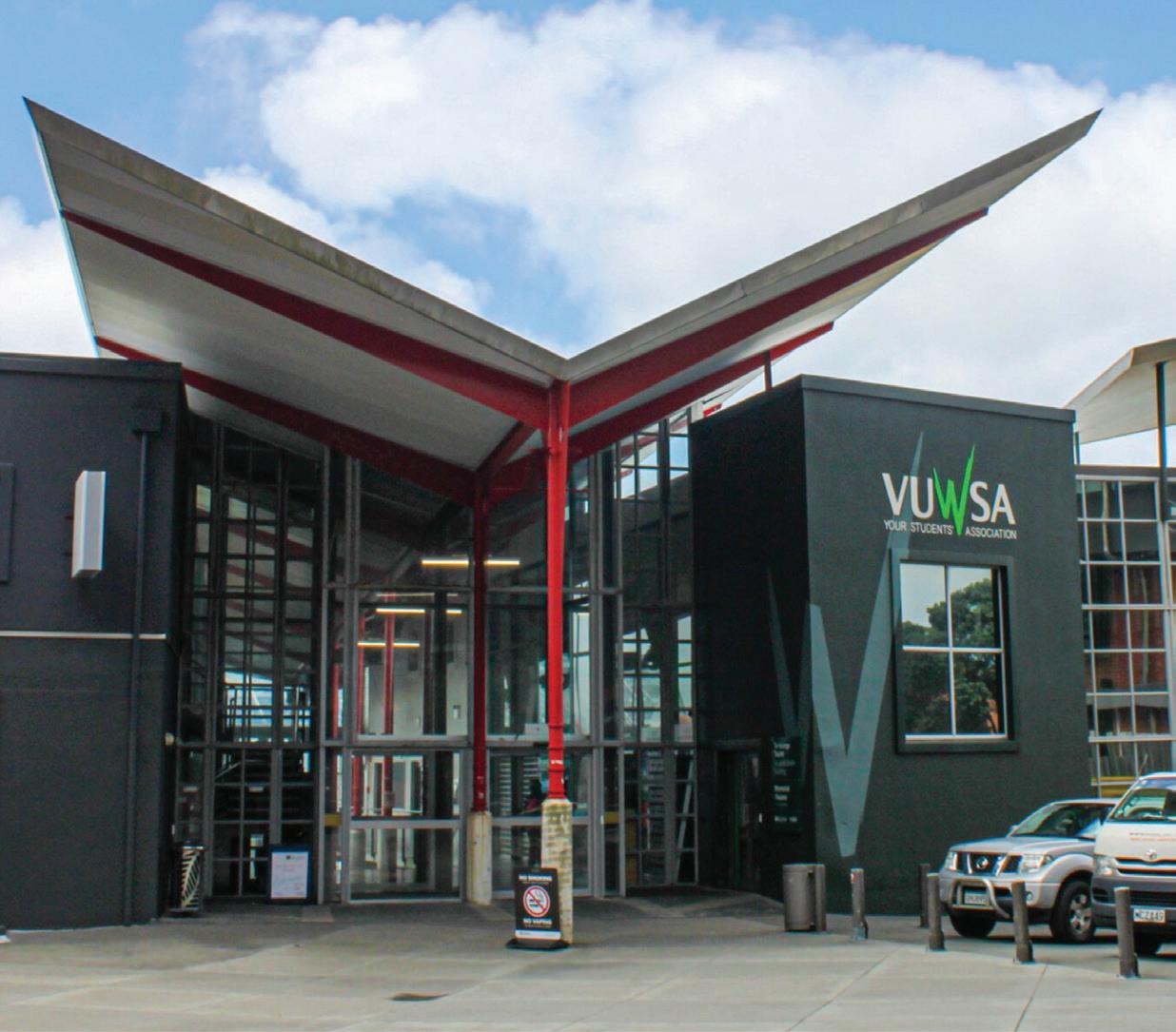

CW: Genocide, Crimes Against Humanity
Israel’s genocide in Gaza is fast approaching the two-year mark. As we watch the mounting horrors— the mass killing, the starvation, the occupation— through our screens, it is easy to feel hopeless. It is easy to be convinced that there is nothing that can be done when a genocidal state is given impunity, despite a global popular movement in support of the Palestinian cause. But we must not let our anger and disbelief become apathy.
The struggle for Palestinian liberation has been going on for decades, and its leaders past and present have articulated many modes of solidarity. One of these is BDS: an effective and accessible way to make a material difference.
What is BDS?
Boycott, Divestment, Sanctions (BDS) is, according to bdsmovement.net, “a Palestinian-led movement for freedom, justice and equality. BDS upholds the simple principle that Palestinians are entitled to the same rights as the rest of humanity.”
The BDS call comes from a coalition of Palestinian civil society organisations, asking individuals, businesses, institutions, and states to boycott, divest from, and sanction Israel. These non-violent actions apply economic and cultural pressure on Israel to end its reign of apartheid of the Palestinian people and comply with international law.
BDS and the university
BDS requires scale to be effective. That means buyin from all levels, from individuals to states.
Targeted consumer boycotts with mass buy-in can be effective—check out @bdsaotearoa on instagram or bdsaotearoa.nz for a guide on local targeted boycotts. leveraging our affiliation to institutions can allow for even more powerful BDS action.
last year, SJP Pōneke led a successful campaign urging Te Herenga Waka to divest the ~$50,000 worth of Israeli Government bonds it held in its investment portfolio. It is imperative that the university treats this move away from complicity in war crimes as a commitment, rather than a single action. To do so, the university can adopt a formalised policy to adhere to the BDS guidelines in its investment and procurements.
Beyond severing their financial ties to Israeli war crimes and apartheid, universities have an important role to play in the cultural and academic boycott of Israel. Israeli universities are a key component in
legitimizing and serving Israel’s military and settlercolonial interests. The BDS movement specifically calls on academics and universities not to form collaborations with Israeli universities. This doesn’t mean discriminating against academics with Israeli nationality, but severing institutional ties that serve to enable Israel as an occupying force.
Aren’t universities supposed to be politically neutral?
The BDS movement highlights that complicity in occupation is an active choice. This means that there is no politically neutral position for a university to take: either it leaves the door open to having financial and academic ties to Israel, or it makes a commitment to reject complicity in genocide.
The University of Canterbury’s Academic Board passed a motion advising UC governance to divest from and disclose affiliations with companies or organisations complicit in Israel’s violations of international law, and suspend any academic or cultural collaborations with Israeli universities. Victoria’s Academic Board can—and must—do the same.
What can students do?
This Tuesday, Te Herenga Waka’s Academic Board will vote on a motion to endorse BDS at the university. The motion includes a directive to the university’s governance to divest from Israel and any companies aiding in human rights abuses and suspend relationships with Israeli institutions.
Students can’t vote on the Academic Board, but we can be a visual presence to hold academics accountable.
1. Show your support for the Academic Board motion by attending the meeting in person. Come to the Hunter Council Chambers at 1pm on Tuesday, September 23rd to show your support for the motion.
2. Participate in the Global Financial Strike for Gaza: spend no money on any Thursday to send a message to global markets that the genocide must end.
3. Email MPs urging them to support Chloë Swarbrick’s Bill To Sanction Unlawful Occupation of Palestine
Note: Charlotte lawrence is also running for the role of Engagement Vice President. She did not respond to Salient’s queries.
Salient Team
Why are you running for the role of Engagement/Welfare Vice President?
ENGAGEMENT: Inigo Catu said they were running for Engagement VP due to hearing “the struggles of the student body on an everyday basis,” and wanting to “to create a better, less stressful environment for current and future students.”
ENGAGEMENT: George Baker said VUWSA needed improvement in the engagement space. His ideas included more events at Pipitea and Te Aro campuses, ensuring campaign sustainability, and having more events aimed at specific groups of students.
WElFarE: aspen Jackman said that, alongside finding prior advocacy deeply fulfilling, she struggled in her first year, and wants to prevent other young students from experiencing the same hardship. As a trans woman from the Waikato, her lived experiences have also been a key motivator.
WElFarE: Simeon Collier-Foley said they have seen the positive impact VUWSA can have and, having struggled obtaining appropriate healthcare in the past “and faced additional challenges due to my transgender identity”, is particularly motivated for the Welfare role. They cite strong ties with advocacy and activist groups across Pōneke.
What is the role of Engagement/ Welfare Vice President?
ENGAGEMENT: Catu said the role is to represent the student body “via advocating for the rights and needs of students.” Catu also said the role was about ensuring a united student body where opportunity was spread equally throughout the cohort.
ENGAGEMENT: Baker said the role was about facilitation and platforming, and promised to constantly consult students and clubs about campaigns. He added how he wanted to try and make campaigns last beyond the term of a single VUWSA executive.
WElFarE: Jackman sees the role as both a place for leadership, and as a means for student engagement. She will advocate for students, and create practical change focused on directly improving accessibility, safety, and inclusivity across university spaces.
WElFarE: Collier-Foley said the role is to act as a student representative, responsible for advocacy and organisation. A Welfare VP should ensure students feel safe in “an ethical and sustainable environment,” and that assistance—surrounding finance, housing, healthcare, and holistic wellbeing—is readily available.
What are the key commitments of your campaign? Can you provide any data, anecdotes, or budget to demonstrate feasibility?
ENGAGEMENT: Catu stated they didn’t want to make unrealistic expectations, but focus on what was ‘realistically obtainable.’ They stated livable prices,
obtainable basic needs, student jobs, more positive university experiences, accessible university sources, and “higher standards of the bare minimum,” were focuses.
ENGAGEMENT: Baker said his priorities was to host more events outside of Kelburn and to form a working group for the 2026 election “with student representatives from all over the university, to create a declaration of demands to present to aspiring politicians.”
WE l Far E: a central commitment of Jackman’s campaign is the establishment of a dedicated women’s space, an initiative she is excited about, and says has broad support from women and gendernonconforming students. She is also interested in establishing gender affirming healthcare via student health, alongside expanding the Thrive not Survive initiative, which aims to expand student discounts across the city and provide loan relief.
WElFarE: Collier-Foley said they were committed to continue ongoing work with the Free Fares campaign to arrange cheaper public transport for students. They also cite the on-campus community garden (begun by the current sustainability officer) as an amenity they will focus on as Welfare VP, in collaboration with “the sustainability team, and māori studies staff who have research underway into a māra.”
The cost of living in Wellington is projected to keep rising—what actions will you take to reduce student poverty?
ENGAGEMENT: Catu said they wanted to “make sure there are permanent results of improvement by hosting fundraising events, food drives, clothing drives, and protests that advocate for the basic living needs of students in Wellington.”
ENGAGEMENT: Baker promised to work alongside unions and campaigns like the living wage to ensure fair compensation, and said he would continue VUWSA’s fight to extend the Winter Energy Payment to students. He also mentioned supporting initiatives like the Winter Clothing Drive and engaging with charities and businesses to “score more free essentials for students.”
WE l Far E: “ a n election year”, says Jackman, “is awesome, with heaps of opportunity to push parties to commit to policies that will decrease the cost of living for students.” Her aim is set higher than simple price caps or GST reductions: instead, she sees the election as a crucial context that will allow her to push for commitments around supermarket pricing, advocate for tax reform, and advocate to support “not just students: all people in poverty.”
WElFarE: Collier-Foley reiterated their commitment to reducing public transport fares for students. They also stated they are committed to the expansion of student hardship grants, alongside increased access to food parcels, and expressed a desire to work alongside the Council to reduce housing pressure.
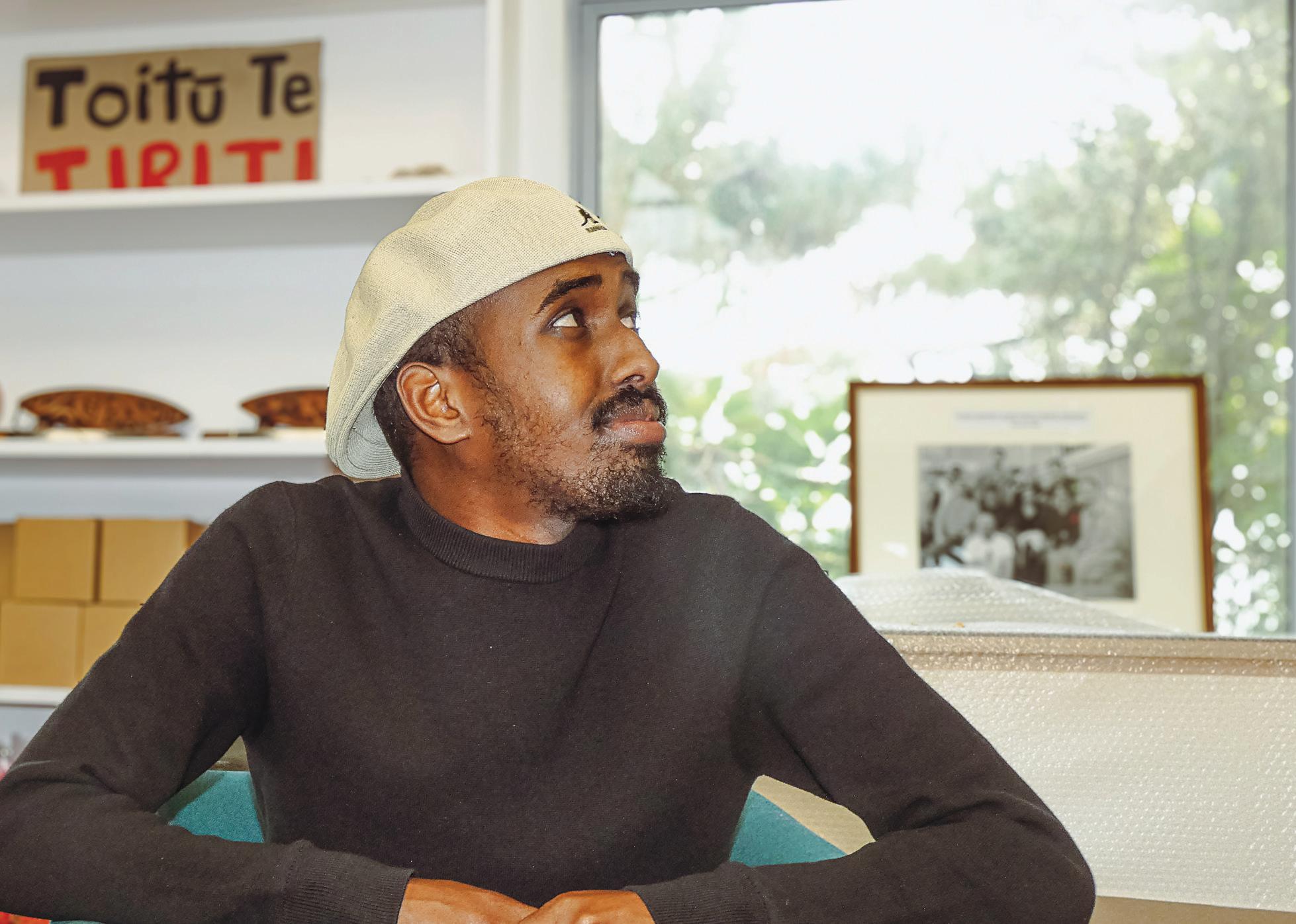
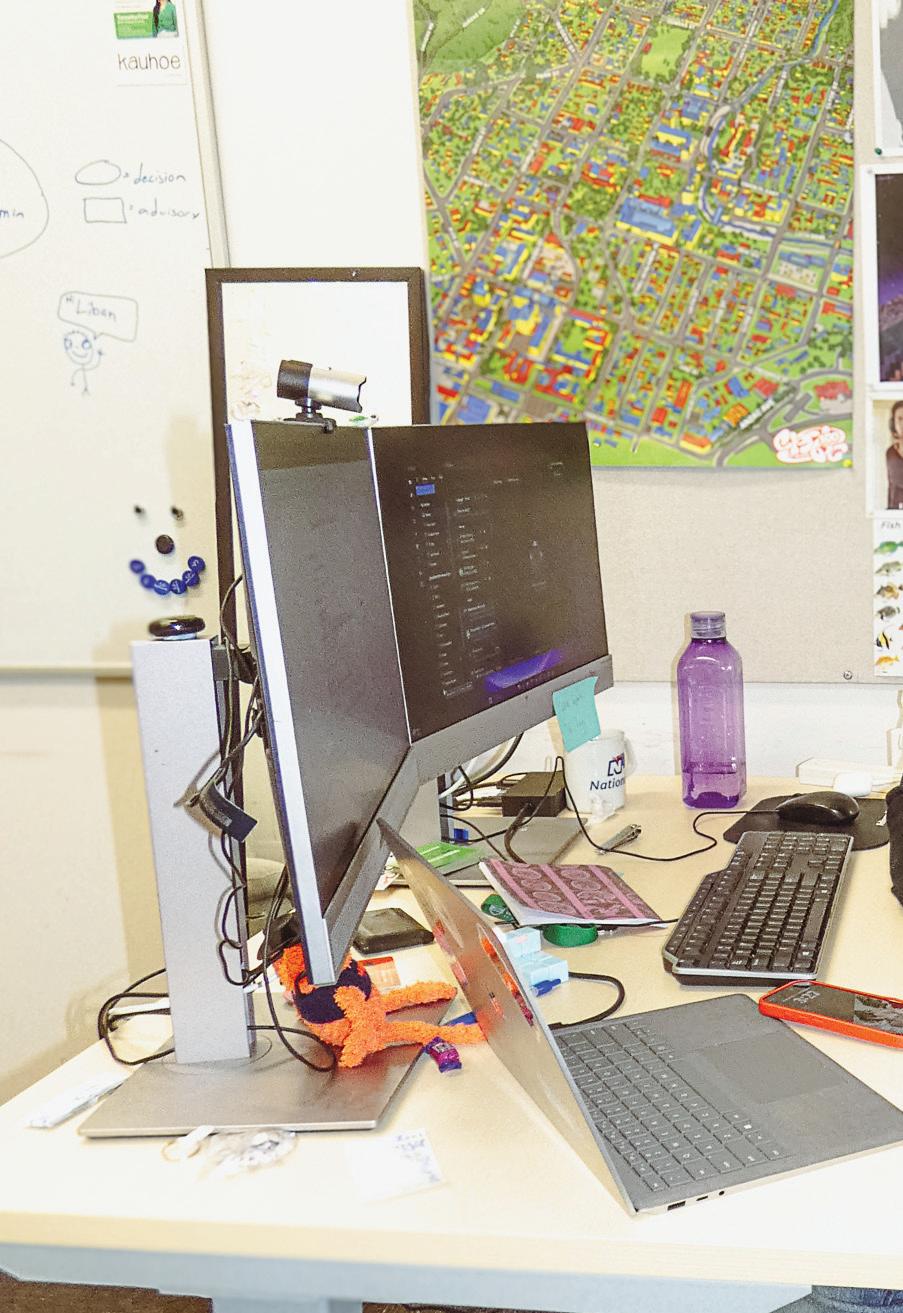
The trend of ‘everything getting more expensive, all of the time’ is set to continue, with Vic’s tuition fees rising by six percent next year. By law universities have caps on how much they can raise fees each year. Between 2018 and 2024 said cap varied between 2 and 2.8%. 2025’s cap?
Six percent. Subsequently, course fees are rising six percent this year as voted on by the University Council last week, because of course they are.
Vic’s financial situation is admittedly precarious.
A briefing by the Tertiary Education Commission, released under the OIA, revealed Vic is considered a financially ‘high-risk’ institution. So fee rises were expected.
What wasn’t expected was how the move blindsided VUWSA, who were not consulted whatsoever.
This was in stark contrast to the student levy fee increase, which according to University Council student rep William Bell-Purchas involved months of consultation. Different options and their impacts were looked at; the eventual rise had VUWSA’s seal of approval. By way of contrast, both VUWSA President liban ali and Bell-Purchas found out about the six percent rise shortly before it was voted on.
“Universities aren’t legally required to consult students, but on the things which are really important, they’ve been doing it all year with us,” said Ali. “So it was weird for them to move away from the norm for this specific, really massive thing.
I was very annoyed.”
“It’s a trust relationship. We’ve randomly taken this massive detour from something we should have informed our student body about. I don’t want to speculate, but I think the surprise made it easier for them to not get any pushback from students.”
While the university doesn’t have to consult on fee increases, the government does when mandating the maximum allowable fee increase. A university spokesperson told Salient they would in future ensure VUWSA and students were aware of the government’s consultation period, but did not promise consultation with students before raising its own fees.
Both Bell-Purchas and Ali laboured the point that while the university should have consulted students, ultimate blame lay with the government for its underfunding of the tertiary sector.
“We’re going to get to a point where they start to cut back on the humanities because we won’t be able to afford to fund those as much,” said Ali.
A university spokesperson confirmed much of what Ali and Bell-Purchas said.
“For 2026, the government has removed funding and has instead set targeted increases for certain subject areas, primarily science, teaching, architecture and design, engineering and mathematics.
“Students taking arts and humanities courses represent a substantial portion of our total students, so the impact of this change in funding is significant. It also comes at a time when inflation is high, and costs are higher for our students, staff, and suppliers.
“Overall, this situation has created a significant shortfall of revenue compared to other universities in New Zealand who are able to charge higher tuition fees for these subjects.”
Minister for Universities Shane Reti did not respond to Salient requests for comment.
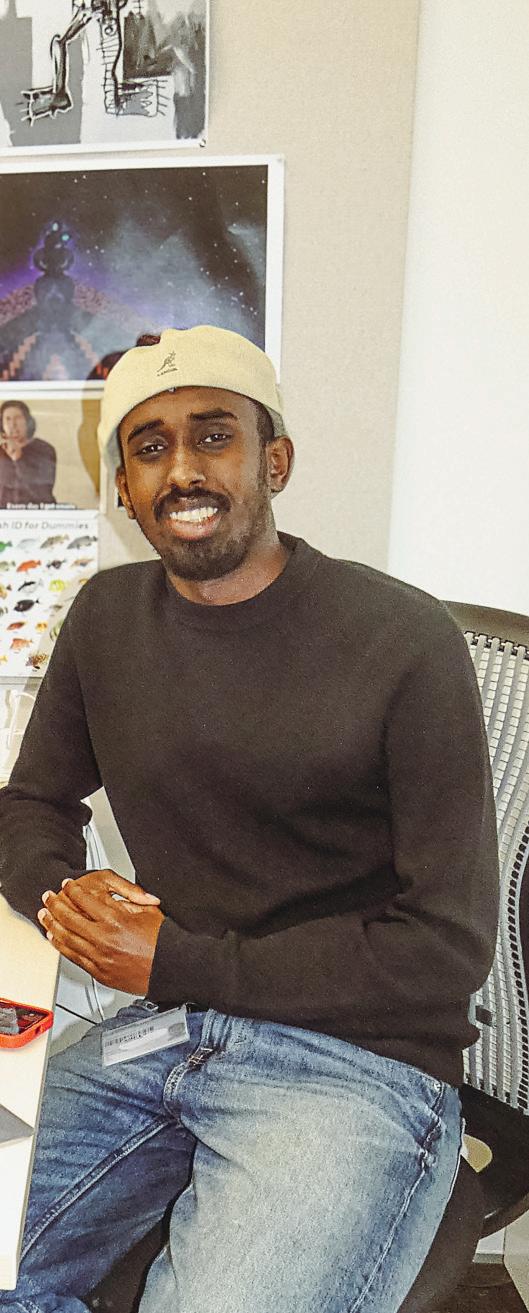
VUWS a President liban ali isn’t a hard man to pin down. In the wake of the passing of Robert Redford of All the President’s Men fame, it seemed at first glance like sacrilege to flub such a treasured journalistic snowclone. And yet in his office last Wednesday i was treated once again to liban’s generosity and openness.
Not to play on Redford again, but seriously, there is no Committee to re-Elect the President. liban is not running again; this is his last interview as VUWSA Prez. I’m lucky to hear what he has to say.
liban ali welcomes anyone, even blood-sucking amateur journos from across the Student Union building corridor. We sit down in his cosy office, adorned with the type of material you’d expect. I see framed newspapers, tEU water bottles, toitū te tiriti placards, Adam Driver memorabilia (no, I’m serious), as well as a cheeky “propaganda corner” featuring posters mocking Nicola Willis, our beleaguered Finance Minister. My heart sings. It’s a hodgepodge of three years of impassioned VUWSA service that comes to a bittersweet conclusion at the end of this trimester.
First: a quick recap on liban. Brought up in Naenae, liban was first elected to VUWSa in September 2022 as Clubs and Activities Officer in a landslide, with 671 votes to 83. He subsequently became Welfare Vice President the following election year. running unopposed, liban was elected president last September with 853 votes. After graduating with a Bachelor of Arts in criminology in February, he got to work. He has a strong relationship with all the members of his executive, whom he credits for having “bounced back amazingly from COVID” in the past few years he has shared with them—and his trusty sidekick Matt Tucker, the VUWSA CEO.
i describe last year to liban as VUWS a ’s “year of challenging”—a time in which students stood up and challenged our new government and its reactionary policies towards students, Māori, takatāpui, and working class people. We discuss the wave of protests that swept student life, from the campaign to get Te Herenga Waka’s tutors and cleaners paid a living wage all the way to the Hīkoi mō te t iriti. a s president of VUWS a , liban has almost a contradictory relationship with the status quo—he’s learnt to work with it. So I ask him what he sees 2025 as having been for VUWSA.
“i think” says liban, “it’s been a year of all round”. He’s not wrong. From the get-go expecting “a lot of change on how VUWSA does things”, he and his crack team have delivered. But we both agree the way VUWSA communicates with students has been the most pronounced and successful change. This year’s student engagement strategy has been an overwhelming success.
Previously, engagement and social media strategy at VUWSA were inefficiently structured, with the bulk of the work falling on an already overworked president. At the beginning of this year, the exec decided to redirect the responsibility of VUWSA’s social media to engagement, who have more time and energy to put into growing an effective social media presence. t here has been a noticeable shift; liban notes VUWSA’s Instagram is now “constantly putting out content”, with a more light-hearted and satirical tone that resonates with students and brightens their usual doomscroll. The Where’s the Work campaign, which combined banners hanging over motorways with posters and interviews, provoked national headlines. Above all, it marked a paradigm shift in
how Te Herenga Waka sells itself to New Zealand as a whole.
With a hostile government fostering anti-Wellington rhetoric, liban makes no secret of how being President in 2025 was always going to be “pretty political”, but notes that this time it feels different. The brainchild for the Where’s the Work campaign emerged amid a tough job economy, which liban argues has been significantly worsened by cuts to postgraduate programs. Students are badly overrepresented in the current exodus to the land of aus, and liban’s tenure has promoted the good will and energy that matches the heyday of pre-COVID, a kinder and more economically prosperous times. 30,000 New Zealanders left for Australia in the past year, amid a toxic media environment that constantly decries Wellington as “dead” or “on its knees”.
liban will never buy into that mindset—he's loyal to our city. He is in fact unusual among recent VUWSA presidents in that he is a born and bred Wellingtonian. As part of the “commuter community” of students in the greater Wellington metropolitan area, liban feels a strong need to advocate for students who take trains and buses from the Hutt. As a denizen of Naenae, he’s also routinely showed up for his community out there, such as his stalwart support for ongoing living Wage Movement action against Naenae employer resene Paints ltd. With the difficulty of taking time for yourself amid the drama of round-the-clock student union work, leadership and advocacy, liban says that “being able to connect to home is essential to maintain that balance ... Flatting in Central Wellington would put me right up close to the issues—you end up needing space between VUWSA and your personal life”.
There has been a surge of enthusiasm for VUWSA recently, with an exceptionally high number of nominations for its executive ahead of the elections between 22 and 25 September. What’s the one word of advice liban will give to the 30 different candidates?
“I want to reiterate to all candidates that at the end of the day student politics is not that deep”. Having led a “like-minded team open to new ideas”, liban is excited by the possibilities the huge new cohort of candidates and their supporters bring. “This space will not evolve and change if new people do not come in and provide new ideas. I understand we can stick to the status quo to start, but [it] can be adapted for better outcomes.”
The introduction of instant-runoff voting for VUWSA elections will minimise the chances of a “massive popularity contest”, as liban puts it, when one candidate gets all their friends to vote for them in an election with otherwise low turnout. Instead, boosted engagement and a fairer ranked-choice voting system allows all the diversity to be heard and candidates to be elected fairly.
overall, liban notes how fast the year has gone. i ask him if he can summarise how he feels in one word. “grateful”. if knowing liban for the last year has taught me anything, it’s that being kind and lending a hand to our community and city goes a long way. From the reels of TikTok and Instagram to Where’s the Work, the year of challenging has turned into a year of hard mahi, in which VUWSA has grown much closer to students. A new generation of VUWSA exec members, bursting at the seams, is waiting at the ballot box. I like to think it’s kind, good people like liban who have made our futures here in our resilient metropolitan city a little more hopeful.
Phoebe Robertson (she/her)
On 15 August 2025 at 10:20 p.m., Craccum’s managing editor lewis Creed issued a press release calling for a Special General Meeting where students would vote on whether Auckland’s student magazine should leave the Auckland University Students’ Association (AUSA) and reincorporate as an independent society. Four days later, on 19 August, editorin-chief Harry Sutton published a personal statement rejecting the idea, downplaying the financial crisis, and insisting independence was rash. He retracted the post the next day after a furious backlash from his colleagues.
For digital editor lee li—the third member of Craccum’s three-headed masthead—the betrayal cut deeper than a bad call. “Harry posted [the statement] without consultation to me and lewis, and we told him not to,” she recalled in an interview on 21 August. “The reason he dropped out [from supporting independence] was because the AUSA general manager had a meeting with Harry and left us out—to intimidate and cause division.”
On paper, Craccum is designed as an egalitarian newsroom. All three editors are appointed by the Craccum Administrative Board (CAB), each contracted for 15 hours per week at $24.50/hour, down from $27.80/hour in 2024. “Sometimes i work 30 hours,” li said. “But that’s OK, because I know it’s important. I’m not just doing it for money.”
In practice, the structure limits them. CAB is chaired by AUSA’s Engagement Vice-President and includes the Association Secretary, an academic, an industry appointee, and the editors—who collectively share just one vote between them. Other members of the editorial team may attend only if the chair permits, and even then, they do not vote “We have repeatedly been excluded from decision-making and consultation,” li wrote in one of several emails in late August.
This is the paradox: three editors with identical contracts, but when it came to the biggest decision in nearly a century of Craccum’s history, they found themselves divided, and one of them acted unilaterally after a meeting from AUSA’s general manager.
What makes this fight combustible is not just governance but money. Each editor has cited a different figure for Craccum’s budget:
• lewis Creed told students the magazine’s budget was $150,000, and that sudden cuts in 2025 had triggered the push for independence .
• Harry Sutton, in his 19 August statement, cited $116,826 for 2025 and $117,000 for 2026, calling it “not a loss, not a real gain” .
• lee li said the numbers were “misleading” and pointed to official Student levy consultation documents that listed $150,000 for Craccum in 2025 while Sutton insisted it was $116k. “The numbers don’t add up,” she said. “We’re trying to figure out where that $30,000 went.”
To resolve the contradictions, I wrote to the University of Auckland media team on 21 August asking directly which figure was correct. Their written response on 26 August confirmed that:
• t he 2025 Student l evy consultation documents had indeed provisionally listed $150,000 for 2024;
• AUSA later told the University the final 2024 allocation was $124,575;
• The figure “as submitted for the 2026 consultation review” for 2025 is $116,826;
• AUSA advised the University that there was no plan to reduce funding between 2025 and 2026, but the University admitted it had no detailed 2026 forecast in hand.
The University also acknowledged that the consultation documents wrongly described Craccum as “weekly,” which it called an “oversight” .
When I put the same questions to AUSA and CAB members, including where Sutton’s $116,826/117,000 figures originated, I received no replies. Multiple emails over the week of 21–25 August—including direct requests for CAB membership lists to follow up with individuals— went unanswered.
What this means is that the original trigger for independence—a “cut” in 2026—never formally existed. The University is clear: funding is

flat between 2025 and 2026. But for editors inside Craccum, the sense of being cut is not an illusion. They saw their pay rate drop, their hours capped at 15, and their print schedule collapse to just seven issues in Semester Two. they watched as Student levy documents said $150,000, while only $116,826 made it through. In their eyes, the missing $30,000 was proof of structural neglect, even if the University frames it as a difference between provisional and final allocations.
That gap between what’s on paper and what’s lived in the newsroom explains the rift. Creed and li reacted to the reality of fewer pages, fewer roles, and tighter controls; Sutton reacted to the official spreadsheets. Both can claim to be right. But only one side saw their staff, their contributors, and their output shrinking.
li and Creed also complain of reduced independence: “We don’t have advertising control—ads run that we don’t find appropriate. We don’t have access to a Craccum bank account. We have to pay and then be reimbursed,” li said. Complaints go beyond day-to-day frustrations. In 2024, AUSA amended its constitution to add a line that Craccum’s “editorial independence” applies only insofar as content does not result in “legal, reputational and/or financial trouble” for the Association. In 2025, that language was lifted directly into Craccum’s staff contracts.
the way it was done, li and Creed said in a joint statement, undercut Craccum. The “reputational harm” change was not debated as a standalone amendment. Instead, it was folded into a package of constitutional updates described in the meeting minutes only as “some changes driven by the Incorporated Societies Act.” No one explained to members that the effect of those words was to give AUSA the power to shut down any Craccum story it judged reputationally damaging.
This is the heart of the incorporation push. “Seeking editorial independence is one of the key reasons we want to become an Incorporated Society,” li and Creed wrote in an email on the 25 of August. “Incorporation would grant us self-governance, which in turn ensures editorial independence. The idea is that being
an Incorporated Society would protect Craccum from AUSA amending their constitution to interfere with Craccum’s governance. This was how our editorial independence was eroded in the first place” ( Craccum independence statement, August 2025).
li and Creed see two possible paths forward. The first is full incorporation: drafting their own constitution, electing their own officers, and writing in explicit protections—like mandatory Māori and Pasifika editor roles—that can’t be quietly deleted. Under that model, Craccum would still contract with the University for funding but would no longer sit under AUSA’s constitutional umbrella. The second path is reform from within: a motion at the SGM to restore the pre-2024 clause guaranteeing “complete editorial independence” and to codify it more strongly inside AUSA.
But even that “stay” option, they warn, is fragile. A strong SGM resolution could restore independence, but a simple majority at AUSA’s next AGM could strip it back out. “In that scenario,” the editors wrote, “the proposed changes could easily be undone within a year at the next AGM, so it would be important that Craccum would have an on-going strong lobbying presence and turn out at AUSA meetings to maintain our funding and freedom.”
That fragility is why the “reputational harm” clause looms so large. In a single stroke, it turned editorial independence from a right into a conditional privilege. For lee and Creed, the lesson is clear: as long as AUSA can rewrite its constitution without debate, Craccum’s ability to report critically is compromised. Incorporation, they argue, would prevent that ever happening again.
Ultimately, the decision now lies with students. “The ultimate decision for the future of Craccum will be up to UoA students to vote how they want their student magazine to operate and be governed,” the editors wrote. “We welcome debate about these issues because student media matters. Our goals haven’t changed; the open letter exists alongside the SGM as expression support for student voice against funding cuts and censorship.”

Ahead of the 2025 VUWSA elections, we asked the presidential candidates two key questions to help you get to know them better. Their responses to these printed questions offer insight into what drives them and what they hope to achieve if elected. For more questions and deeper dives into their platforms, check out the full interviews online!
1) What motivated you to run for VUWSA President, and what personal experiences or values inform your candidacy?
Micah: I’m motivated to run for VUWSA President for several reasons. The first being that the upcoming 2026 general election presents a real opportunity to agitate for change, and I firmly believe that a well-organised student movement can achieve significant victories when we apply the right pressure on political bodies. I’m also running because I believe the current tactics have failed. Every year, a new President comes through the rotating door promising to fight for students, but these promises amount to little more than open letters and unsuccessful protests. We need to reject the “advocacy” model used by VUWSA currently and embrace the student-led organising that won us first-year fees-free and interest-free loans. My experiences as a union delegate, as a coordinator for WSVA during COVID, as a climate activist, a student activist, and my experience in political organising have influenced my core belief: There is power in unity.
Mia: My motivation to run comes from a commitment to improving the student experience and addressing systemic barriers to student success. My experience as Campaigns Officer this year, as well as my external experience with youth advocacy, has equipped me with the skills to advocate effectively for students, particularly on issues such as more engaging events, better support for first-year students, and the rising cost of living for students. Having navigated balancing study, work, and social life, I understand the pressures students face and am committed to creating a campus environment where all students can succeed.
Liam: I struggle to find and pinpoint the exact motivations for my decisions to run for this role. Funnily enough, I think about this very often. Honestly, I think it came from being really, really happy about a good grade that I felt I could become the president, and it just stuck with me. At the time, I was consistently spending late nights in the library
making the most of its opportunities/resources that are provided from the university, and the idea just grew and grew into something much more. I started critiquing the university from observance, and how I would do better if I were in charge. When I noticed student problems in Wellington are greater than just increasing prices, and the wind with the rise of AI and online resources being available, the community at vic has been deteriorating, which I do not like very much.
Aidan: VUWSA stands at a crossroads: we can either continue with our head tucked in as if COVID is still around, or, we shed our skin and reform the organisation into a new and confident student union. If my experience as engagement VP this year has taught me one thing, it is that the demand from students for a student union that’s more prevalent on campus, eases the cost of living and takes great strides to build community is desperately wanted and frankly needed. Anyone who’s been around for some time could tell you that we are finally bouncing back from COVID; with more students on campus and more engagement than I’ve seen in 4 years of attending vic. It’s simply time to capitalise on this return to form and bring back the things that make studying here great!
Josh: Since I joined VUWSA two years ago, my kaupapa has been informed by my lived experience in child poverty, and the worsening realities of student hardship as a takatāpui rangatahi.
My mission thus far has been to ensure that the same struggles that I once had to endure, would never be faced by any rangatahi ever again. It is for this reason I have helped run countless events and initiatives over my tenure that have delivered support for students in need.
This mission is far from done. The sentiment that powered me through all those years of hardship is the same that now motivates me to run for President; the chance for real and lasting change.
In the face of the cost of living crisis, unfair renting laws, climate change, and worsening student poverty, I am dedicated to get the voice of students across the line.
2) What are the key promises of your campaign? Can you provide any supporting data, anecdotes, or budget considerations to demonstrate feasibility?
Micah: The key promises of my campaign are to return VUWSA to a model that organises students rather than simply advocating on their behalf, to create a student-led election 2026 manifesto, and to lead a campaign to restore financial independence to student unions. After VSM in 2011, VUWSA lost over 68% of its funding and became financially reliant on VUW, severely limiting the association’s ability to organise effectively. If elected, I will lobby and mobilise for legislative change, similar to reforms in Australia, to secure independent funding for student unions. My goal is not to be a silver bullet for student poverty, but to build a student union that empowers the student body to organise, campaign, and win- regardless of who holds the Presidency in the future.
Mia: My overall campaign focuses on three key promises: restoring a Women’s Safe Space on campus, working to achieve fair student income, and improving support for students outside of halls. A Women’s Space previously existed at VUW and operates successfully at UOA, showing that this is both practical and impactful. Re-establishing this would require a secure, accessible room and basic furnishings. Fair student income is urgent: Student Allowance numbers have fallen 40% since 2013, whilst rent consumes over 50% of students’ weekly income on average. Simply put, students are not getting enough from Studylink to match the rising costs, and that needs to change. First-year students living away from halls face isolation and miss out on support services. Working on expanding the services offered through the ‘Wellington Hall’ program is essential. This looks like regular social and academic meetups, peer mentoring, and tailored city orientation.
Liam: My primary focus is to improve campus attendance and significantly improve day-to-day life for students, and create new environments where students have much easier facilities to connect with each-other. The ice between students in the lecture environment blocks connecting with one another. An implication of this is seen with the fate of the Commerce Ball this year, being cancelled due to
a lack of tickets being purchased. This is solely attributable to the lack of community sense within commerce. I would also advocate for the reinvention of the “student night”, partnering up with more local businesses to provide students with deals not only to encourage social behavior but as a way for cheap activities which don’t only involve drinking, making student night into student day with deals accessible directly from campus, encouraging engagement with university resources.
Aidan: I have some big promises, but the mantra of my campaign is students coming together to lower the costs we all face. I want VUWSA to do more, much more and therefore it will be more in fixed costs to set things up and that money will either need to come from the university (i.e. you) or the VUWSA trust, but you will see a return on investment that directly benefits you.
The key things are:
Re-O Week, a massive one-day festival/carnival in Tri 2 2026 aimed at returning students.
Getting back Clubs and Societies, turning the games room into an Opportunity shop bringing in a new revenue stream in the long run.
Hot drinks stations on campus 24/7 for when the cafes are closed at night or on the weekends.
Dedicated E-Scooter (Flamingo) Parking, so when the buses stop at night you still have a way home.
Josh: As VUWSA President I will be committed to the establishment of more support services such as The Bubble at Pipitea and Te Aro Campus. For far too long these campuses have been neglected when it comes to support services that provide for a holistic approach when it comes to student hauora.
Funding for these initiatives is in-line with increases made to funding through the Student Services levy in 2025.
I am also committed to the furthering of current initiatives such VUWSA After-Dark, which provide safe and accessible gigs for students as well as promote student artists.
Such initiatives can only be funded temporarily through the VUWSA Trust, as the Trust is a limited fund pool. Thus, I am committed to introducing new revenue ventures such as merchandise and brand deals that can provide for more tenable funding for this initiative, and future initiatives like it.
Scan this QR to read the rest of the questions online: How do you define the role of VUWSA President, and what do you believe are its most important responsibilities? Hypothetically, if you could bring one food outlet to campus, what would it be and why? Do you believe the New Zealand Government should take stronger action against Israel’s occupation of Palestine? Why or why not?
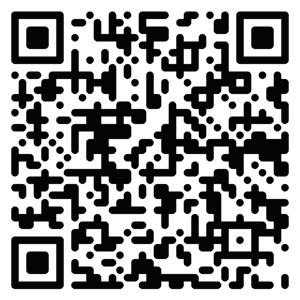
Olivia Pechey
Dyslexic students aren’t getting the support they need at university. Ten extra minutes in an exam and access to reader-writers are baseline standards, yet once these boxes are ticked, attention is diverted elsewhere. Victoria can and must do better. Tools like Bionic Reading and programs such as PeerAssisted Study Sessions (PASS) offer a glimpse of what proactive support can look like. The challenge is integrating these initiatives into assessment formats and expanding them across every degree and its relevant courses.
SPEld NZ defines dyslexia as “a specific learning disability that makes it far harder to learn to read, write or do number work.” An estimated one in five people have dyslexia, which can involve difficulties such as understanding complex instructions quickly. Abby Hardy, a second-year student at VUW, described it as “a black room with lots of doorways.” An idea might flicker centre stage, only to slip away behind a door before she can grasp it.
Despite this, students pour their blood, sweat, and tears into their courses, only to achieve a grade that barely scratches the surface of their potential. Even when a high grade does come through, the work-to-reward ratio is often far steeper than it is for a neurotypical student. As such, the structure of university can predetermine the kinds of minds they reward with success.
Confession: I’m not dyslexic. I’m actually one of the students who benefits from the system as it currently stands. So, why can I write about this? I’ll never understand the struggles first-hand. But I have a sister who does. I’ve watched her battle through late nights, unnecessarily long-winded instructions, and heart-breaking exams. I feel her frustrations as if they were my own. And in a school of nearly 21,000, she’s definitely not alone.
Myllo, a dyslexic secretary at Te Amaru, admits to having had “bad experiences in the past with my needs not being taken seriously.” Assessment formats rarely recognise ‘understanding’ unless it is expressed in traditionally structured ways. The issue isn’t that these skills aren’t important, but that they are taught and evaluated in ways that make them disproportionately harder for some brains to demonstrate. As Myllo explains, this becomes most apparent in situations where handwriting is required. “I use a tool called Bionic Reading,” they say. It overlays text, bolding certain letters to guide the eye to key phonemes and reduce cognitive load. Without it, “it takes me almost double the time to read.”
Even though dyslexic students possess a variety of strengths out-of-the-box thinking, creative problemsolving, and visual-spatial reasoning, to name a few these qualities can be hard to reconcile with a system that generally prizes streamlined outputs. When students’ strengths are overlooked and their concerns neglected, it can take a serious toll on mental health.
Despite meeting the course pre-requisites, dyslexic students may feel leagues behind everyone else, facing “a heightened physiological response compared to non-dyslexic students”, which stems from the pressure to meet expectations that feel unattainable.
lectures can feel like being swept along in a current of faster-paced peers. Only seconds are given to process calculations before the class moves on, and asking a question risks being labelled “less capable” or “dumb”. Many students feel unsupported by university materials and turn to online resources instead. As one student put it: “I end up essentially self-teaching a degree I’m paying for.”
This sentiment is echoed by Myllo, who rates the support available for dyslexic students as “about a six out of ten.” They describe the university’s approach to accessibility as predominantly reactive, tackling issues only after they arise.
So what can we do? Change doesn’t have to be immediate. Even small steps could make a real difference.
Studies indicate that emotional support is key to lessening the negative impact of academic pressure on dyslexic students. When open discussion is encouraged within an intimate learning environment, students are better positioned to succeed.
Collaborative, low-pressure conditions create a safe space for students to explore ideas in their own time. Peer-Assisted Study Sessions (PASS) run through Student learning provide exactly this environment. led by students who have completed the course, PASS meetings bring peers together for an hour each week, helping them clarify material from lectures and brainstorm strategies for assignments and exams. Despite these advantages, opportunities like PASS are not widely available across most degrees, let alone individual courses—particularly in STEM. If Victoria University is serious about “helping our disabled student and staff community to thrive and achieve their aspirations”, that commitment must extend to the way learning is delivered. Expanding PASS to more courses and beyond 100-level would create non-judgemental zones for all types of questions. As a first step, fully implementing PASS in first-year courses would help students build a stronger foundation and develop effective study practices they can carry through the rest of their degree.
Recruiting more dyslexic tutors would further strengthen this program, as they understand not just the subject matter but the ways dyslexic students learn best.
Alternative assessment formats are equally essential. Many students, like Myllo, report that “exams make me so anxious that I often don’t do as well as I should in them.” Internal assessments, which allow more time for processing, are often a better indicator of a student’s level of progress. Offering them a choice between traditional exams and formats better suited to their learning style, along with ensuring access to tools like Bionic Reading, could promote greater confidence and lead to improved results.
For this to happen, support must be clear from the outset. Victoria should introduce students to available resources on day one, ideally with recommendations from professors or tutors during the first lecture, so that help does not remain abstract.
For students who are dyslexic—or think they might be—Myllo encourages reaching out to Victoria University’s Disabled Students Association.

In this most humble of election seasons, you’ll be hearing a load of kupu that sound great, but mean very little. To me, #1 on the list is human rights—people are protecting them, enforcing them, trampling on them, denying them, altering them—and no one has really narrowed it down. One thing is clear though, a nod to human rights is a classic in the political playbook—as it should be. Right?
Kind of, yes, no, maybe? The first thing to understand is that Human is not as easy a category to understand as you might think. And this isn’t some Diogenes ‘behold a man’ chicken situation, we’re talking about the typical issue of racism. To quote my queen Angelina Jolie: “these are human rights, sometimes, for these people. Maybe sometimes for these people, never for these people”. One of the big reasons that NZ didn’t initially ratify UNDRIP? They struggled with the word ‘peoples’ for a bunch of legal-ish reasons. You see it in Palestine right now, with Zionists using every possible dehumanising term to justify the slaughter. The category of human isn’t exactly set because people are assholes sometimes, so that’s the first thing to watch for. If someone says they love human rights, ask them who they consider human.
Next thing to understand, rights in the way they exist in common knowledge need to be enforced. We all sign a little document saying we won’t be mean to certain people, but there needs to be a power to intervene. This power is the UN, which is incredibly effective if the ones being ‘mean’ are any country in Africa or the Middle East, and incredibly useless if it’s anyone that would pass the paper bag test. Many Indigenous scholars critique this very thing, saying that in needing a way to enforce rights, we end up legitimising powers with racism built into their bodies. The promise and restrictions of rights can easily channel or blunt Indigenous politics into 40+ years of back and forth with the UN, or endless ‘debates’ about technicalities and semantics.
Fancily put by Glen Coulthard: states use their “ability to entice Indigenous peoples to identify, either implicitly or explicitly, with the profoundly asymmetrical and nonreciprocal forms of recognition either imposed on or granted to them” to maintain control over Indigenous peoples and lands. No one wants to be the guy to go ‘maybe I don't like human rights’ because that’s a hard sentence to say and still sound vaguely moral or ethical. So, we end up in a system that benefits from our subjugation because what other options are there without the whole world turning on us? Classic examples of this are the right to free speech, right to self-defense, right to political opinion—they’re all incredibly vague things that sound good on the surface, so they’re difficult to question. This is the second thing to watch for. If someone says they want to protect your right to XYZ, ask them where that right comes from, and how they can protect it.
There seems to be a pervasive idea that the only involvement we have with our democracy is ticking some boxes every few years, and that once politicians are in power we just have to do what we are told. This is why they’re vague and use good sounding terms like ‘human rights’—because they think they just need to get in, and then it’s a free for all. But if we actually question our representatives to, god forbid, have a stance on something real, we start to see who actually knows their shit, and who just got an intern to scroll shityoushouldcareabout for five seconds.

important step in honouring te tiriti o Waitangi by having Māori participate in governance and protection over their lands and taonga.
How does voting work?
If you’re enrolled you’ll get your voting papers in the mail and you’ll need to fill them in and then post them using any NZ Post or DX Mail post box, or drop them in one of the orange voting bins—keep an eye out for the ones around campus! You’ll need to do this by the 7th of October if you do it by post, or by noon on the 11th of October via the orange voting bins.
You’ll be voting for the Mayor, your local ward councillor (just the one Māori seat if you’re on the Māori roll), and for councillors on the Regional Council. Put a ‘1’ next to your favourite candidate, ‘2’ next to your second favourite, and so on. You’ll also be asked to vote for whether you want to keep or remove our Māori Ward. if you want to ensure your Māori voice is heard, vote to keep the Māori ward!
Candidate Backgrounds & Experience with Council
Te Paea Paringatai (Waikato, Ngāti Porou) is running independently for the te Whanganui-ā-tara Māori Ward seat. She’s had extensive leadership roles in the tertiary, public, and not-for-profit sectors, including a Masters in Business Administration with distinction, and is the 2025–2027 President-Elect of the International Federation of library associations and institutions (iFla) as well as a current member of the iFla governing Board. Her background is in libraries, archive management, organisational and workforce development in local government for 19 years—this includes working closely with councilors, iwi, and hapū. “My forte is taonga tuku iho—looking after our taonga, listening to the kōrero of kaumātua, and using that to ensure that we are achieving their aspirations and things like that. I’m good at strategy and planning, and I have delivered projects on time, on and sometimes under budget, because I know where to make the cuts and where to make the hard decisions.” She grew up around the city, as well as by the feet of her grandparents. She wants to run for the seat because she’s filled her kete, and wants to contribute to her community. “I do try and do, you know, I put 150% into what I do, always have.”
Tory Whānau (Pakakohi, Ngā ruahine, Ngāti takou) is currently the Mayor of Wellington City, and is the city’s first Māori mayor, elected in 2022. She is endorsed by the Green Party and was their Chief of Staff from 2017-2021. She has gained substantial council and governance experience in her time as Mayor and is proud of what she has achieved thus far in her term. “I know what our Ten Year Vision is here, and to be able to take that experience and just focus on tāngata Whenua is really wonderful. i already know where the council is heading, and I can help continue that mahi.” The 10
Year Vision outlines the city’s long-term priorities in infrastructure, climate response, housing, and cultural development. This has been first real term that the council has worked with te ātiawa and angatira and she says that working with pou iwi has highlight of her term. She grew up in Porirua and is a Te Herenga Waka alumni, graduating with a BA in Media Studies.
Policy.nz website, her priorities are to:
iriti with the retention of tākai Here (Partnership agreement between mana whenua and the Council) and Pouiwi to ensure iwi partnership.
2. increase engagement amongst Māori in our democratic process and the long term Plan.
3. increase visibility and delivery of tūpiki ora Māori Strategy.
Matthew Reweti (Te ātiawa, te arawa, Ngāti ruanui) is the deputy Chair of the Pipitea Marae Trust and has a background in marketing, communications, and funding. He is labour’s candidate for the seat. “My skills are in community, governance, business and management. I’ve lived here all my life and I’ve raised my tamariki here. My whakapapa runs through this city and we are Māori.” He’s also a te Herenga Waka alumni, graduating with a BA in Anthropology and Geography. In his Policy.nz statement he says, “My career spans health, education, te taiao and social services. I have worked for our people through hardship and hope. I continue to hold governance positions for te ātiawa and with Ngā Hau e Whā Marae. i value listening, building relationships and ensuring all voices are heard. I stand to serve with integrity, accountability, and aroha.”
According to the Policy.nz website, his priorities are to:
1. Create opportunities for pakihi Māori, toi Māori and te reo Māori that will uplift our people.
2. Protect social housing and support measures to make quality housing affordable for our people.
3. Uphold tino rangatiratanga and mana motuhake, including keeping Māori representation.
Matthew didn’t get back to us when we reached out for an interview so his views on certain topics are not included. Despite the lack of response, you can find more information about him as well as the other candidates by checking out the candidates page on the Wellington City Council website as well as Policy.nz—the complete guide to the 2025 local elections.
Te Paea Paringatai has global experience in delivering on priorities that matter to her communities, with a focus on leaving a legacy of positive decision-making for future generations. “Because i whakapapa and i’m mātāwaka here, i have an in-depth understanding about the kinds of conditions that are needed to enable us to thrive. So it’s not just addressing the problems of the day, because sometimes those are distractions for the underlying policy settings that ensure that we are marginalised and continue to be marginalised.” She has experience and a particular skill set that enables her to interrogate the decisions that are made around the table. “I’m very much focused on taonga tuku iho and leaving a legacy of positive decision making for future generations.”
Tory Whanau has developed into a focal, visible leader for Māori as a wahine Māori who is currently fighting strongly against the online violence and harassment against wahine Māori in particular. She is currently working with academics and a lawyer on a case under the harmful Digital Communications Act, which she’ll be submitting to
the High Court. “[This is] to highlight the scale of the problem so that we can find solutions to reduce harm for our rangatahi Maori and wāhine Maori who want to stand in the future. it is not a safe environment for Māori at the moment, and it wasn’t safe for me. I’ve been lucky in being able to harness that harm and actually turn it into a kaupapa that I want to fight for.”
Tory is not afraid to stand up to bullies. “I’m very protective of other people in my situation, I’m mentoring others so that they feel safer and feel protected … not just Maori, like women of color, in particular, I’m helping guide them.” She brings strength in governance and leadership experience: “I’m a fighter.”
What do they think are the biggest issues that students currently face?
Both Tory and Te Paea brought up cost of living and safety in Wellington as key issues for students.
Te Paea Paringatai talked about cost of living, housing, and safety as significant challenges for students, particularly here in Wellington. “Student-led initiatives and community participatory forums ensure student priorities are addressed and decisions are made that leave a stronger foundation for the future.”
She brought up the fact that Wellington is well known for its arts and culture and what it offers both our visitors and also the people that live here. “I think that’s something to amplify and make better. I think you also have a role inside the city, even though you’re renting or you’re visiting, or because you might choose to live here one day. And so this needs to be a city that embraces you and says there’s a future here” She wants to create the opportunities for that to happen, and then follow through.
“Another way to complement that is to have like online town halls, where you can submit questions and things like regular updates so you know what’s going on, so you know what kinds of decisions are being made or initiatives are being considered that potentially impact you, so that you can feed into it and help shape it, sit and refine it. Because that’s the beauty of feedback. Feedback is not something that any politician should shy away from. They should welcome it with open arms, because it helps you refine what your current thinking is so you do better.”
She also talked about systemic change that results in more employment—specifically quality employment, stating that she supports quality working conditions and the living wage.
Tory Whanau said, “The city is going through an affordability crisis and job crisis at the moment. So the reduction of up to 10,000 public service jobs gives a real void for our own people, as well as students, getting to form careers here so that they’re just straight up leaving,” this, she says, is devastating.
She described the council’s economic strategy, focusing on sectors like arts, screen, tech, and gaming to create job opportunities. She also discussed the council’s efforts to increase housing, including converting office buildings into affordable rentals and expanding the Te Kainga program. “That means focusing our economic strategy on bringing international film productions here. It’s investing in our grassroots level arts so that our arts students can walk into an arts pathway here.” She also said she’d commit an extra $150,000 funding for Māori artists on the Policy.nz website.
“long term, it’s building as many houses as we can this Council under my mayoralty, so we’ve enabled the 10s of 1000s of new homes under the district plan. We have changed the rules to make building homes easier. We also need to convert more office buildings into Te Kainga to have affordable rental rentals for our students as well, and affordable homes. We can lobby the government for more kainga order homes and more high rises.”
Matthew has pledged to support safe, secure, high-quality jobs with fair and equitable pay and back the living Wage for every worker. He’ll also support Māori-led housing projects from papakāinga to transitional housing with funding pathways, land partnerships and planning support.
What will the candidates do to continue the process of revitalising Te Reo Māori in the city?
Te Paea Paringatai recognises that It’s the first language of this country. She spoke about the need for a restorative approach, as our shared history is pepper potted with trauma. “We must continue to implement restorative practices and approaches that make things right and better going forward.” She emphasised rūmaki reo in places like te Wānanga o raukawa, and said that we must be unapologetically inclusive, so that everyone actually can use te reo Maori all day. “It needs to be all day, every day, everywhere.”
“The country is much better off if our bicultural relationship is solid, because that enables a stronger multicultural relationship across the board.” She says this all helps to identify better ways to embed te reo Maori, and even though the council changes and governments of the day change, she wants to ensure that the policy setting is really secure and enduring.
Tory Whanau spoke about the strategy to make Wellington a bilingual city by 2040, increasing te reo Maori classes, and translating names back to Maori. She says this will happen by ensuring that we increase the number of te reo Maori classes in any sort of council organisation, plus having Kura Reo hosted by iwi and having at least quarterly sessions that people can apply for. She’s also prioritised translating names back to Māori names, such as te Matapihi, Wellington Central library.
tory also shared her personal journey with te reo Māori and her commitment to becoming fluent. “I’m someone who has had a long and complicated journey with te reo myself, and I think as someone with ADHD, I’ve really struggled. But it’d be amazing to become the Māori Ward councilor and really dedicate a lot of my time to myself going on that journey to becoming fluent. It’s going to be a long journey, but it’s certainly one I’m committed to.” She’ll ensure key events like Waitangi Day and Matariki are delivered with iwi and Te Mataahonui (the council’s team focussed on strategic outcomes for Māori.) She’d also implement histories and stories held by mana whenua across all council projects. te reo Māori is something she’ll keep fighting for despite efforts from other councillors who try to disestablish reo efforts.
We also asked candidates about solidarity with Palestine
Te Paea Paringanui stated that she has solidarity with Palestine and people experiencing similar things in the world, “It’s so complex, you know. But it’s more for them to tell these stories. That’s where the power is, and then understanding there. But I’m absolutely in favor of all people thriving and being able to live in peace.” She says it’s important to ask Palestinians what’s important to them, “That is something to commit to and work with, but it needs to be Palestinian led.”
T: Tory intends on taking the lead on the WCC’s support of Palestine as the Māori Ward councilor. She has established a relationship with the Mayor of Ramallah, Issa Kassis, through the Friendly City Agreement. “I know our discussions until this point have been sharing things around indigenous policy, which we can do right away, promoting each other’s Indigenous artists.” She shared that there are similarities in the things we care about as indigenous peoples such as art, sharing knowledge around tech for climate
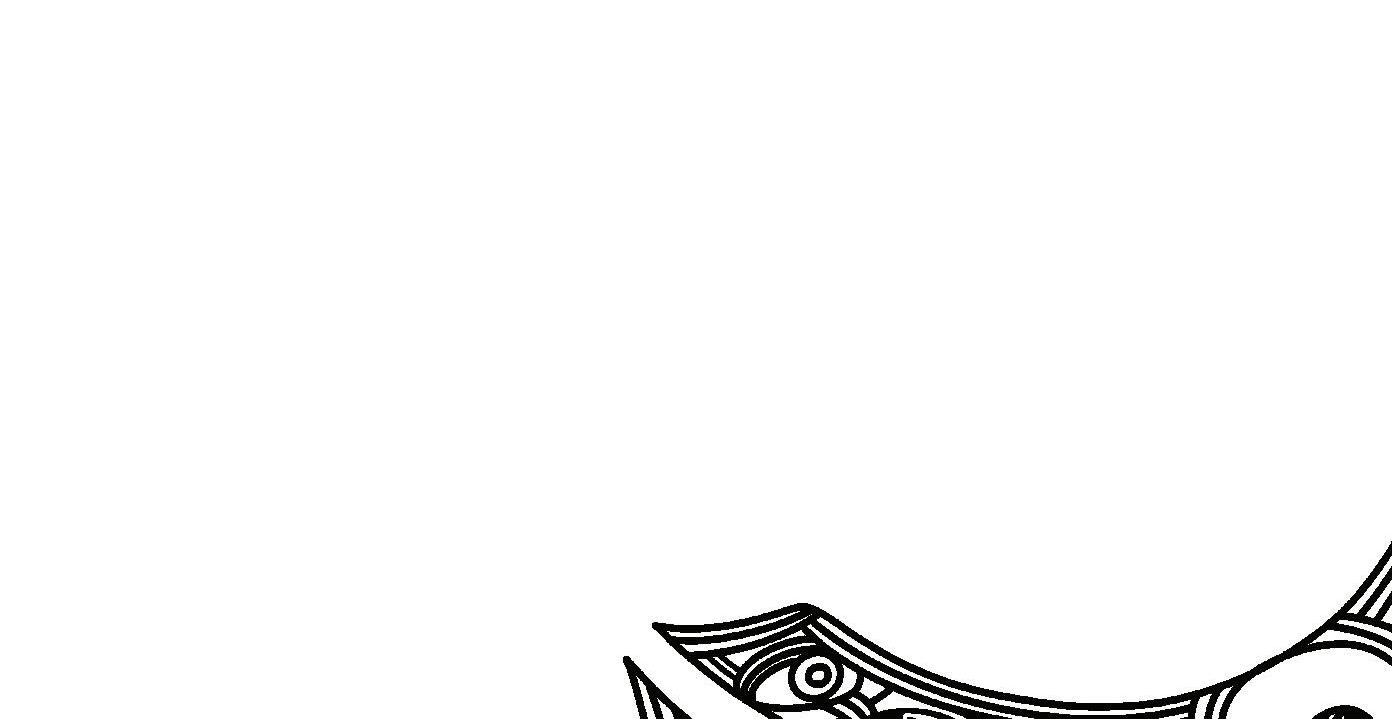
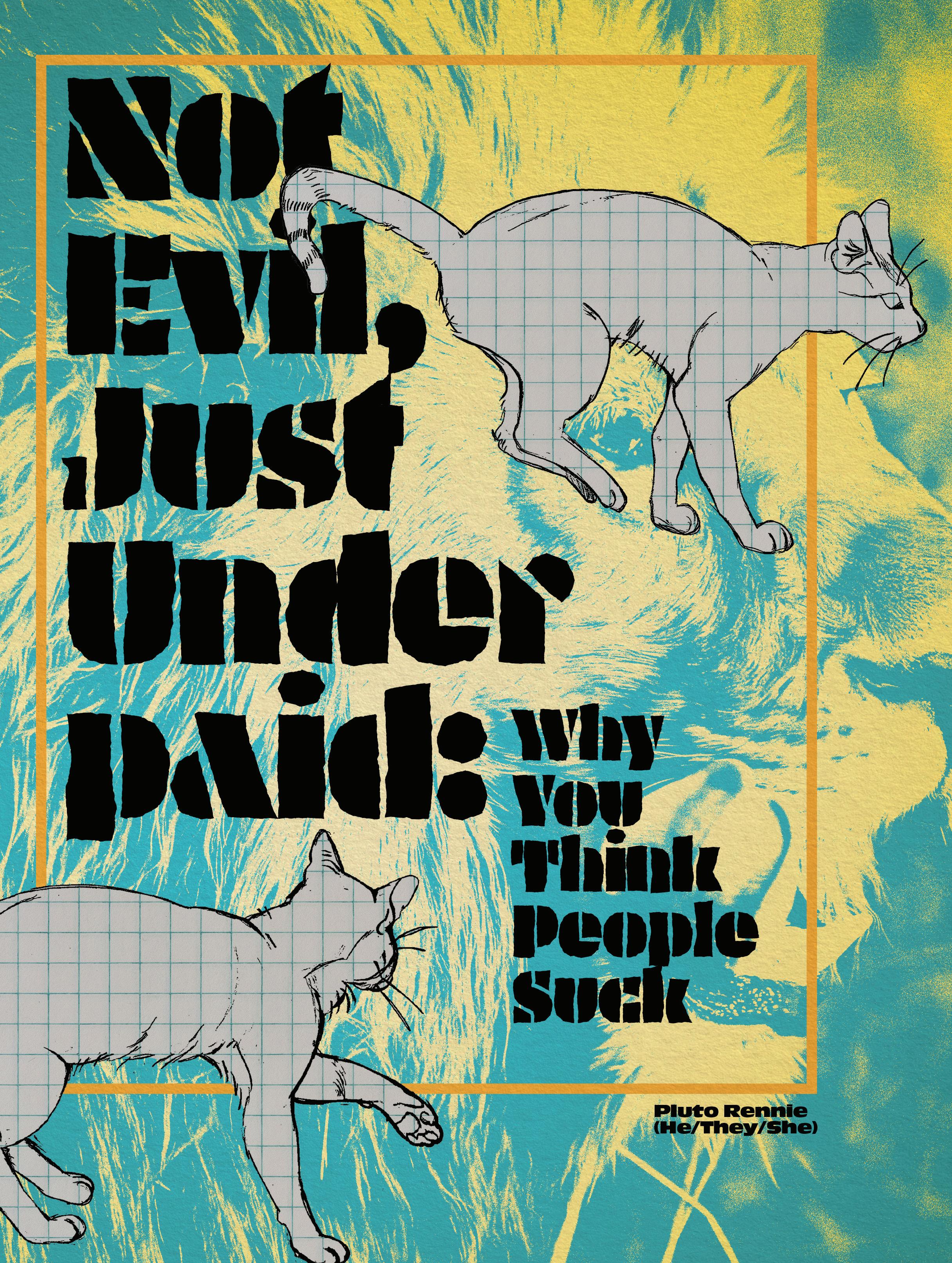

“Humans are just selfish.” You’ll hear it in lectures, see it in comment sections, feel it in flatmate group chats about who left the dishes dirty. It sounds cynical, but also… familiar. like something we’ve been taught to believe about ourselves. It sparks the kind of calm, detached debate that, without fail, makes my anarchist blood boil. There’s something deeply unsettling about watching people coolly intellectualize whether all humans are doomed to be terrible forever. Plenty of people (especially those in my philosophy and politics courses) genuinely believe that every single person on earth, except themselves of course, is incapable of real kindness. But if selfishness is really our nature, how do you explain the people who help strangers in floods, hold doors open, or share their last cigarette with the unnamed stranger they met outside a bar on Courtney Place?
There’s a long tradition of Western thinkers arguing that humans are self-interested by nature: from Hobbes, to Rand, to that one guy in your tutorial who likes Reddit a little too much and thinks empathy is a scam. This idea shows up everywhere: in politics, in economics, in conversations about housing, climate, and crime. And while it’s tidy and appealing in its bleakness, it’s also… kind of like really wrong.
We’re built to care. Psychologist Simon Baron-Cohen found that our brains are basically built to feel what others feel. We’re naturally wired to care when someone else is upset or in pain. long before babies can speak or walk, they already show signs of prosocial behaviour. Paul Bloom, a psychologist at Yale, found that babies as young as six months old are drawn to helping behaviors, and become visibly uncomfortable at the sight of antisocial ones. This isn’t some idealist fantasy, it’s biology. We evolved to live in groups, so the capacity to care helped us survive.
And yet… here we are. Doomscrolling past suffering, hoarding resources, elbowing our way through the student job market for a $23.15/hour café shift that somehow requires three years’ experience and full availability. What happened?
I’d say capitalism happened. Under capitalism, kindness doesn’t pay the rent. Individualism and competition is praised, empathy becomes sidelined. You can see it everywhere, from flatmates labelling leftovers, to linkedin posts bragging about burnout. We’re told that the way to survive is to hustle, win, and stay ahead. It’s not that people are naturally selfish, it’s that the system rewards selfishness and punishes vulnerability.
In communal, pre-capitalist societies, cooperation and sharing were the norm. Neoliberal systems suppress those instincts. The traits capitalism celebrates competitiveness, ambition, independence are exactly the ones that, in different contexts, might be seen as antisocial.
In my drunken, and deeply philosophical state, I decided to bring this discussion to my friend who studies biomed. We ended up talking about cats. lions in the wild sleep nearly 20 hours a day. Hunting is often unsuccessful, and it burns a ton of energy, so
they need to conserve it. But domestic cats play a lot. They chase leaves, they zoom around at 3am, and, as I’ve learned from watching my own cat, they can spend literal hours chasing their own tail like it’s the most important mission of their life. Why? Because they don’t need to worry about food. They’re not lazy or energetic by nature, they’re just adapting to their environment.
I would argue so are we. If you grow up in a system where compassion is seen as a weakness and success means stepping on others, then selfishness isn’t pathology, it’s strategy.
When I asked Dr Jesse Spafford, one of my previous philosophy lectures here, if people are inherently selfish, he explained that people regularly act in ways that benefit others at personal cost, and trying to redefine those actions as “secretly selfish” just stretches the word to the point of meaninglessness.
He also floated the idea that people assume everyone else is selfish because they’re projecting their own tendencies. “Many people are, indeed, selfish, and they infer that, because they are selfish, everyone else must be also.” These beliefs could also be “false beliefs that help justify people behaving in ways—and structuring society in ways—that advance their own self-interest.”
I think capitalism takes that even further: it makes us feel guilty all the time. I’m not working hard enough, I’m not good enough, that person’s achieving more than me. Guilt becomes a constant low hum in the background of student life. To cope, we justify selfishness. I need to put myself first, people suck anyway, kindness is naive. These beliefs don’t just emerge out of nowhere, they’re convenient. They ease the guilt of being in survival mode. They tell us that selfishness isn’t just understandable, but natural. That belief props up capitalism, which keeps making us feel like we’re not enough. It’s a cycle, guilt, justification, reproduction.
This might sound shallow, but what if people are mostly just trying to be decent? What if we crave kindness and community but ignore that craving because it’s too risky? There are glimpses of this everywhere. Students running activism campaigns, strangers handing out sunscreen at the beach, the person who made you tea during your mental breakdown in your first year uni hall.
The idea that people are inherently selfish is used to justify all kinds of violence: prisons, bosses, billionaires, borders. If people can’t be trusted, we need control. But if people can be trusted, if we’re wired for care, then maybe those structures aren’t just unnecessary. Maybe they’re harmful.
No system is neutral. The way we organise society either nurtures our capacity for care, or it suppresses it. We’ve been taught to mistake exhaustion for realism and pessimism for intelligence. We’re not broken, just shaped by systems that punish care. We can unlearn, re-form, and live differently. Maybe the real fantasy isn’t believing in human kindness, it’s believing that capitalism deserves it. Touch some grass, stop being emo, and admit that being emotionally unavailable isn’t edgy: it’s capitalism convincing you that detachment is a personality (oh my god guys, who said that?).
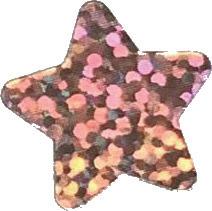
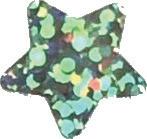
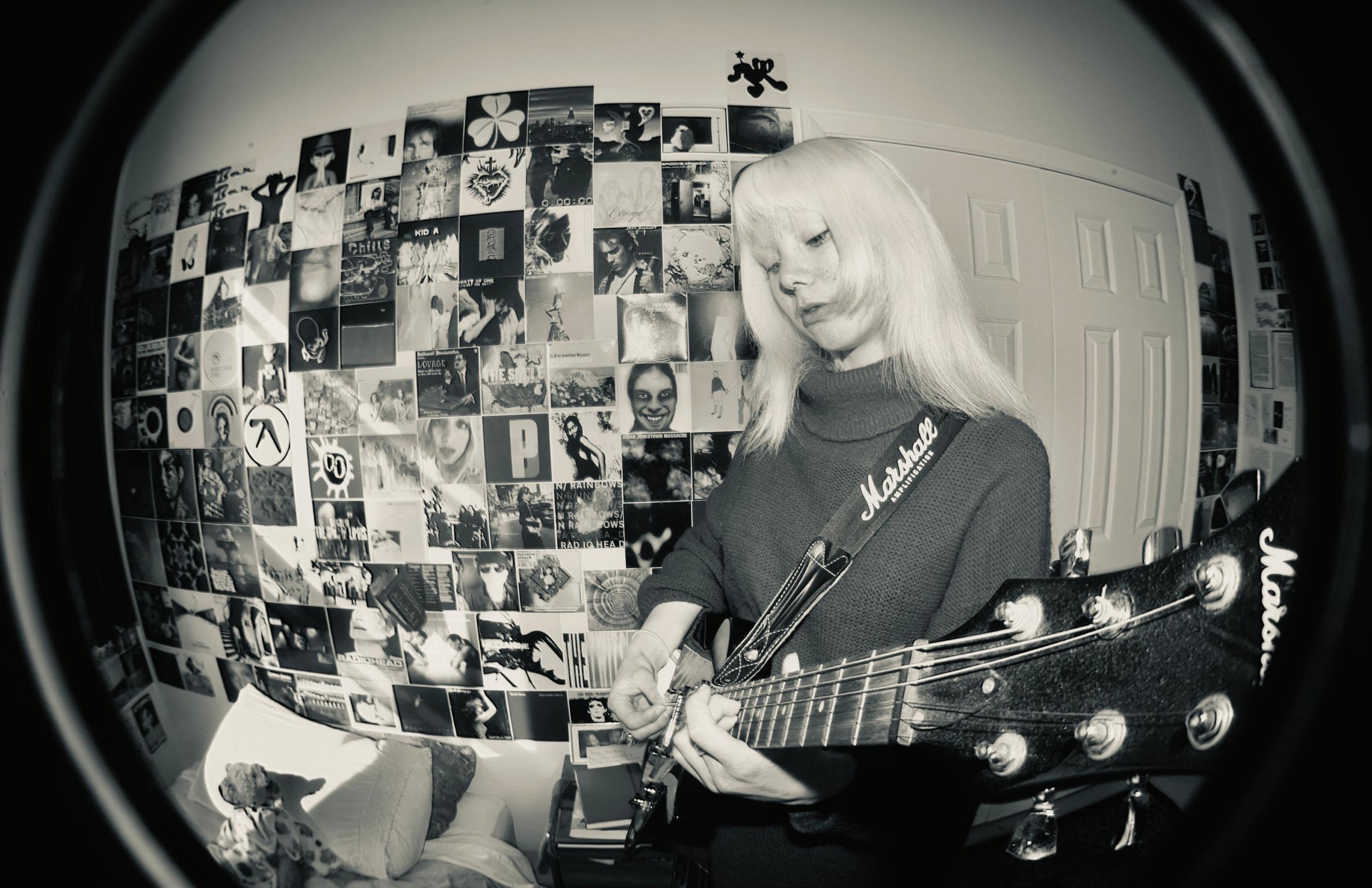
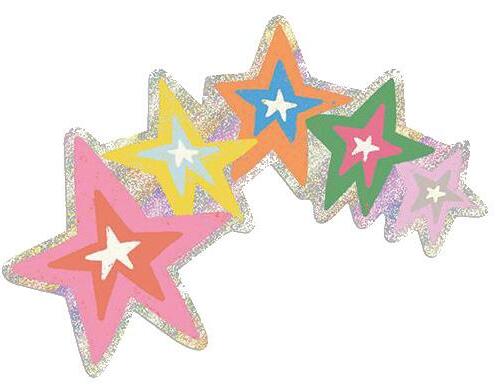
Words and
by Sophie Spencer
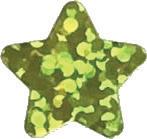
Historically, women’s desire and capability to produce art has not been taken seriously. Women have been systematically discouraged from pursuing a career within the arts. Those who pursued anyway were often met with patronization, resentment, and dismissal.
Up until the twentieth century, women were excluded from art through the common act of denying their access to formal training. Those who were tentatively trained often found their creative lives sidelined by expectations of marriage and motherhood. Although society has slowly been progressing, micro and macro doses of misogyny still prevail abundantly within the art world. The women artists of Te Whanganui a Tara that I spoke to described the most common dose of misogyny as being spoken over, and not having their intellectual points accepted with the same regards as a man. They have found their expertise undermined through ‘test questions’ of their knowledge in niche underground topics, and expressions of mistrust in their creative process.
These experiences are global, and structural. Women feel driven to drop out of creative courses or unable to ask for creative advice; each instance feeds a fear of public perception for women in the creative process. This gendered imbalance of respect in the art world acts as a microcosm for how we perceive gender roles in wider society. It simultaneously reflects which women are accepted and reveals why. Although progress is being made, acknowledgement of the past is important for understanding conditions within the present.
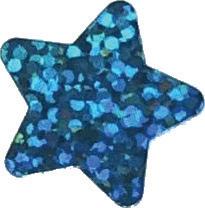
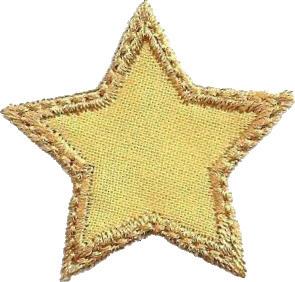

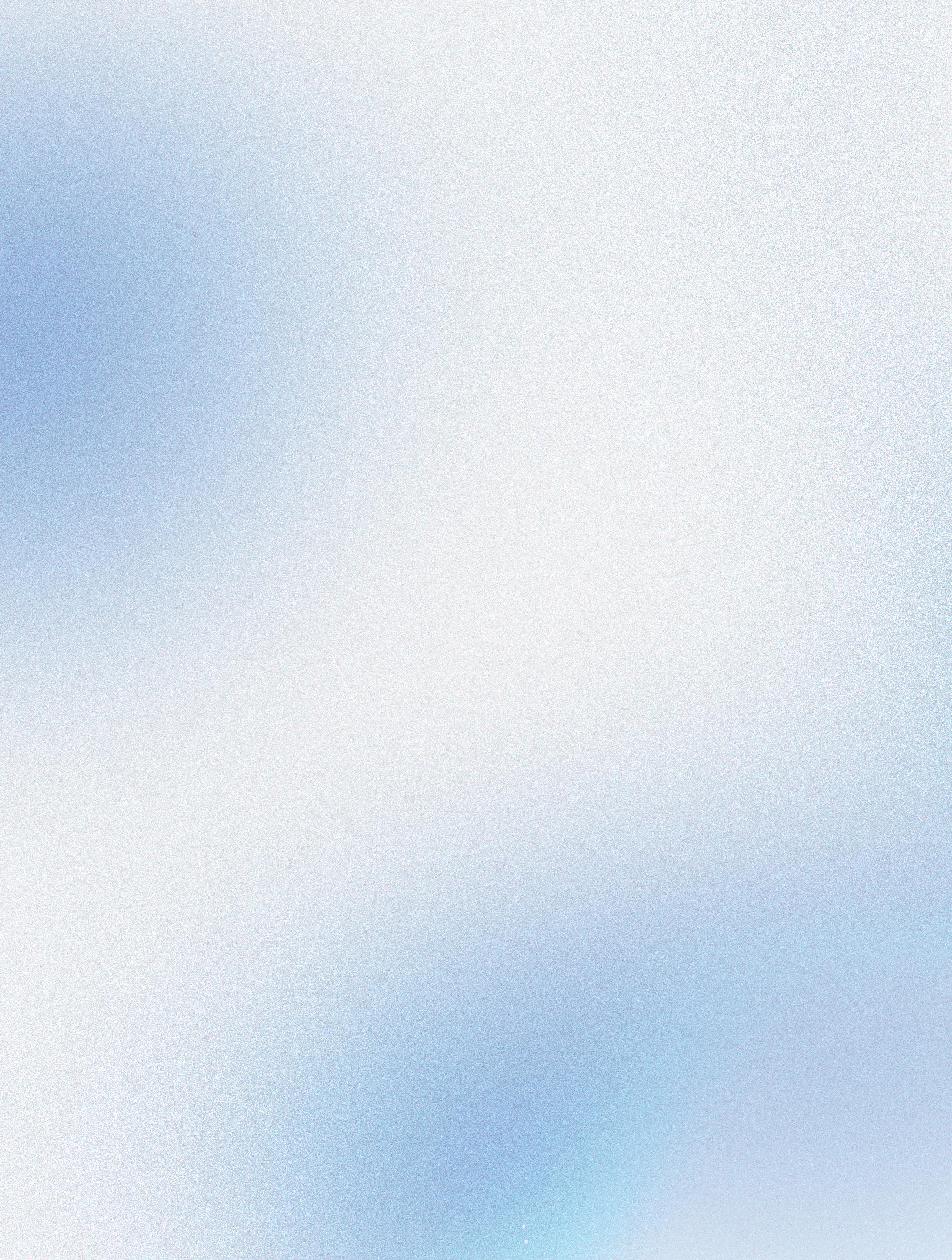
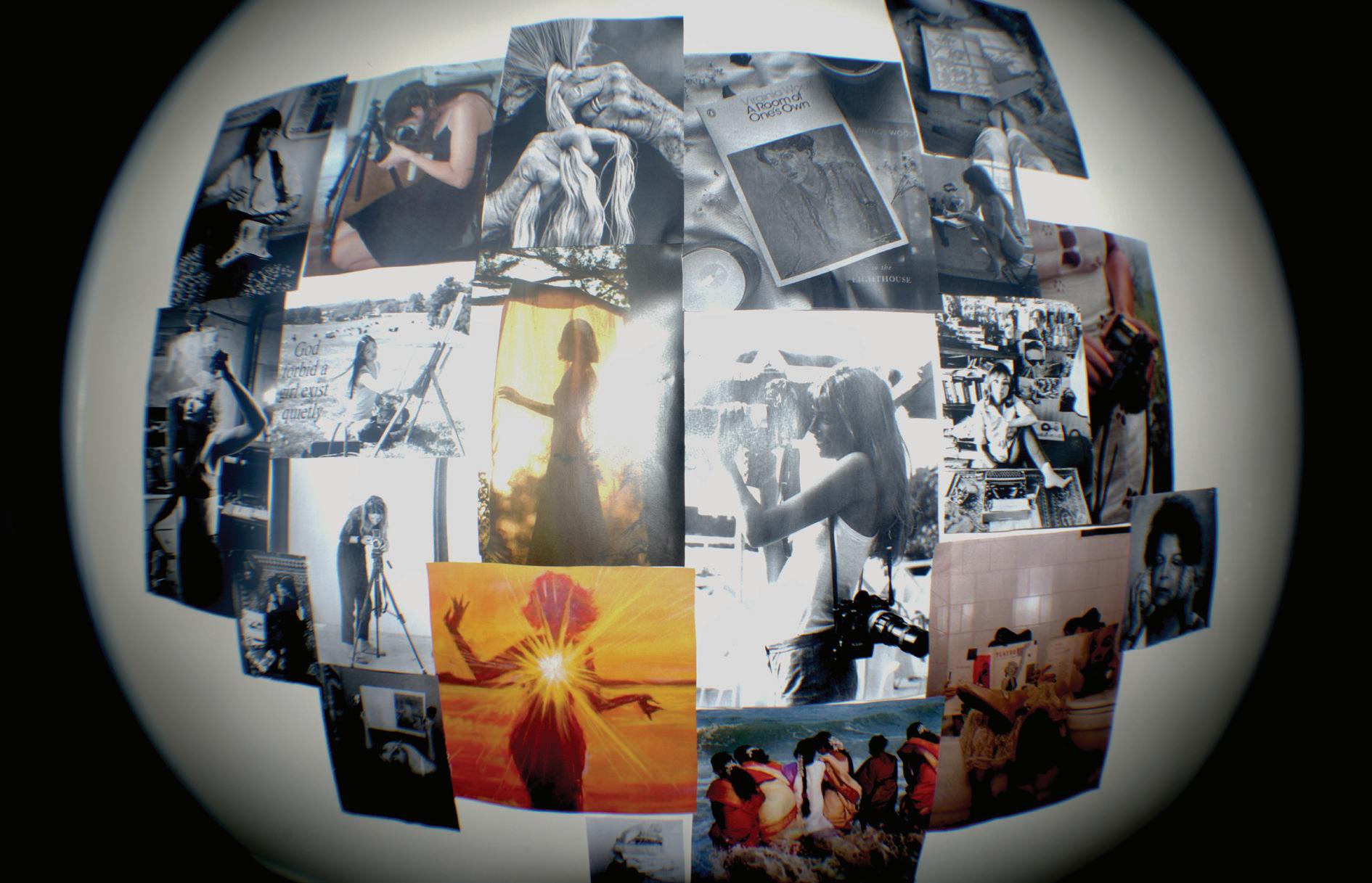

“Women even when they are not silenced, still have a very high price for being heard.”
(Women & Power, Mary Beard)
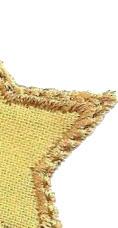
The lack of great women artists is not because of inherent incapacity; it is because of systemic institutional and social barriers. It is not the case that women have produced less art than men, it is just simply more difficult to find. Historically, women’s art was not treated as worthy of archiving or publishing, and was commonly claimed by male relations. Where there are few women voices of representation, each is examined under a microscope.
In a scenario where interpretation from another is crucial, it takes power to then claim that your work is worthy enough to be seen. In fear of scrutiny, as well as a lack of confidence, many great works of art from women have been disposed of instead of archived.
Naomi Rosenblum, author of A History of Women Photographers, states that “frequently women [photographers] themselves, reflecting the attitudes of their own eras, did not regard their images as important enough to inventory and save. Unless kept safe by spouse or descendants, women’s photographs often were discarded, tucked away in the attic, or stored in a musty bin at the local historical society.”
For many women, finding confidence to archive work had to be found without institutional backing. Access to independent archival resources has historically been a male privilege. Rosenblum proved that archives reflect whose voices have historically been heard, and whose have been dismissed. This lack of representation spreads further than photographic archiving, to photographic criticism and theory. Only a few compendiums of photographic criticism and theory in the 1970s and 1980s included work by women photographers or theorists.
One of the leading photographers of the interwar period, Ilse Bing, claimed that “many women participated in the creation of modern photography,” yet they were largely underrepresented from critical writing about photography in the formative 1920s and early 1930s.
The inaccessibility and exclusion of their writing makes it difficult to evaluate the extent and quality of women’s contributions to the modernist era. This erasure of women artists is not only historical, but it is also contemporary, and it is happening right under our noses. In 2022, only 25% of the art collection at the National Gallery of Australia was work by women. Yet this is still far better than the international standard— where roughly 90% of all artwork exhibited in major collections was by men.
The most expensive painting by a woman (Georgia O’Keefe Jimson Weed/White Flower No 1) does not even rank the top 100 most expensive paintings ever sold. Additionally, these institutions severely lack representation of women artists who are not white.
Raven Manygoats, writing for the Archives of Women Artists Research and Exhibitions (AWARE), notes that “most Native [American] art has been and continues to be made by women.” Predominantly “art produced by Native American women has been diminished. They have been regarded as outside the canon and their innovations have not been recognised.” Institutionally, Native American women’s art has been treated as “anonymous representations of entire cultures.” Further, “the indigenous artist [is] frequently treated as a foreigner in their own land”—a key refrain in indigenous art at last year’s Venice Biennale, theme: ‘Foreigners Everywhere’. Women artists who are lucky enough to have their work attached to their name suffer conscious and subconscious misogynistic perceptions of their art. The women I interviewed reported unfair, gender-based criticism of their work, praises delivered with ulterior motives, and suggested improvements, by men, that would not dare to be made to their male peers.
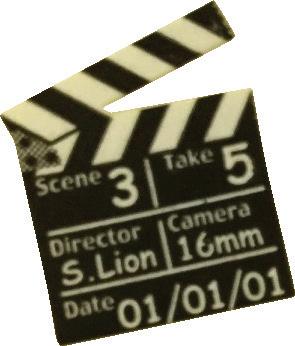
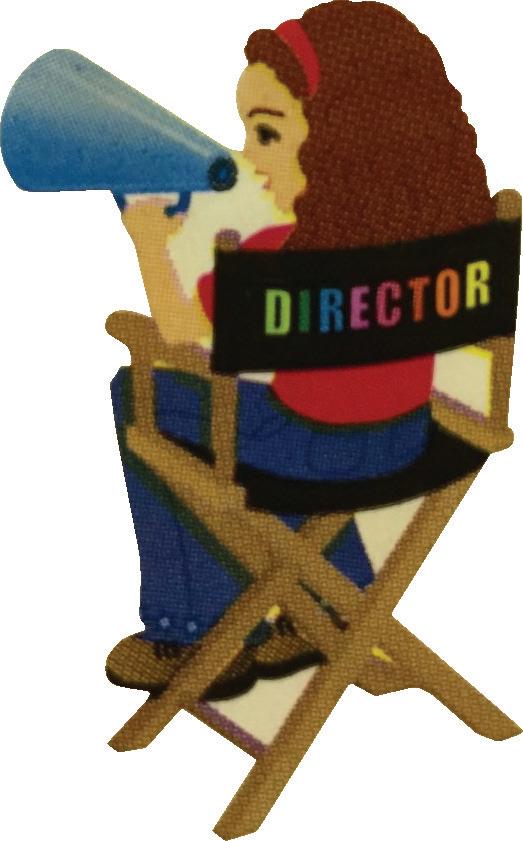

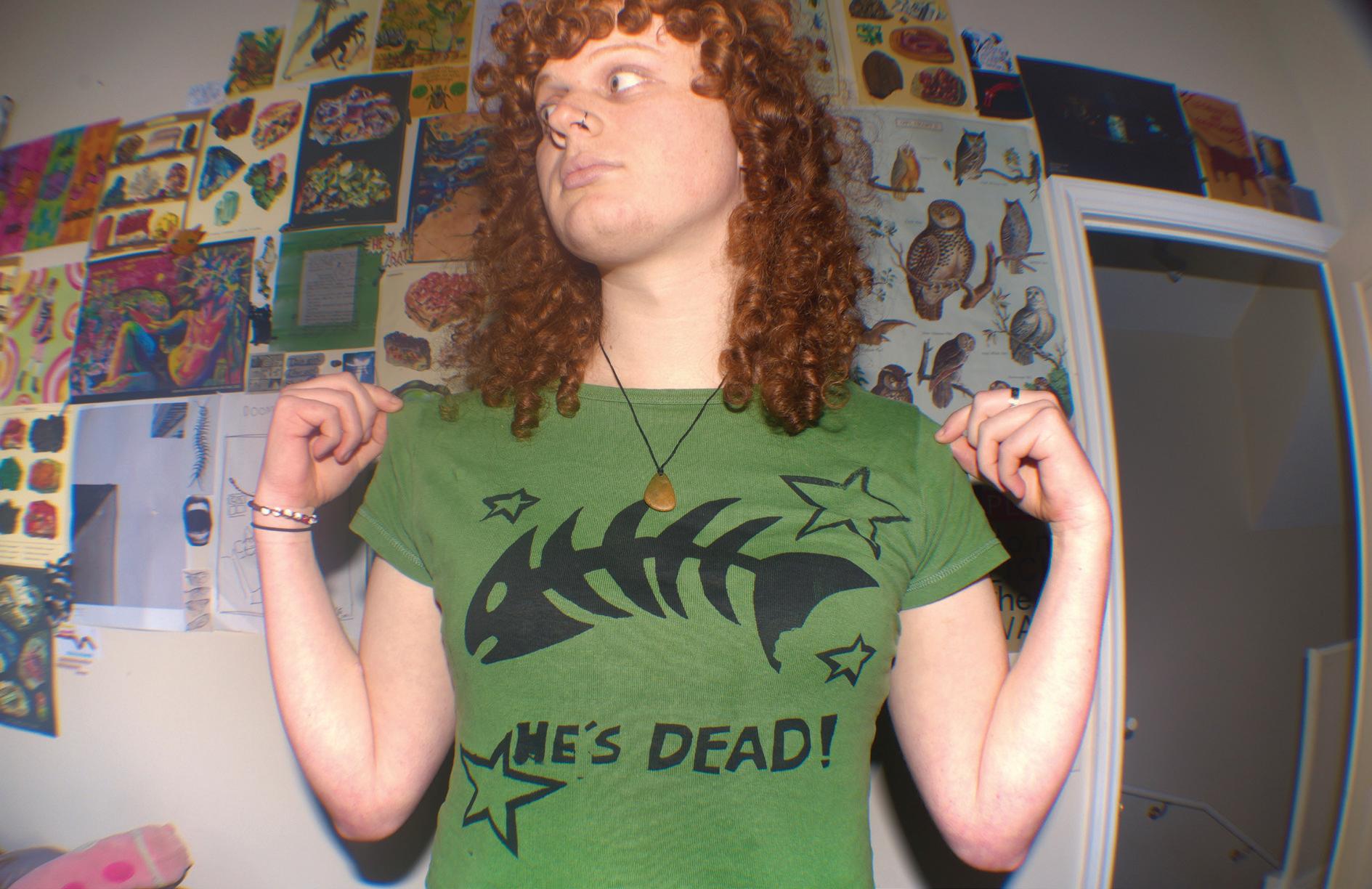


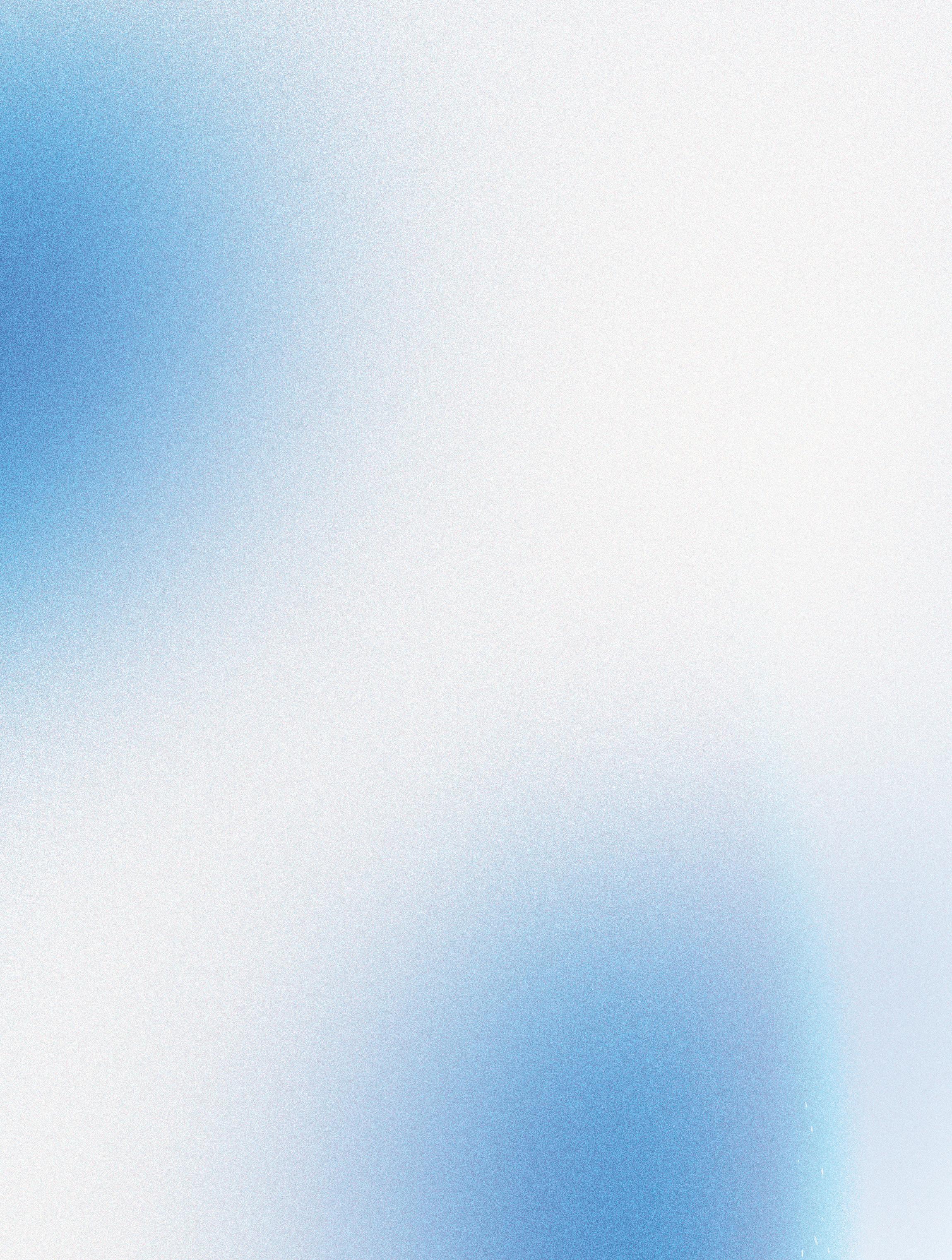

“A woman must have money and a room of her own if she is to write fiction.”
(Virginia Woolf, A Room of One’s Own)
In an attempt to overcome societal prejudice and enter the male dominated literary world of publishing, women writers have methodically created and used male/androgynous pseudonyms. Mary Ann Evans used her pseudonym “George Eliot” in order for her novels to be read as seriously as her male counterparts. Although women writers were published in her time, their work was diminished by stereotypes of ‘flowery’ lighthearted romances. Eliot, by contrast, discussed topics that collectively led many readers to picture her as a kindly country clergyman.
Eliot’s incognito was broken after her first novel Adam Bede in 1859. Yet she preferred to remain published under George Eliot to keep the social scandal of her private life as Mary Ann Evans from becoming intertwined from her professional life as a writer. Eliot’s story reflects many women’s inherently natural need to create. She defied and broke into a system that would have ultimately rejected her based on her gender. Aware of the same social constraints of being a woman writer, Jane Austen hid her unfinished work from others. A creaky door outside the general sitting area where she wrote at Chawton signalled to Austen that someone was coming; she objected to having it replaced as it gave her enough time to hide her half finished manuscripts.
When your voice is less common it stands out more. Austen was aware of this, and hid her work until she had a perfect manuscript. Although Austen initially published anonymously, it was still famously published “By a lady.” today, many women artists still find it difficult to share the inbetween process of their work. in interview with Aspen Jackson, actress, screen printer, and student at Te Herenga Waka, she remarks “I’m happy with what I’ve come up with but I definitely don’t like showing people until it’s done and one hundred percent it’s much easier to share with women part way through the process.”
We also discussed the difficulty of speaking in a public sphere. As women, we know that every word we say matters and will be questioned subconsciously. In classes, there are times where Aspen has a point to say but, while thinking of how to articulate it correctly, a man will beat her to it but “half bake it.” He has the systematic confidence that comes with being a man.
I asked Aspen “Do you think they get just as much of a good reaction? As to if you have a fully articulated point but they have a half baked one but they just articulate it well” which she replied “or even a better reaction. like i feel like a lot of the time when women answer questions intellectually we get an ‘um yeah no’ but guys they don’t receive that same [reaction] they get a ‘yeah that’s good, what else?’” What they say is met with acceptance even if it is the same point a woman will make. There might be the same miniscule flaw yet it will not be questioned like the woman’s.
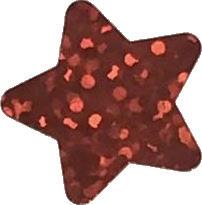

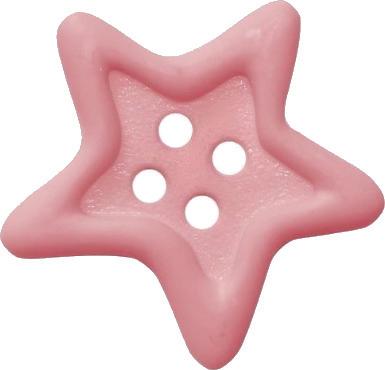
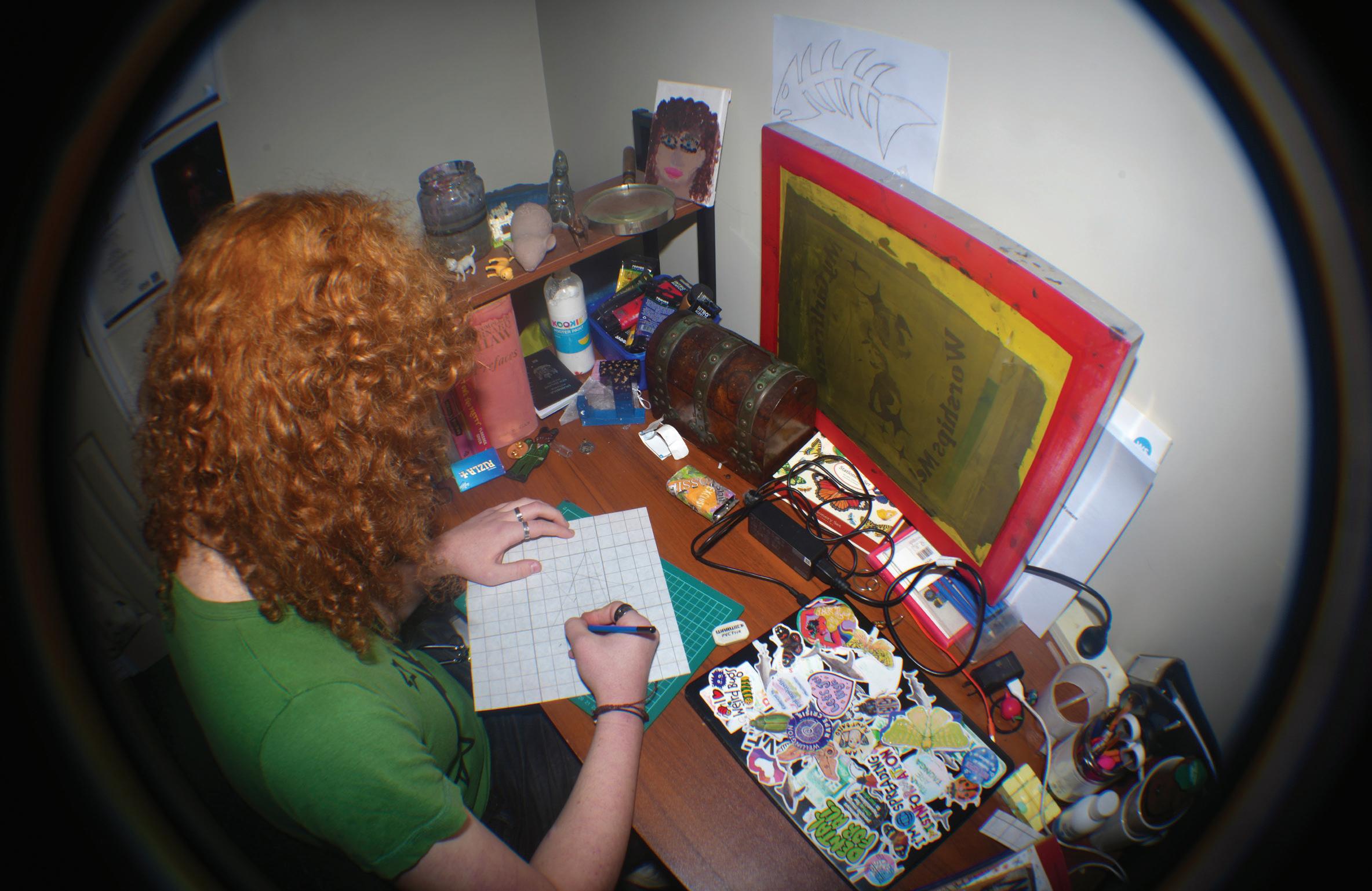
Unable to hide under pseudonyms due to the fact they’re almost completely on display, musicians who are also women struggle to break into genres that have historically been dominated by men. The music industry stereotypes women and the roles they can and can not hold. It favors women who write music about the preferred experience of being a woman over women who write about the experience of being a human.
Singer-songwriter and composer Björk claimed “women in music are allowed to be singer songwriters singing about their boyfriends,” going on to say that “if they change the subject matter to atoms, galaxies, activism, nerdy math beat editing or anything else other than being performers singing about their loved ones they get criticized.” Cultural perceptions of gender have been instrumental in painting these barriers. Women feel a pressure to fit a mold in order to get noticed. From their wardrobes to their lyrics it’s a systemic problem rooted in misogynistic exploitation. It’s capturing women and restricting their fame and public interest under a certain coloured spotlight.
In rock and roll, women were originally typecasted as backup singers because they were believed to not have the technical ability to entertain center stage. Naturally, this disrespected and discouraged many women in music, and unfortunately, it is still a problem today. The local artists I interviewed recalled moments where their knowledge was tested and belittled, making them feel it’s easier to “just be quiet” as men “dominate the space.” this domination leads to moments where, as Elly Mae lawson, local musician and student at te Herenga Waka, recalls, “I find myself in a position where I’m talking to guys who do music, and I’ll be the only female there, or one of the few ones there, and I can’t really be a part of the conversation. I don’t know why but it’s really hard to be a part of the conversation” and “when there’s a lot of them, they just won’t really listen to you. You seem like you’re invisible.” In some moments, these men test women artists’ knowledge; both Jackson and lawson stated there were times where it became evident that they did not know as much as they alluded.
In music, women’s talents are also unwelcome and overlooked. In the top one hundred of The Rolling Stones The 250 Greatest Guitarists of All Time, only eleven are women; it’s also important to note that nine of those eleven women are also white and all are cisgender. Although the industry is slowly progressing and holding events that only showcase women artists. These events create a safe space for women artists to gain and build a platform. They can eventually lead to normalising women creating music outside of their stereotyped form and genre.



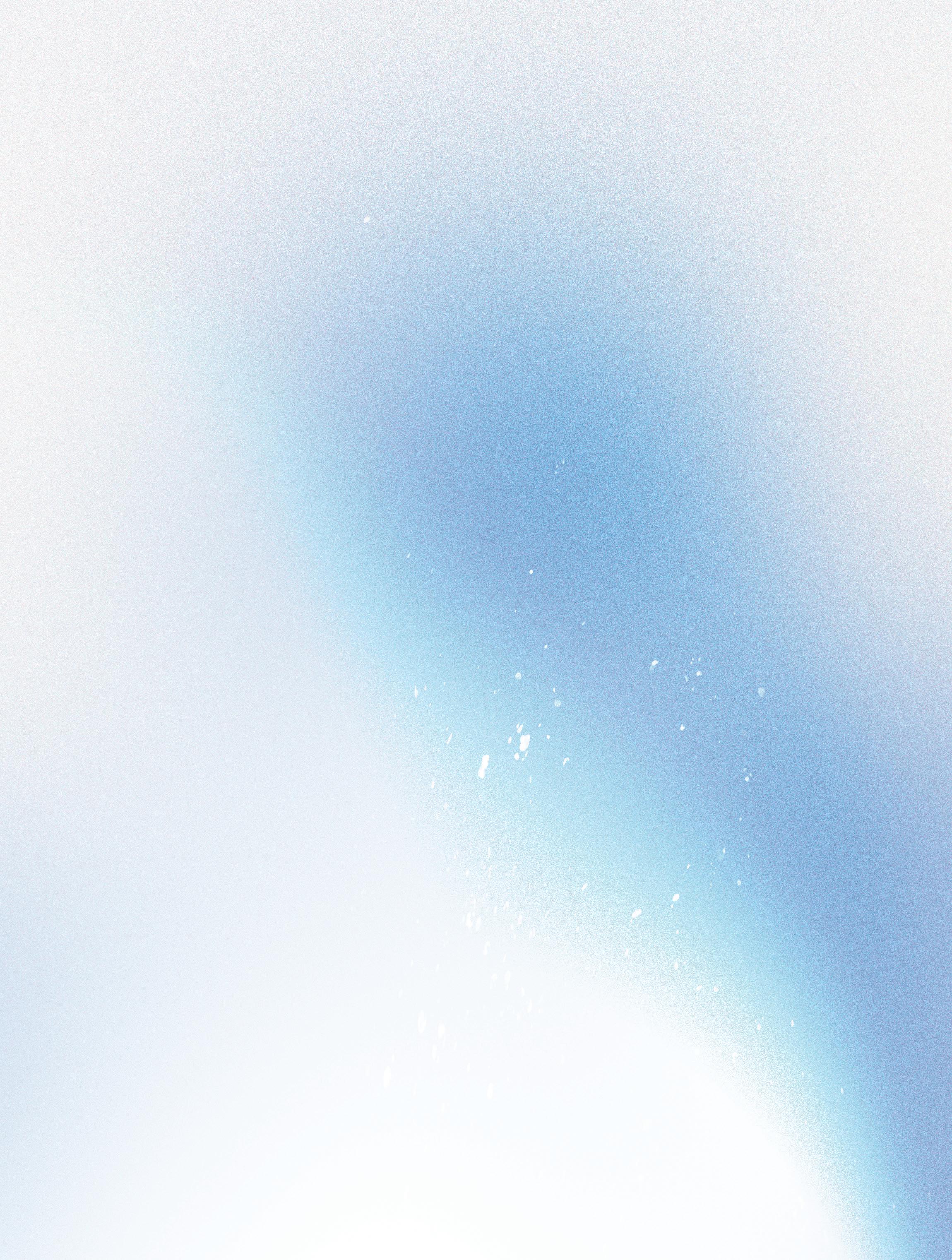
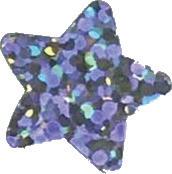
The concept of “the muse” is prevalent in the discussion of women in the arts. The use of the term “muse” has become paradoxical to its origin; it derives from the Greek word “Mousa” (singular) which means “art” or “poetry.” The plural form, “Moûsai” refers to the nine goddesses of music, literature, and science. The muses were sources of knowledge that provided divine inspiration for mortals to create works of art. Definitively, they were active subjects, creators, paradoxes to muse’s modern reference where the muse is passive and objectified.
The modern muse is typically a woman, still a source of inspiration, but a powerless object emblematic to idealised standards of beauty. The artist commands the active role in the relationship with the muse. Therefore the muse is unfairly subjected to the role of an ornament which the artist can project his deepest desires, and fantasies on; which he fears to model on himself. Male artists such as Hans Bellmer and Yves Klein mechanistically maneuvered their muses’ (women) bodies as if they were dolls. They framed them in vulnerable positions for their art; positions they would not risk criticism to put themselves in.
In response to their work, artist Carolee Schneemann began work in 1963 that used her own body as a muse for her art. She was inspired by “negative feelings about the use of women’s bodies by some contemporary artists” and created work that was a form of resistance. She made herself vulnerable, creating these works of her naked body as an act of reclamation—yet this was difficult for many to comprehend. Schneeman revealed that women could not make art in a way that opposed the patriarchal ideals of a woman, unless it was a muse being directed by a man: “if you were an attractive young woman, you couldn’t add another subversive energy; you had to ensure that your body behaved in a way that conformed to patriarchal expectations. So that was a big struggle and I didn’t know that it would be such a set of contradictions for so long: that my use of the naked body would not belong to my work, not belong to my authority.”
It is the unfortunate truth that women artists are restricted by the power of men. Dora Maar, commonly known as “Picasso’s muse” was a photographer and painter—but her association with Picasso overshadowed these own creative talents. His work documents his womanising and mistreatment of women which naturally affected Maar’s professional and personal life. In The Paris Review in 2017, Picasso’s granddaughter, Marina Picasso spoke out on his treatment of his muses “He tamed them, bewitched them, ingested them, and crushed them onto his canvas. After he had spent many nights extracting their essence, once they were bled dry, he would dispose of them.” Maar herself stated “All [Picasso’s] portraits of me were lies” and “not one is Dora Maar.”



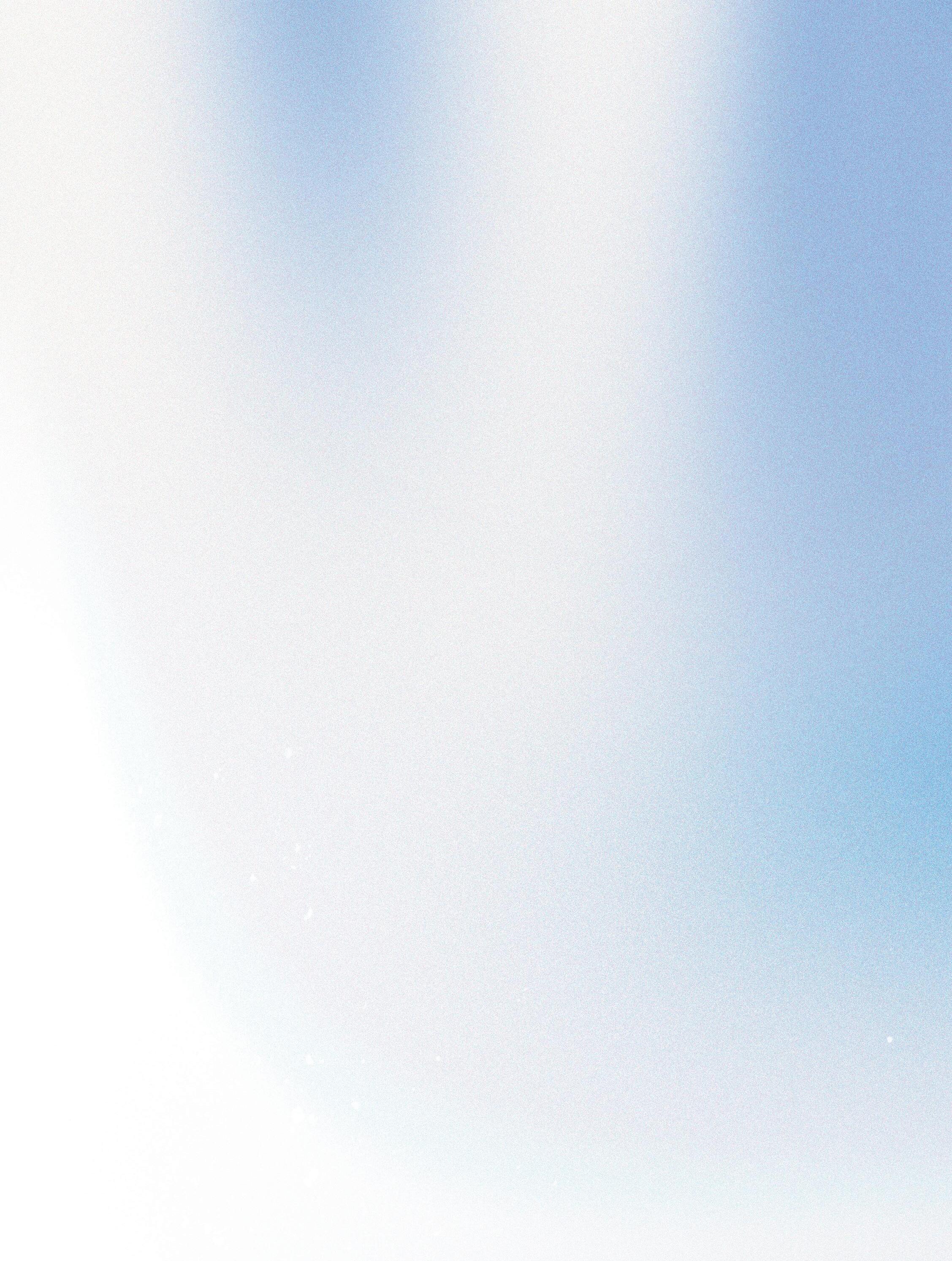
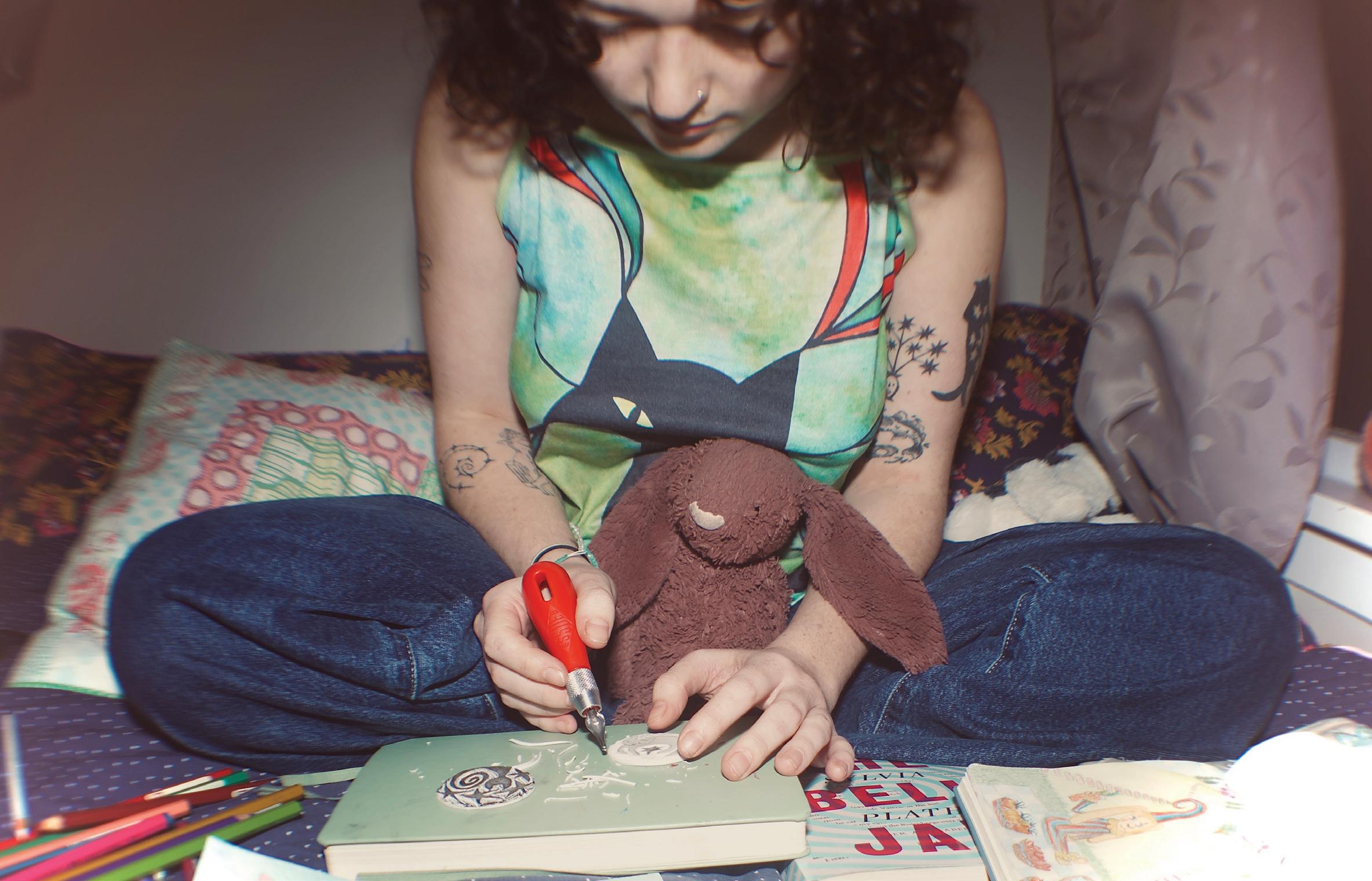
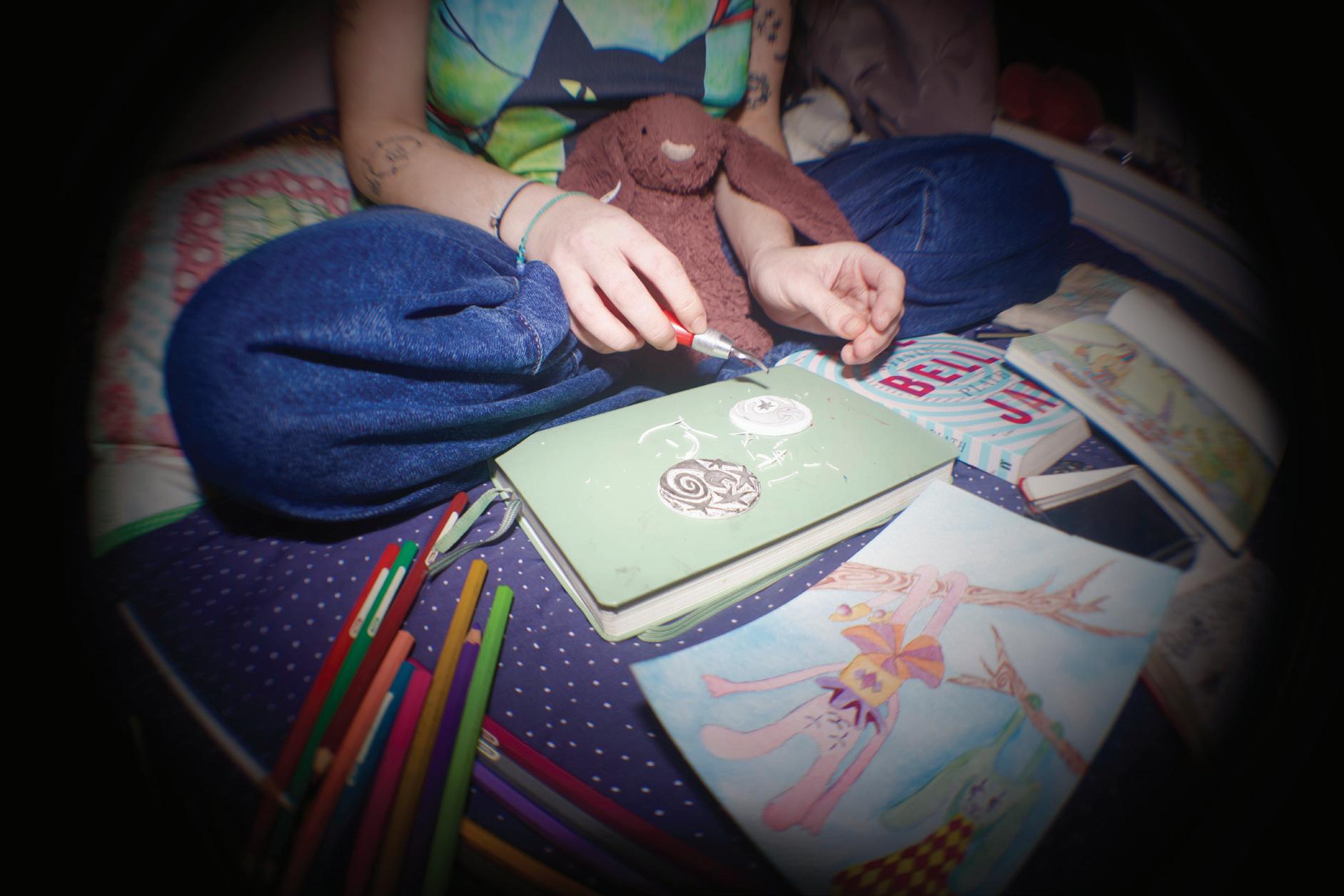

Yet, when Dora Maar died in 1997, the media did not highlight her creative endeavors as the most interesting aspect of her life and instead spotlighted her work with Picasso. The New York Times titled her “a muse of Picasso,” and The Independent suggested she would be “remembered as the most poignant of Pablo Picasso’s mistresses.” It is a depressingly common occurrence where women’s own art is shadowed by their relation to a man’s work or even just their close relation to any man. Surrealist painter and novelist, leonora Carrington was widely known as “Max Ernet’s muse,” when she was asked what she thought of it, she spoke for all women artists in saying, “I thought it was bullshit. I didn’t have time to be anyone’s muse. I was too busy rebelling against my family and learning to be an artist.”
Carrington rejected the idea of being diminished to another’s genius. In an Met Museum audio tour titled Museums Without Men, British Art Historian, Katy Hessel discusses how museum wall’s artist description for leonora Carrington can’t go without mentioning her lover Max Ernst: “Well, she’s so much more than that. And should women be considered muses? Yes, that might be an element of what they do. They might be a subject, which is an exciting, interesting aspect of their career. But also they were artists first and foremost.”A way to move forward is by contextualising women artists as artists first—with the paths that took them to success. Then, if it is relevant to contextualise their art with a relation to a man then it must come second. Women artists are much more than their relation to a man, and must be regarded as such.
Although it is exhausting reading about the mistreatment of women in the arts, acknowledgement has led to significant change. It has put pressure on the industries that fuel the mistreatment into working on creating an equal playing field where gender does not matter over talent. Changes have been made, yet there are still areas where they can be advanced further by listening to women artists with a matter of respect. Make art with a woman without an ulterior motive. Go to a woman artists gig, exhibition, play etc. and admire her work. Don’t mention what you would have added or done instead. Meditate on the artists you consume, don’t be ashamed to say it’s all men: the system was built for them. Instead, make conscious actions to consume more women artist’s work. Be conscious enough to recognise patterns of whose voices are heard and whose are dismissed. There is something so unique and powerful in the art of women, go find it.
Ruby Robertson, drawer, painter, and stamp maker.
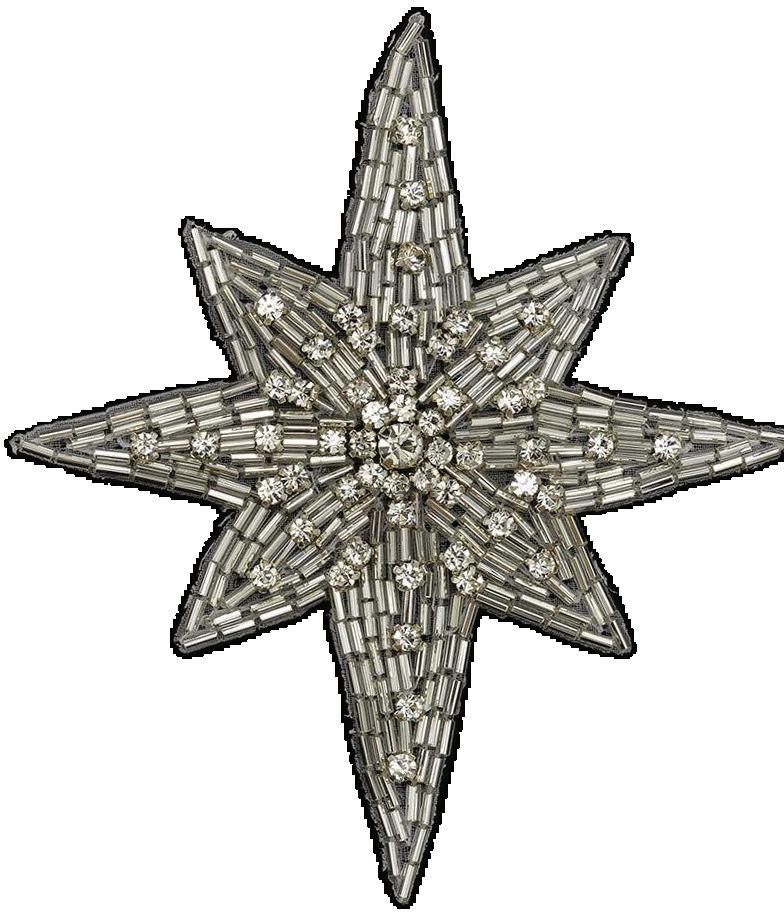

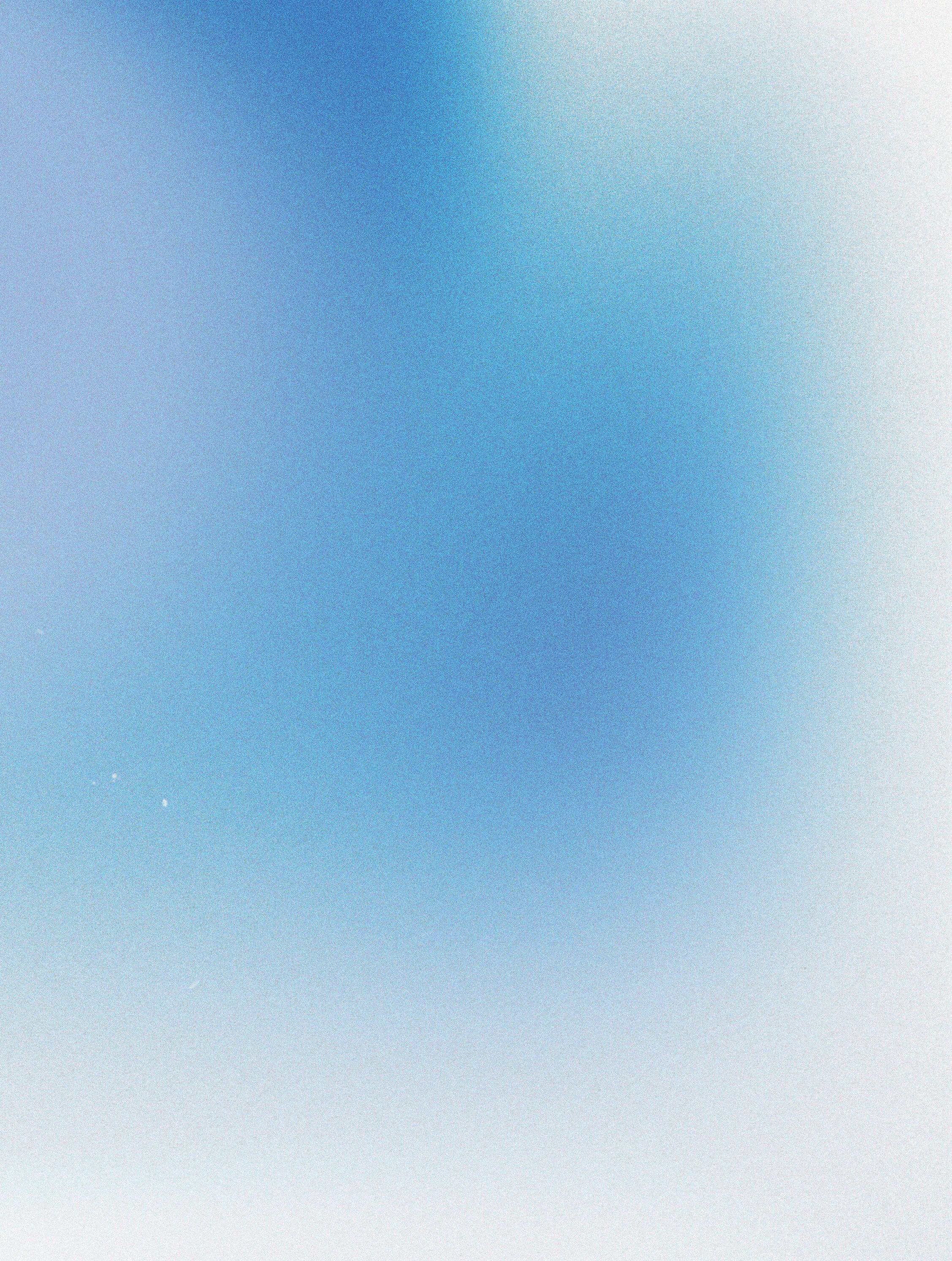
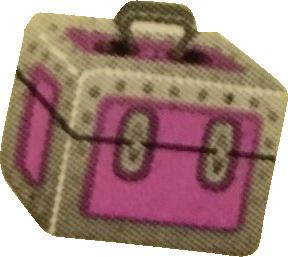
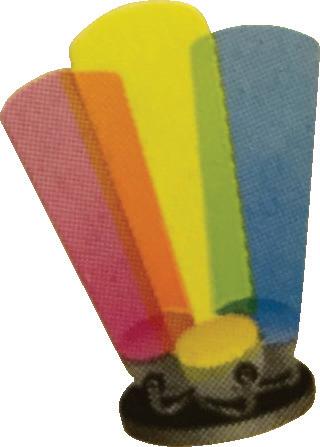


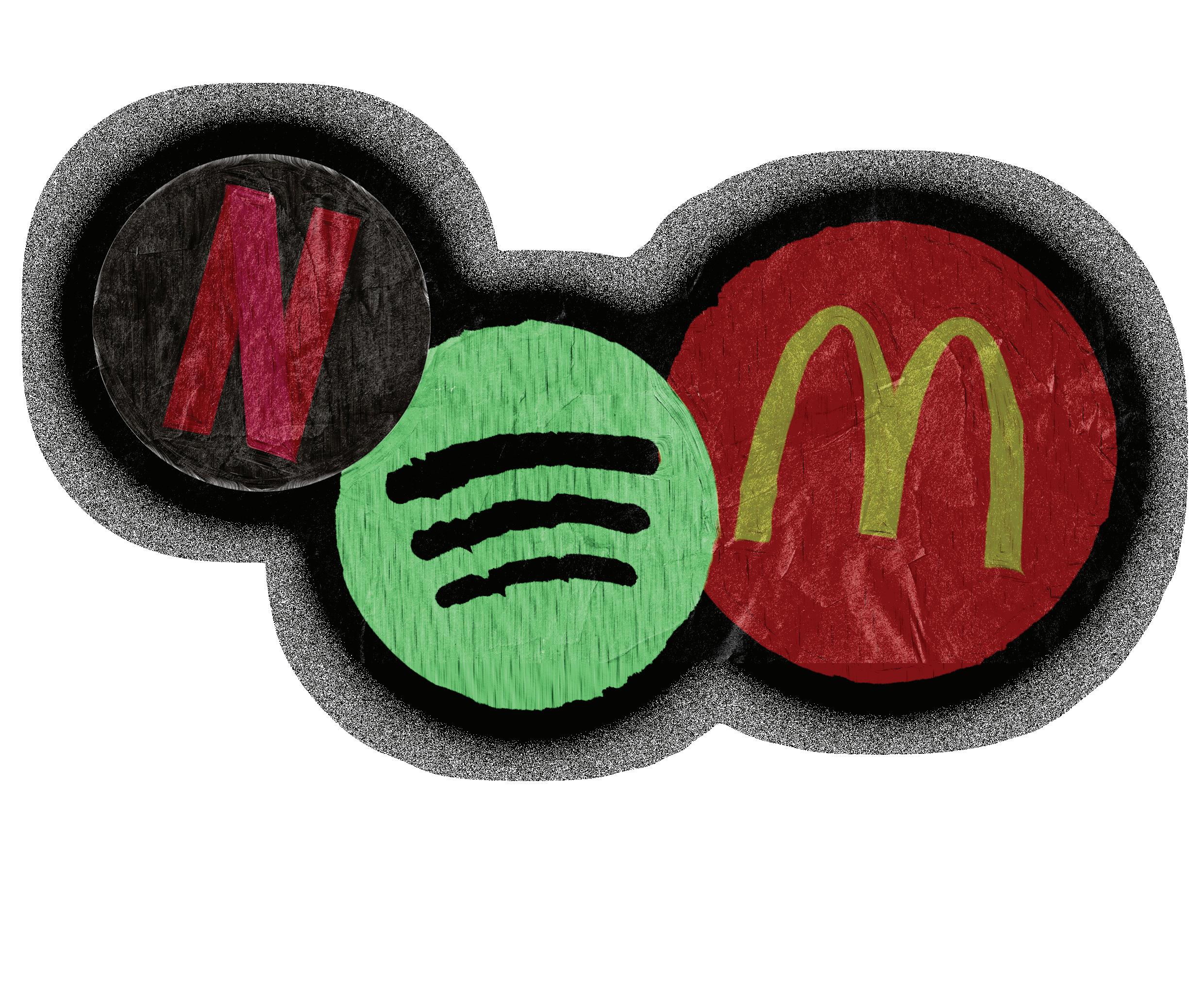
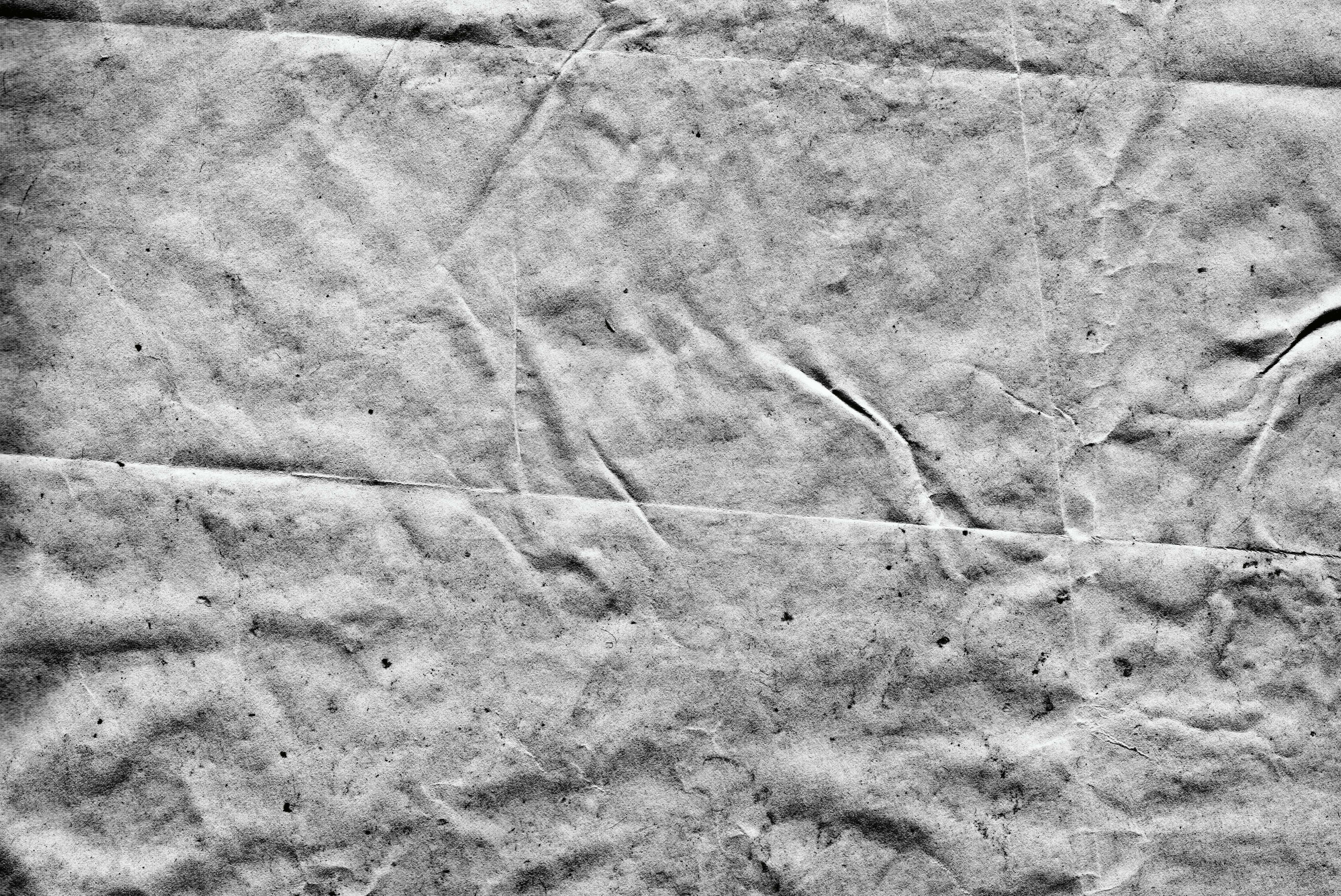



For all of you still boycotting, protesting, and generally just doing your best: I see you. I’m with you. Never give up diva, until Palestine is free (from the river, to the sea.)


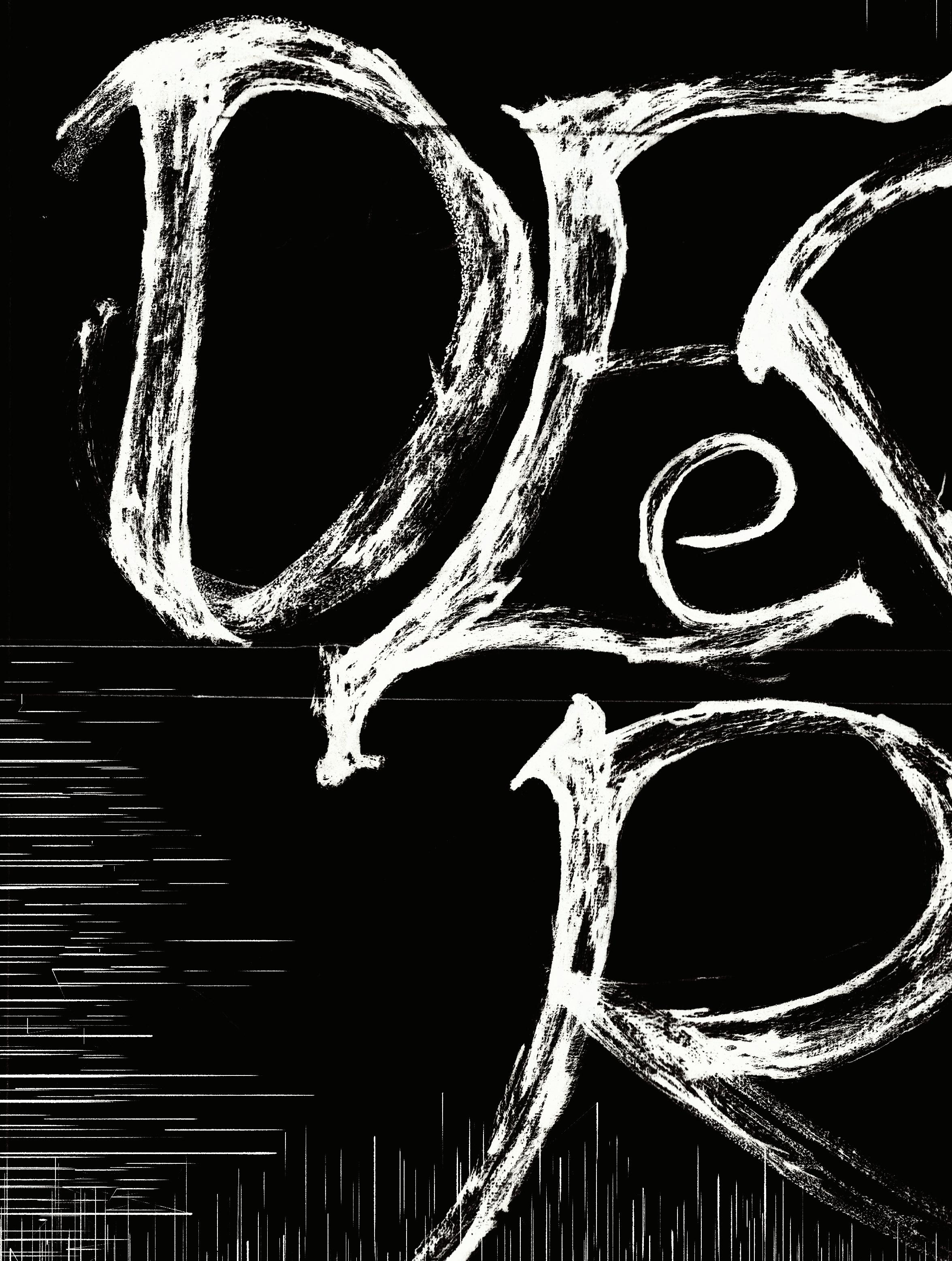
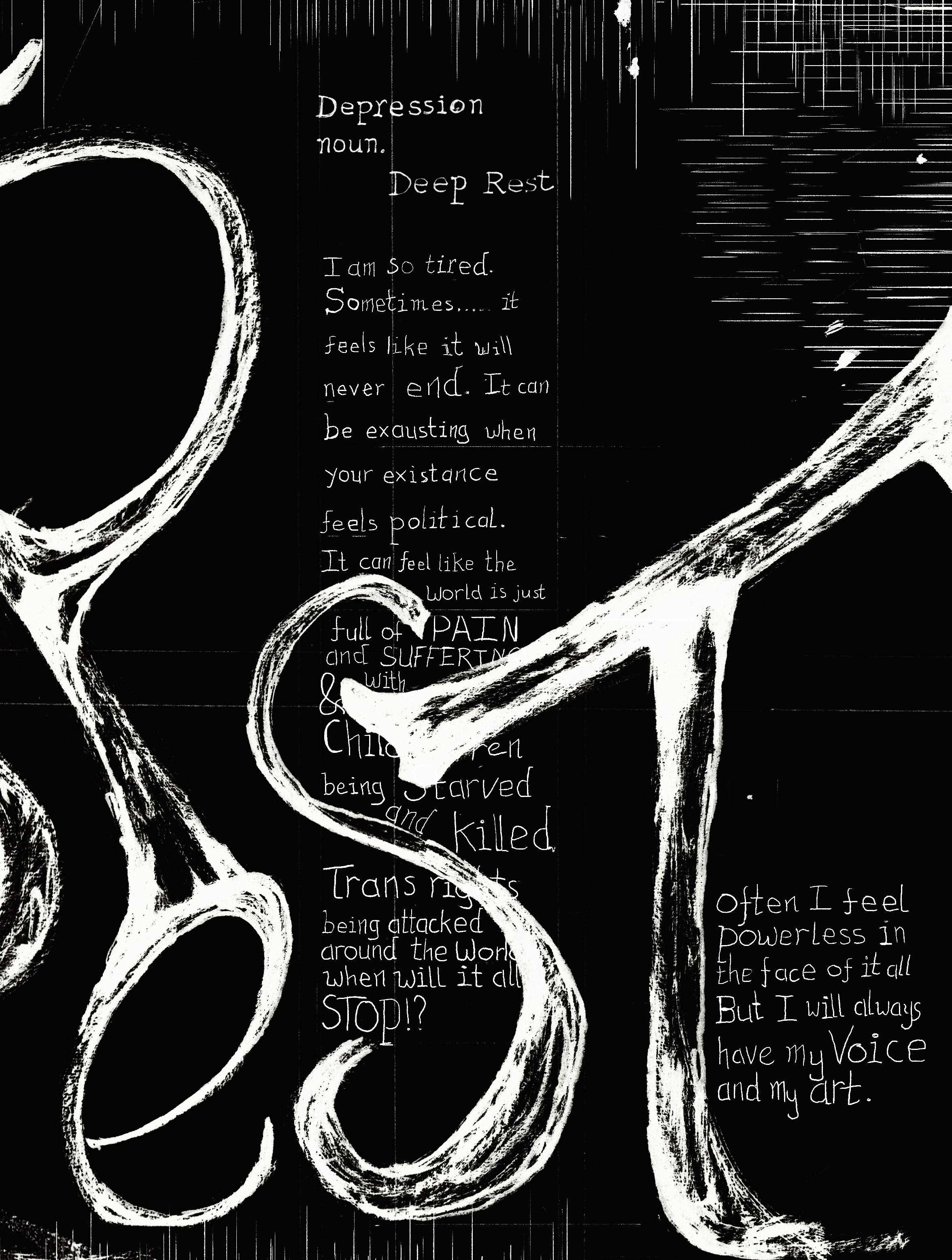

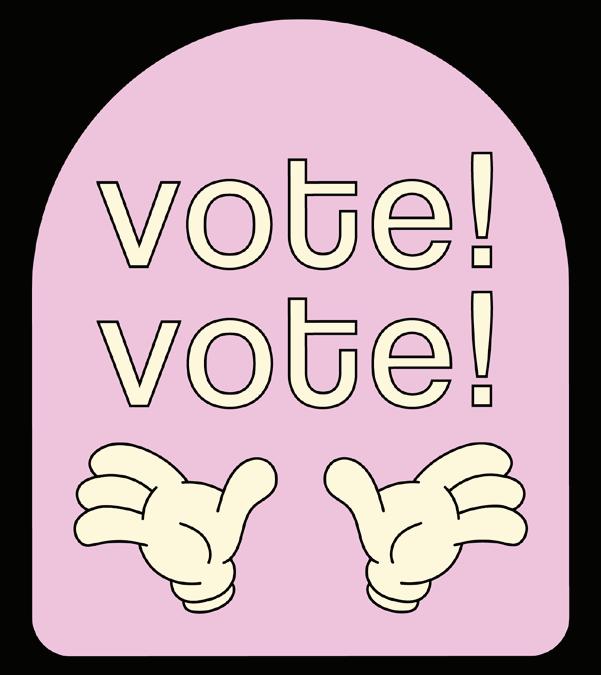
The VUWSA Student Executive is elected each year by the students of Vic. You’ll see the Exec on campus, hosting events, rallying students and in the media voicing student issues.
The VUWSA Exec are here to stand up for social issues, advocate for better learning standards and ensure the student voice is included in crucial university decisions.
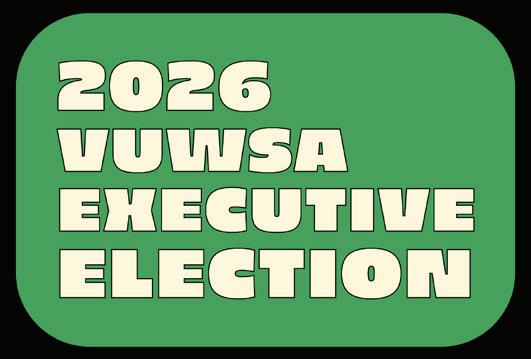
• VUWSA President
• Academic Vice-President
• Engagement Vice-President
• Welfare Vice-President
• Campaigns Officer
• Clubs & Activities Officer
• Education Officer
• Equity Officer
• Sustainability Officer
• Treasurer / Secretary
• Postgraduate Officer
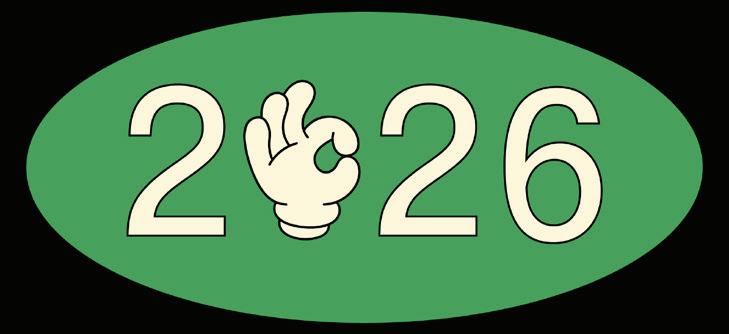

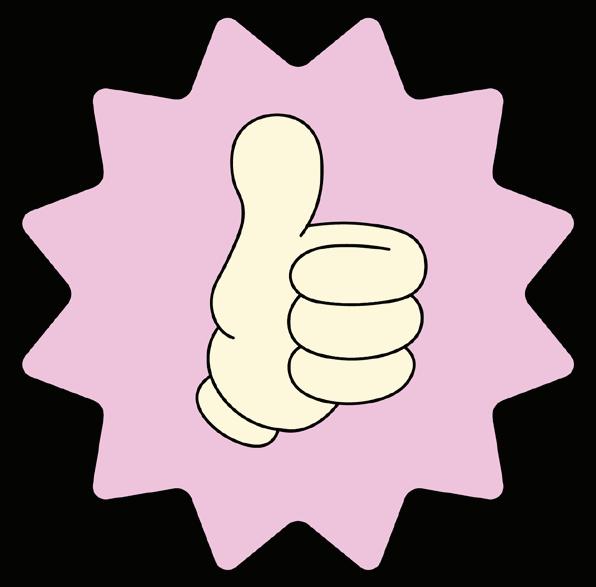




With Mia, anything is possible
I’m committed to building a campus where every student feels welcome and supported.
• Your Voice, Your VUWSA: Giving students more input into decisions and campaigns.
• Belonging and Safety: Dedicated women’s safe space and more events that connect students.
• Fair First Year Support: Backing students outside of halls with better resources and guidance.
• Cheaper public transport, fair Studylink payments, and better promotion of Mauri Ora services.
If voted President, some of my main goals are:
I’m Mia, and I’m running to be your VUWSA President for 2026. I’m a final year Communications student, and I’m passionate about making university a place where every student feels supported, heard, and able to thrive. My time as VUWSA’s Campaigns Officer and years of student advocacy have shown me how powerful it is when students have a strong voice and how much more we can do together. My campaign is grounded in values of equity, accessibility, and community. I’m committed to upholding Te Tiriti o Waitangi, working towards accessible sustainability, and making sure VUWSA decisions are transparent and inclusive. believe in collaboration, compassion, and creating spaces where every student regardless of background can succeed.
Kia ora!
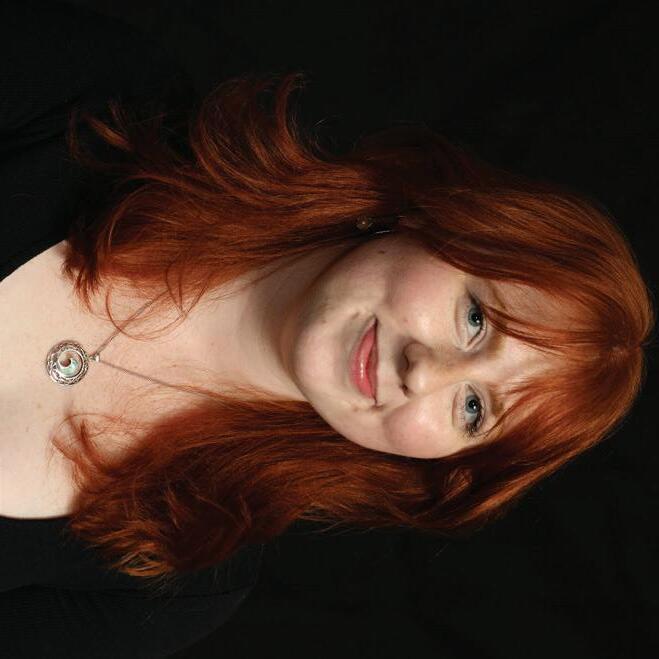
am running for president and my name is Liam, my influences are red bull, my dog, and SoundCloud. Long gone are the days where campus felt like an inviting space where you can freely meet people, in 2025 more than ever campus has felt less inviting to attend and online learning is the more appealing alternative. know how challenging it can be to break the ice with other students which leads me to step up to the role as president of VUWSA. Within this role will focus on facilitating events that naturally bring people together, building a sense of community across all three campuses where students feel welcome to study wherever they want. VUWSA is the heart of the community at Vic and yet it only feels relevant at Kelburn, with my primary campus being Pipitea, students like me feel misrepresented, detached from what is going on outside of the occasional sausage sizzle. Creating reasons to go study on campus despite your location will be improved within my presidencial term.
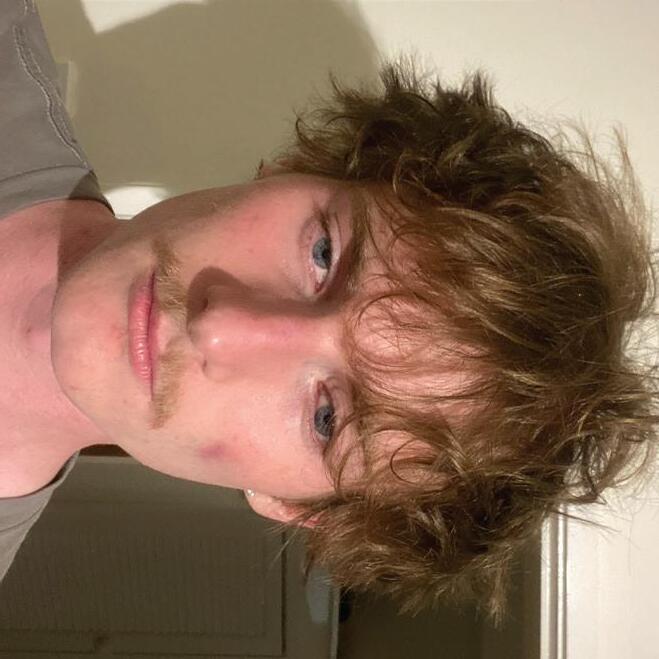
Check out @gbforvuwsa for more.
Value your voicere-elect Ethan Rogacion for Academic VP!
In 2026, I’ll continue to deliver for students by advocating for improved integration of student support services into programmes, streamlining communication and training channels between VUWSA and class reps at every faculty, and pushing the University on implementing student-focused decision-making. Because no matter your campus, cohort, or field of studythis University exists for you. Student success and experience must be at the heart of it.
This year, I’ve implemented targeted engagement between students and faculty, improved support systems for class reps, advocated for students across the University, and pushed for better communication about curriculum and policy changes.
Sometimes on the clock, always engaged. Vote George #1.
A story to illustrate my engagement skills: was in a Didi one night and got talking to the driver, who tells me he owns a business, Courtenay Kebabs. One thing leads to another and I’ve secured a major vendor for our end of the year event.
Hosting big events for the general election to hold aspiring MPs to account; Connecting the campuses by hosting more events at Te Aro, Rutherford House and OGB and working alongside relevant faculty groups, ensuring all students get the most out of their SSL; Build on existing relationships with local businesses to get more free stuff for students and host cool events.
I will also make sure that in addressing engagement, inclusion and sensitivity will be at the forefront of my mind and upholding the belief that everything be accessible because there is no one student that is more important than the other. My drive to support all students is also supported by my already existing immigrant creative arts society (ICA) that seeks to uplift the works of international architecture and design students at victoria university.
The University’s academic policies impact every part of student life: lecture recordings, curriculum design, generative AI, workloads, student services. In my mahi this year, I’ve seen the effect that every policy decision has on us students. For us to thrive, we need an Academic VP who staunchly advocates for all students and doesn’t mind getting into the nitty-gritty and fine print of policy papersand that’s why I’m running!
If I’m elected, my main focus points will be:
I will promise to always address important inequality issues like racism, homophobia, and sexism. As these are things i grew up around and feel very strongly aboutboth as someone who has experienced inequality firsthand and as someone who grew up around many individuals who have exprienced these struggles.
Kia ora! Ko Ethan Rogacion ahau, and I am excited to be running for re-election as your 2026 VUWSA Academic VP.
I’ve had the pleasure of being Clubs and Activities Officer this year. In this role, I was part of the engagement team and learned a lot about student experience and the EVP role itself, meaning I’ll be able to hit the ground running in January. This year, worked on the Where’s The Work campaign, hosted Club Exec galas, and built strong connections with students, clubs and businesses.
As an immigrant, i understand the fear in not only moving to a new university, but also moving to a new country where everything is strange and unfamiliar, an experience prevalent for both international and local students.
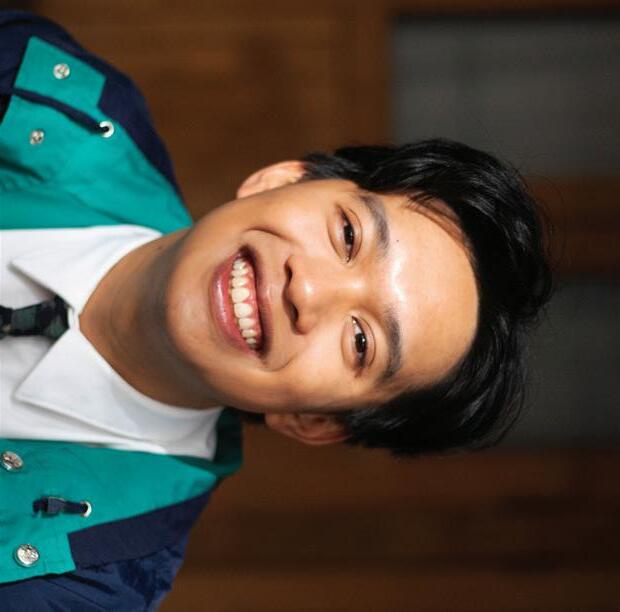

As your vuwsa engagement vice president, ill promise to be addressing and uplifting all the things that already make victoria university a great school not only for Aotearoa but also to international immigrants/ international students.
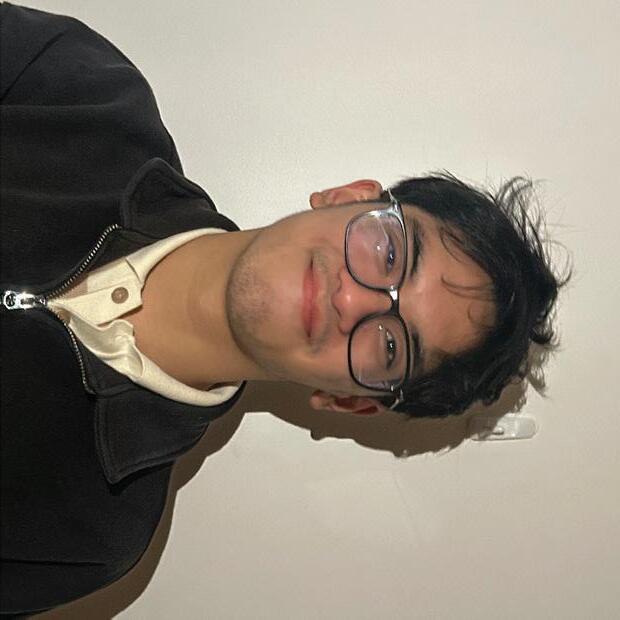
From this, will REFORM VUWSA into a more transparent, more engaging & more effective organisation. If this sounds like a bit of YOU, VOTE #1 for DONOGHUE.
Get involved at Micah4VUWSA.org
• Partnerships with other associations.
• Operational structures.
• Public accountability.
will REVIEW VUWSA’s:
• The “union” in student union.
• Clubs and Societies.
• Re-O Week.
Now, I’m asking for your support again; as President, I’m running to RETURN, REVIEW & REFORM our great student union into a powerhouse that can terrify politicians as it once did. will RETURN to VUWSA:
Tēnā koe, ko Aidan Donoghue tōku ingoa. Last year was lucky enough to be voted as your Engagement VP for 2025, and I can confidently say student engagement this year has been UNPARALLELED. This year we’ve consulted with THOUSANDS of students. Our Where’s the Work?! campaign made headlines across the country, and our slogan “No work, Sh*t Pay, Why stay?” made its way into parliament and was seen by 1.3 MILLION people. The ultimate evidence of the impact made is the fact that this election has the most candidates in DECADES. After years of presidents running unopposed, I’m suffering from success, but that only makes me prouder of the work I’ve done.
What I’ve learned from all this is simple: real power comes from students themselves. As President, I’ll ensure VUWSA is driven by students themselves, by building genuine coalitions, developing a student-led manifesto for the 2026 election, and transforming VUWSA into an engine of collective organising. The age of the advocacy model is over. It’s time for a new kind of student politics.
I’ve also served on the executive of both Massey Students’ Association and MUVSA, co-founded SJP Massey, and sat on various academic boards and committees.
I’m running for VUWSA President because the old tactics have failed. For too long, executives have relied on open letters, halfhearted protests, and polite meetings with politicians that go nowhere. Meanwhile, students are still burdened with rising fees, student debt, and the daily struggle of balancing low-paid work with study. Symbolic actions won’t win us real change; we need to organise. My name is Micah (Ngāti Kahungunu ki Wairoa, Ngāti Rakaipaaka), and I’m finishing a Bachelor of Health after transferring from veterinary school. I’ve been part of grassroots movements since was 15, including climate protests, anti-fascist organising, union activism, and mutual aid efforts throughout COVID-19.
Kia ora ko Josh tōku ingoa, ko Ngāti Ranginui tōku iwi, and I’m running to be your VUWSA President for 2026. Since the beginning, my kaupapa at VUWSA has been fueled by my lived experience in child poverty, and the worsening realities of student hardship as a takatāpui rangatahi. For the past two years, I’ve been on the front lines at VUWSA fighting for renters’ rights, student poverty, and equitable outcomes for our most vulnerable. This included helping grant tens of thousands of dollars in support to desperate students, and running countless events promoting support, wellbeing and inclusion. I have run successful campaigns against government inaction, alongside MPs and student associations across the country; all to demand a better future. But the job is far from over. As VUWSA President, I will fight for fairer fees, stronger renting laws, and more accessible student health and wellbeing services. will hold the university and government to account, whilst working collaboratively to get the most out of your experience at uni. This is while ensuring that students’ money is only spent in ways that can create lasting change. Vote Josh Robinson #1 for VUWSA Presidentand let’s get shit done, together.
Josh Robinson
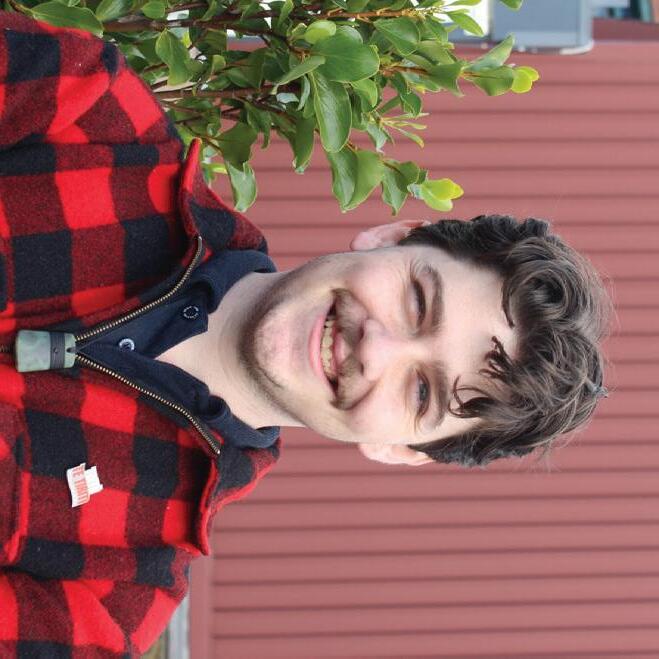
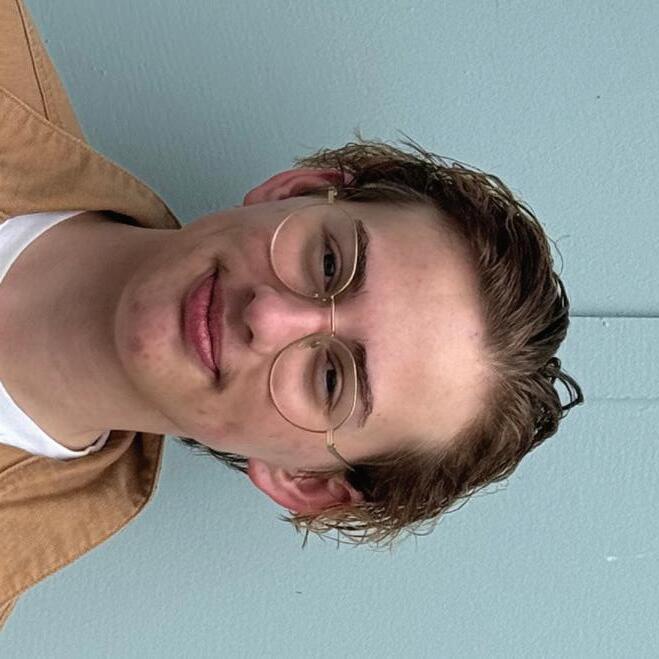
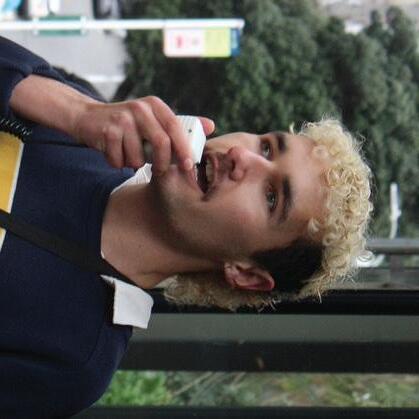
I recognise the importance of strategic and authentic advocacy. I want to lead campaigns that inspire change and encourage a more inclusive environment where every student, regardless of their background, feels seen and supported. My goal is to leverage my knowledge and dedication to create campaigns that not only highlight pressing issues but also mobilise our student body toward tangible solutions.
Having studied the statistics and harsh reality faced by Pasifika people,
As a proud first-year Pasifika student in Public Policy, I’m excited to explore governance and advocacy, aiming to make a meaningful impact on our communities. am deeply motivated to advocate for the voices that often go unheard. My cultural background makes it easier for me to understand the challenges that Pasifika Students face, such as tackling racism, the housing insecurity in the Wellington region or the rising cost of living.
Kia Ora and Ni sa Bula Vinaka

Actively Honouring Te Tiriti: Upholding Te Tiriti means action, not just words. I’ll continue VUWSA’s mahi by supporting Māoriled initiatives and deepening the partnership with Ngāi Tauira, ensuring Māori voices shape decision-making on campus. Fighting for Social Justice: VUWSA has a proud history of raising its voice for justice, and I’ll keep that voice loud. I’ll amplify campaigns on student welfare, fight for affordable transport, pressure the university to divest from fossil fuels and continue to stand in solidarity with Palestine. He aha te mea nui o te ao?
He tāngata! He tāngata! He tāngata!
Kia ora! I’m running for Campaigns Officer to give students a bold, transparent, and accessible voice. My vision is a VUWSA that brings campaigns closer to students: every voice is heard, every struggle supported, and every win shared. My campaign is driven by three goals: Unapologetically Empowering Working Students: Juggling work and study is tough, especially when you need to pay the rent. You shouldn’t be alone. Building on my experience with Unite Union, I’ll build on VUWSA’s support for working students by strengthening ties with unions, backing living wage campaigns, and pushing for better education around workplace rights.
I believe I am a strong communicator and value inclusivity and kindness. I’ll make sure your voice shapes VUW’s activities—and that your calendar is never empty.
With your vote, will work to ensure that Victoria University’s clubs have everything they need to foster an environment where all students feel encouraged to thrive socially. Being part of Uni clubs has really expanded my social circle, and participating in Uni activities has been some of my favourite experiences at university so far. Every student deserves the same opportunity.
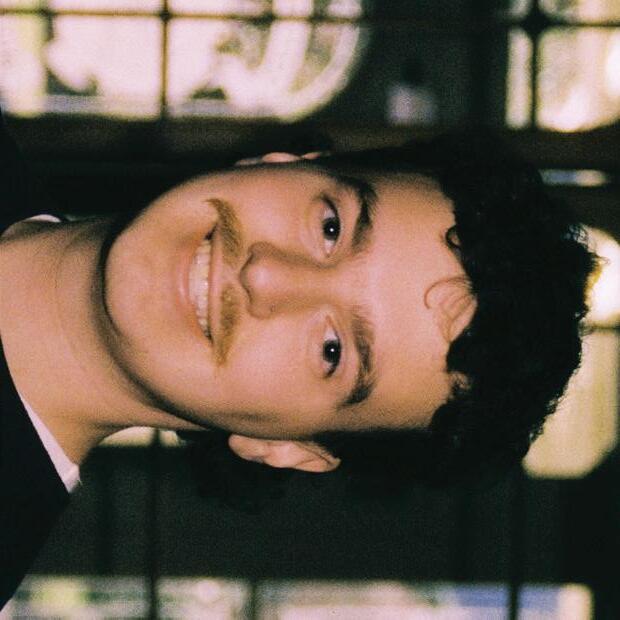
Is life feeling a bit Sleep, Eat, Uni, Repeat? It doesn’t have to!
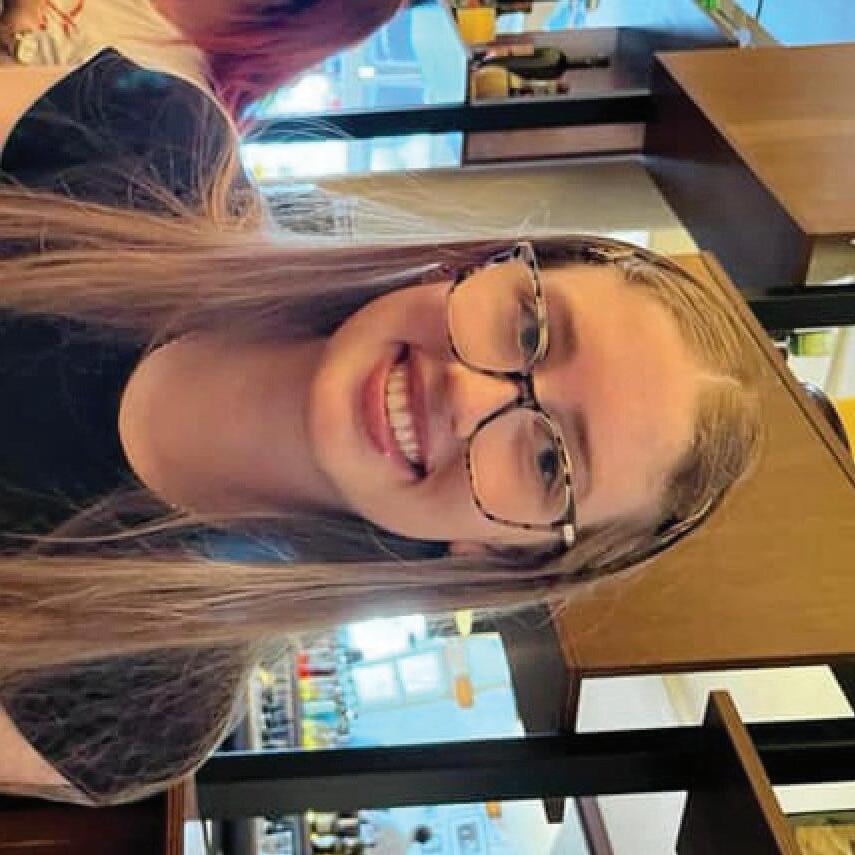
GET STUDENTS ENGAGED.
I’m incredibly enthusiastic about the Vic community! I’m part of the Tramping Club, Working Students and I’m the Social Officer on the Latin American and Spanish Club. Engagement should be kanohi ki te kanohi, face to face. It means helping groups collaborate, prioritising communication and building a community that welcomes everyone.
I’ll bring this kaupapa to VUWSA, supporting students from all backgrounds to get engaged with the 2026 election, to boost student power.
I’m excellent at community engagement! I’ve worked for the Electoral Commission, encouraging diverse communities to vote.
I’ve studied Aotearoa’s great protest movements, and students are always at the center. We need to keep it that way. Whether protesting for paid placements in teaching and healthcare, cheaper public transport, Winter Energy Payments or the critical need for justice in Palestine, VUWSA can give students the tools to get organised and protest effectively and powerfully.
Kia ora! Ko Charlotte tōku ingoa. E ako ana au hītōria, Pāniora me te reo Māori! As Engagement VP I’ll ensure VUWSA secures wins for students at the 2026 Election, I’ll campaign for the Living Wage for everyone, and I’ll organise stronger campaigns and protests to improve your life here.
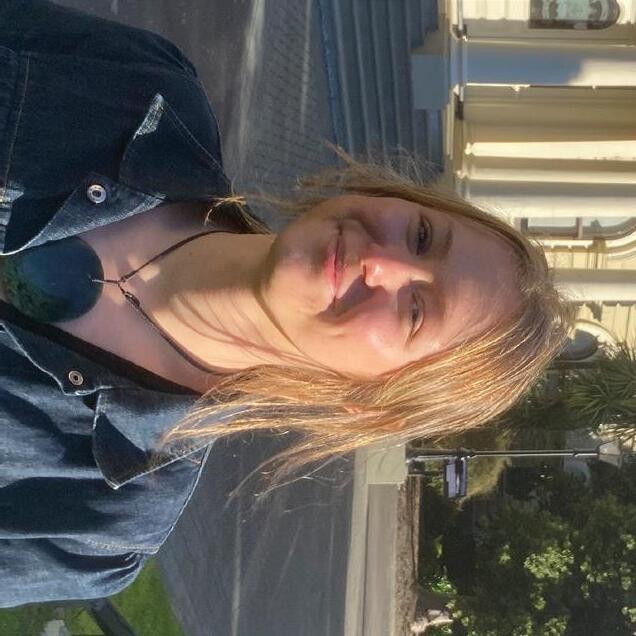
Simeon Collier-Foley (they/them) and I’m asking for your #1 vote for VUWSA Welfare VP. I’ve always been an organiser for my communities. I have several years experience as a climate justice campaigner with Generation Zero, connecting LGBTQIA+ rights, disability justice, renters rights and environmental sustainability to a climate just future. I’m excited to bring my knowledge and connections to the VUWSA team to lead an intersectional approach to welfare for all students at Te Herenga Waka Victoria University of Wellington, while I complete my studies towards a degree in Environmental Studies and Statistics. Learn more about me at https://www.instagram.com/simeon4vuwsa/ Most importantly, vote to KEEP Māori wards in the local body election.
Celebrating our trans, Non-binary and Intersex students, and campaigns like the on have been working on this year to expand gender affirming care, would also like to try some things again such as the womens rep group initiative which started back up this year but it fell through, have some ideas on how to set this up better and bring a new form of representation to our university. Overall, my goal for 2026 is to make the change you want to see at our university. If you have any questions, please reach out @asspenbaspen
Kia ora, I’m
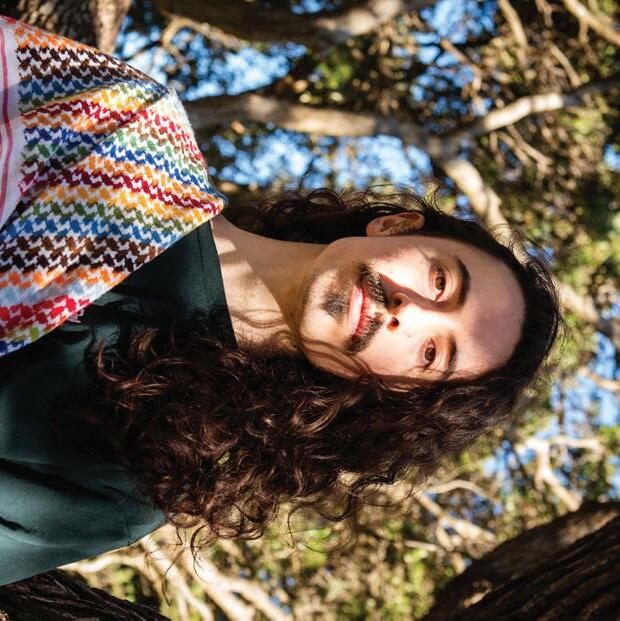
Kia ora, I’m
Aspen, a third-year Theatre and Media student, and I am running for the role of Welfare VP!!! For the past 9 months, have had the privilege of being the VUWSA equity officer and have worked with some really amazing people on some really amazing projects. I am excited to stand again, as think have some really awesome plans lined up, these include (but are not limited to) a dedicated womans space, Regular welfare/equity drop in sessions to make sure your voice is heard, and the continuation of events, such as Flourish
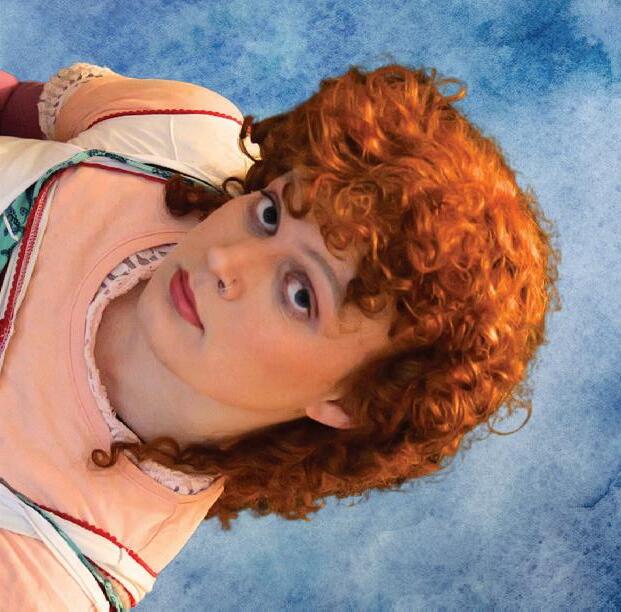
Vote Pyper #1 for an equity officer who will fight for your experience so you don’t have too
Through leadership roles and student repping, I’ve developed the practical skills and connections to create opportunities for your whakaaro/thoughts to be heard. The breadth of my law and global studies degrees, alongside my passion for all things academic, means I’m always engaging across faculties and disciplines. I’ll work so that our favourite courses become the norm, not the exception. The whole of Te Herenga Waka can and should support our success.
• Increase support for and encourage the embracement of the culture of international students&students of immigration backgrounds
• Broaden the university’s gender affirming care services
• Pressure the university to stand in support of our Tangata Whenua and rainbow students against harmful government legislation
• Broaden what qualifies students for Te Amaru/the allowances students get
Kia ora! I’m Isla and I’d love to be your Education Officer in 2026. In this role, I would always be checking that we’re getting out what we’re putting in. Ever slaved away on an assignment, only to find out that getting the grade you wanted required some kind of mind reading? Marks shouldn’t come as a surprise; course expectations should be clear from the start. Tired of trying to engage with courses that aren’t trying to engage with you? Courses and their delivery styles should cater to our needs. Wondering where to next? Courses should always be taking us somewhere –whether that’s giving us the skills to dive deeper into academia or to attract job offers.
• Pressure the university to broaden their disability services/ allowances
• Extend disability support to students pending/unable to receive accepted diagnosis
Alongside advocacy I believe that celebrating culture and identity is an integral part of community and equity. want to collaborate with students from various cultures and backgrounds to organise celebrations throughout the year allowing everyone to feel at home, regardless of whether their home is here in Te Whanganui-a-Tara or on the other side of the world. Everyone deserves to feel seen, heard and accepted. With me in office can assure you that will push for your voice, your identity, and your culture to be represented and celebrated.
As equity officer, some of my main goals include:
Kia Ora! My name is Pyper (they/them), and am running to be your 2026 Equity Officer. I’m dedicated to fighting for every student to have an equitable tertiary experience, and am willing to do whatever it takes to make that happen. I have a history of advocacy work in the diversity field, and have the experience to make results happen: from creating the national rainbow diversity campaign for the NZCF; breaking 150+ years of the status quo failing rainbow cadets, to fighting the disability system in highschool to make sure my classmates and I were given equal opportunity.
Kia ora koutou, ko Paige toku ingoa and I am running to be your equity officer for 2026. My campaign is centered around consistent advocacy, revival of culture within our university as well as reinstating a sense of pride in all students here at VUW. I want to advocate for your rights regardless of who you are or where you come from. believe that everyone deserves to study in a safe, supportive environment and that the essential services are accessible. Whether it be learning support, health services, renting advocacy, or somewhere between I intend to ensure these resources are accessible and accommodating for ALL students to engage with.

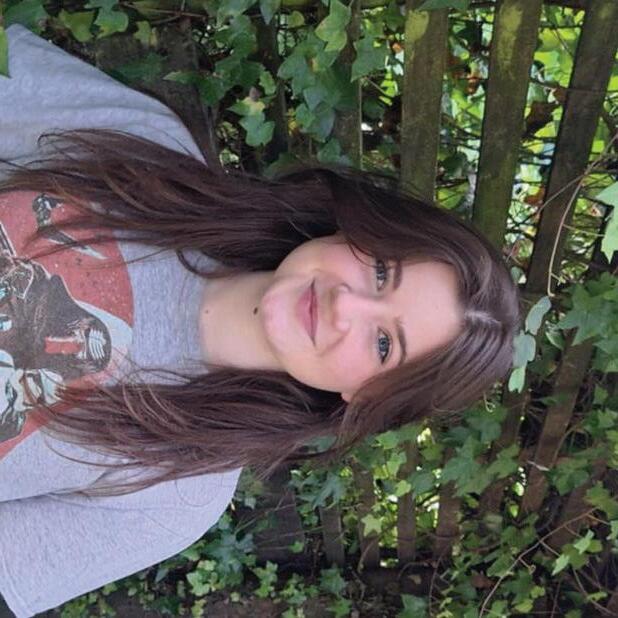
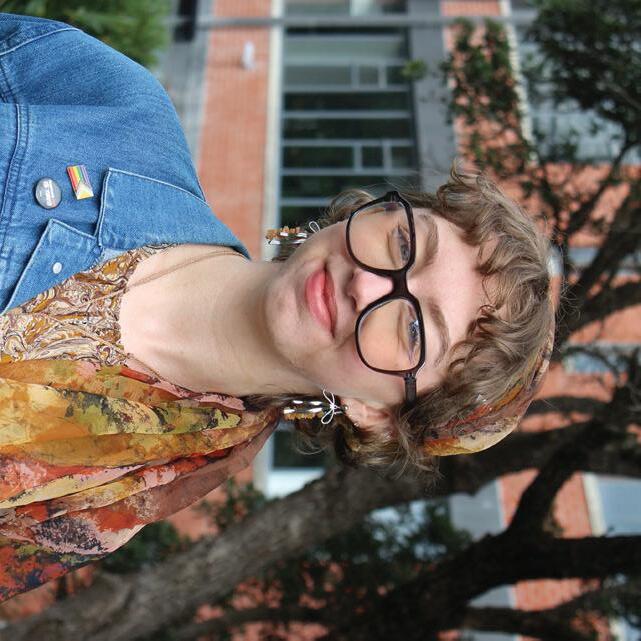
Re-elect me, because you deserve a university that listens and acts.
Kia Ora koutou, ko Cam Dickson tōko ingoa. I’m Cam, and I’m running to be your VUWSA Clubs and Activities officer for 2026! Anyone who knows me knows how much I love clubs and what they provide –at the end of the day, they’re integral to the Uni experience! Whether it’s running events with the Vic SVA or organizing lectures for the Victoria Math Club, I’ve spent my fair share of time on club execs, and know what areas might need a little extra support. And of course, I’ve attended tons of events from other clubs, and I’ve had nothing but a good time! Clubs provide opportunities for us to meet people, collaborate on amazing events, make real change, and pursue what we love –so, let’s support them to do that. From Chess to Basketball, International Students to Engineers, and Volunteers to Accountants, I’ll help clubs to drive membership, acquire funding, and provide incredible events and services for the VUW Community. This is my opportunity to give back to clubs who have supported me to grow, accepted me without reservation, and truly enriched my experience at VUW. Thank you, and know that I sincerely appreciate it. Let’s help clubs.
Kia ora and namaste! Ko Aría tōku ingoa — served as your Education Officer in 2025, and would love to continue to do that next year! This year, I’ve focused on making university policy fairer. reworked the Disabled Students Policy, pushed for clearer marking standards, faster feedback, and shaped the university’s approach to AI — making sure guidelines protect integrity without punishing responsible use. I gathered student data and took your feedback on AI and work-integrated learning conditions directly to the boards and committees that make those decisions — the ones that shape your everyday study. Too many policies are written without students in the room. I’ve made sure your voice gets there — and want to continue doing that next year. I know I can’t represent every student on my own — that’s why I will keep asking for your help, your feedback, your ideas. I’ll work with class reps and help improve student-lecturer communication. I’ll fight for accessible spaces — physical and digital, more study spaces, fairer assessments, and clearer deadlines. want better ways for you to provide feedback — and see action from it.
• Make your voice heard by creating open forums, surveys, and feedback channels, and advocating for equity and access across the University. I’ll bring energy, persistence, and passion to representing you — ensuring every student feels seen, supported, and valued at Victoria.
• Support Class Reps, Faculty Delegates, and Rep Groups with training, mentoring, and backing their initiatives.
• Stand up for students in academic spaces by ensuring fair workloads, transparent decisions, and strong advocacy at Faculty Boards and Committees.
Austin Machido, and I’m running for Education Officer because believe every student deserves to be heard, supported, and empowered in their academic journey. Born in Zimbabwe and raised in South Africa, know what it means to face challenges, adapt, and find belonging in a new community. That experience has shaped my passion for resilience, representation, and making sure no student feels left behind. When first started uni, honestly wasn’t planning on stepping into student leadership. After being so involved throughout high school, I wanted a break. But my love for advocacy never left, and it has brought me back, ready to serve again, this time for the Vic community. As Education Officer, I will:
Hi, I’m
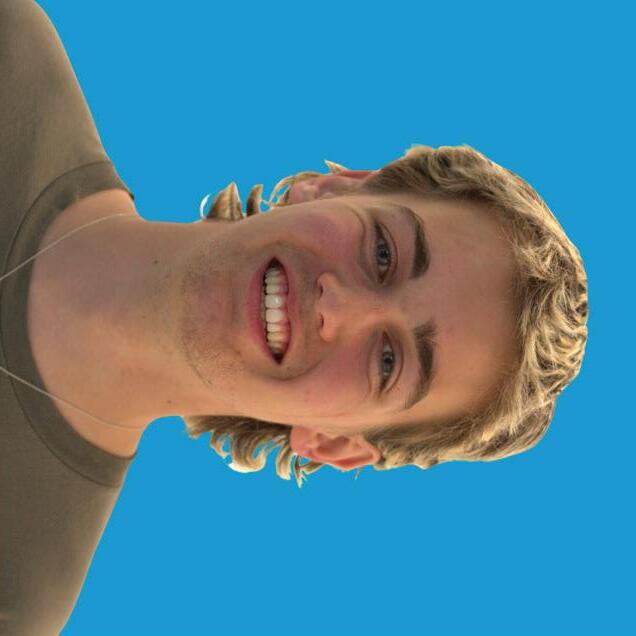
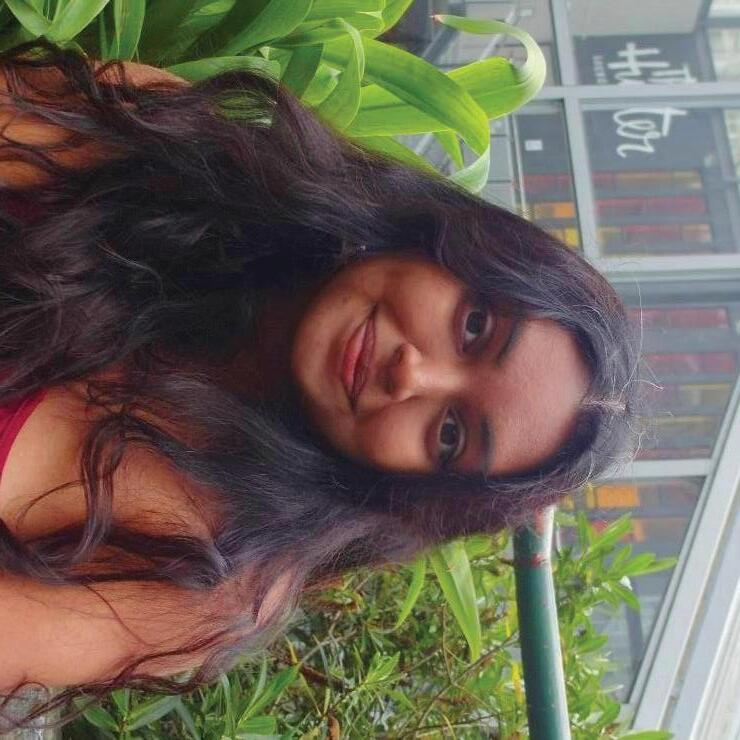
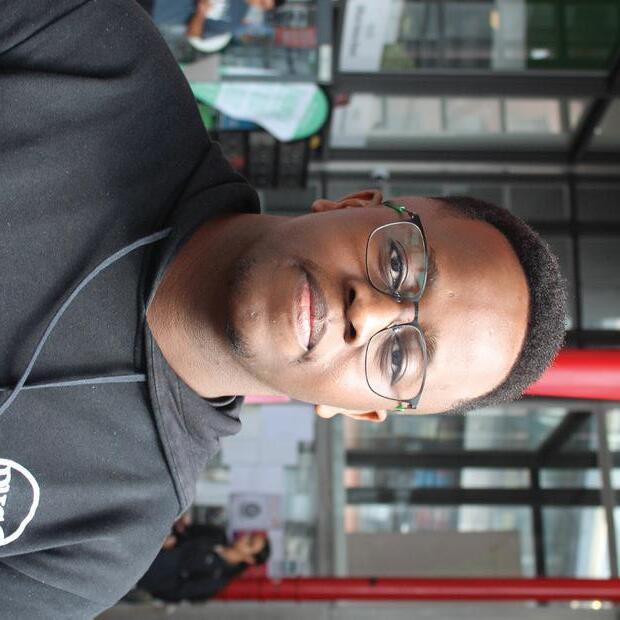
https://tinyurl.com/2s3zz6wu
More details on my Reddit post:
In addition, to improve transparency and engagement between the VUWSA exec and the student body, will maintain an Instagram page for regular updates on my campaign work, as well as an easy means of contact for questions and suggestions.
• Vote Ben for a greener Vic
• Advocate for a climate-conscious VUW
• Keep up the push to electrify VUW vehicles
• Support the campaign to divest from fossil fuels
• Push for cheaper busses
Responding to the ecological disaster that our planet is heading towards requires action from institutions of all different sizes. Victoria University must act. As your sustainability officer, I will push for change to do our part to respect the planet that we have inherited. So what can we do? We can:
Cooperation with organisations within and outside the student body is essential to making the strongest campaign possible.
As sustainably is chiefly a systemic and economic issue, my work as sustainability officer will be focussed on campaigning for effective and free public transport. Reduced transport emissions aside, this would give time and money back to students who don’t have the resources to support environmental justice. will also work to ensure VUW upholds its promise to divest from fossil fuels. My activism background has given me the skills and knowledge need to feel confident in my ability to organise these campaigns, as know have a community of experienced activists behind me.
Suffice to say, I care a bit about the environment!
In year 9 and 10 my YouTube feed was exclusively about the impending climate doom that our planet is heading towards. Since then, have been in my local youth council, have attended climate protests and school strike for climate, urged my local council to take sea level rise seriously, and attended SS4C.
Sustainability is about answering a simple question: how can we, as a society, live to keep living?
Kia ora, I’m Colden (20, they/them). reject the greenwashing notion that sustainability is about minimising environmental harm to allow business as usual.
I am studying a BSc majoring in Environmental Science and Development Studies. believe that sustainability on campus should be guided by kaitiakitanga, our responsibility to care for each other, our whenua, and the future. Over the years, have been involved in youth groups and research projects that have strengthened my passion for protecting the environment and supporting communities. Whose experiences have shown me that sustainability isn’t just about the environment; it’s also about equity, wellbeing, and ensuring that student voices are heard in shaping solutions. At Te Herenga Waka want to make sustainability accessible and more integrated into everyday university life. If elected, I’ll work to build a culture of collective care and responsibility at our university. Together, we can make Vic a place where kaitiakitanga guides the way we study, live, and connect.
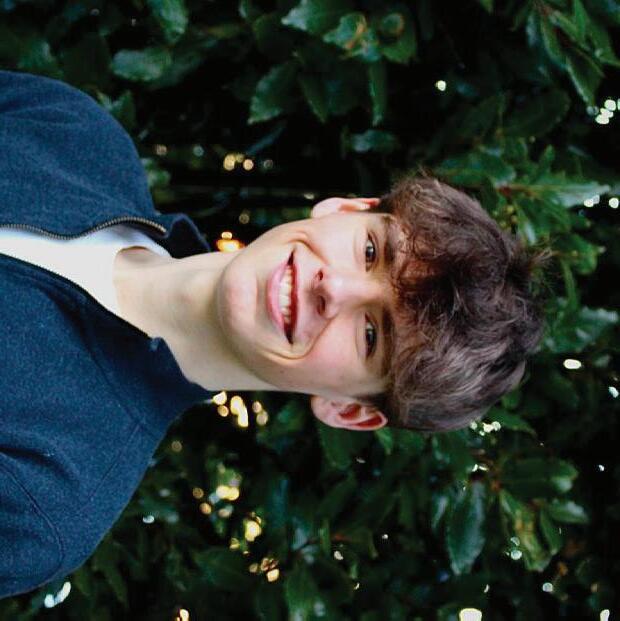
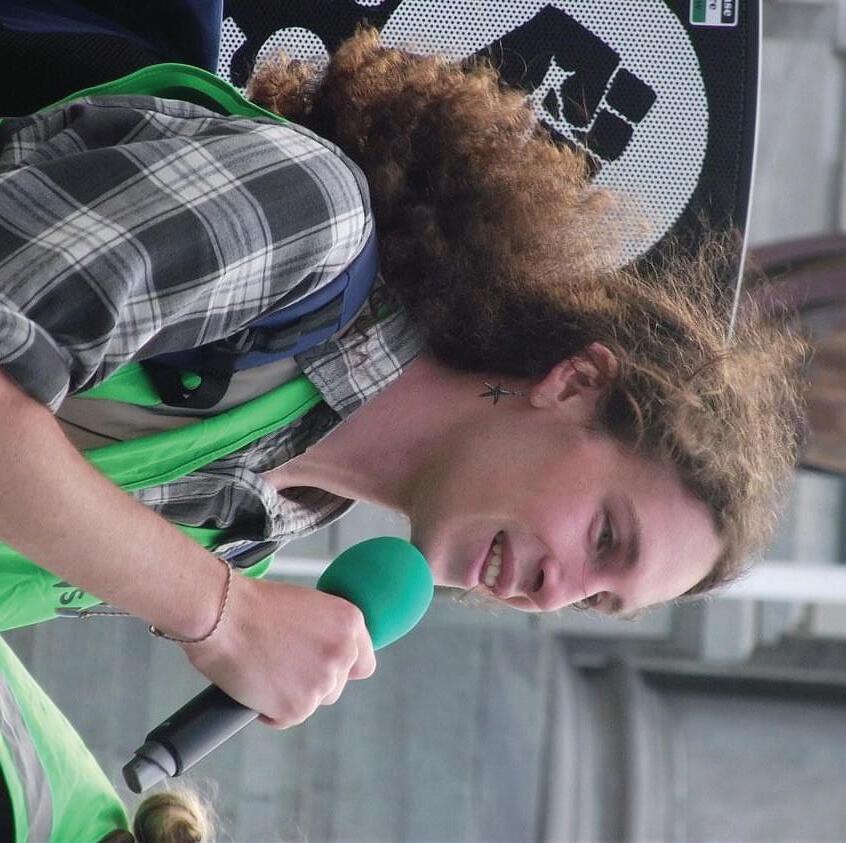
Tena Ra Tatou, am Rebekah Tolhopf, and am running for Sustainability Officer in the 2025 VUWSA elections.
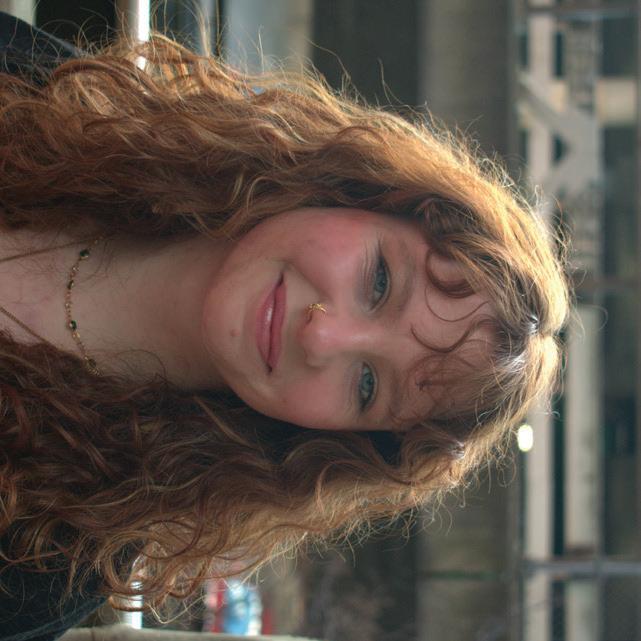
Learn more about me at https://www.instagram.com/simeon4vuwsa/ Most importantly, vote to KEEP Māori wards in the local body election.
2. Collaborating with university climate action groups. As sustainability officer I would want to create a space for university climate groups to come together and create university-wide campaigns and discussions. Seeing how these groups can support each other, share knowledge and work towards larger scale organisation. 3. Working to reduce the university’s environmental impact. Continue to hold the university accountable in their sustainable policies and work together to creatively address those issues important to the student body.
Please vote for me as equity officer if you would like to.
Kia Ora, I’m Edie (She/Her). By this time next year will be finishing off an Honours in the Study of Religion. have significant experience dealing with chronic illness as well as accessing gender affirming hormone therapy. Education is a fundamental right for all people and ensuring maximum accessibility is imperative. stand against the ‘sit on your hands’ style of government we have had for the past few years, as well as the use of generative AI.
Kia ora, I’m Simeon Collier-Foley (they/them) and I’m asking for your #1 vote for VUWSA sustainability officer. I’ve always been an organiser for my communities. I have several years experience as a climate justice campaigner with Generation Zero and am excited to bring my knowledge and connections to the VUWSA team to carry on the work towards fossil fuel divestment, an on-campus community garden, and a truly sustainable climate-just Te Herenga Waka Victoria University of Wellington, while complete my studies towards a degree in Environmental Studies and Statistics.
1. Implementing sustainability workshops and education programs. This means making information accessible to students about on-campus recycling programs, such as the special recycling walls, as well as broader Wellington programs such as the Te Aro Zero Waste Centre. It also looks like increasing clothing repair programs, offering talks on implementing sustainable practice and facilitating conversations about our climate crisis.
Vote Sophie for Sustainability! As sustainability officer want to host sustainability workshops, work with university climate groups, and keep the university sustainable. currently study an LLB/BA and aspire to build sustainable practise into the law. By working collectively, I believe we can create positive change, and demand more from our city. I would love to help us do just that by:
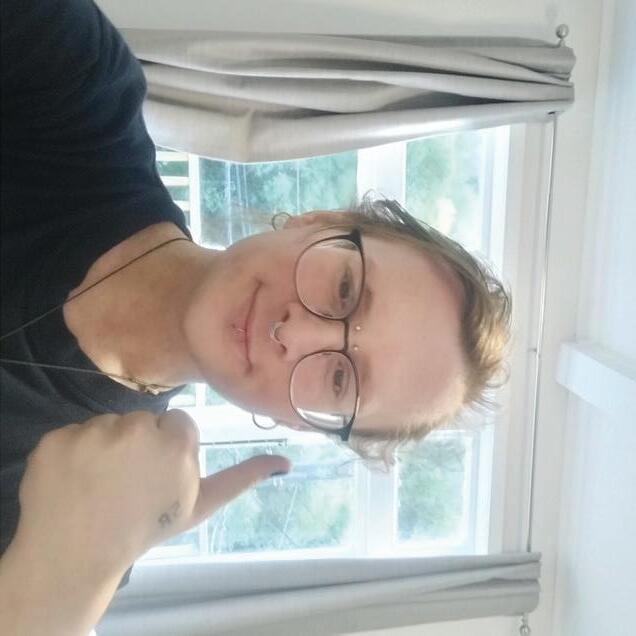

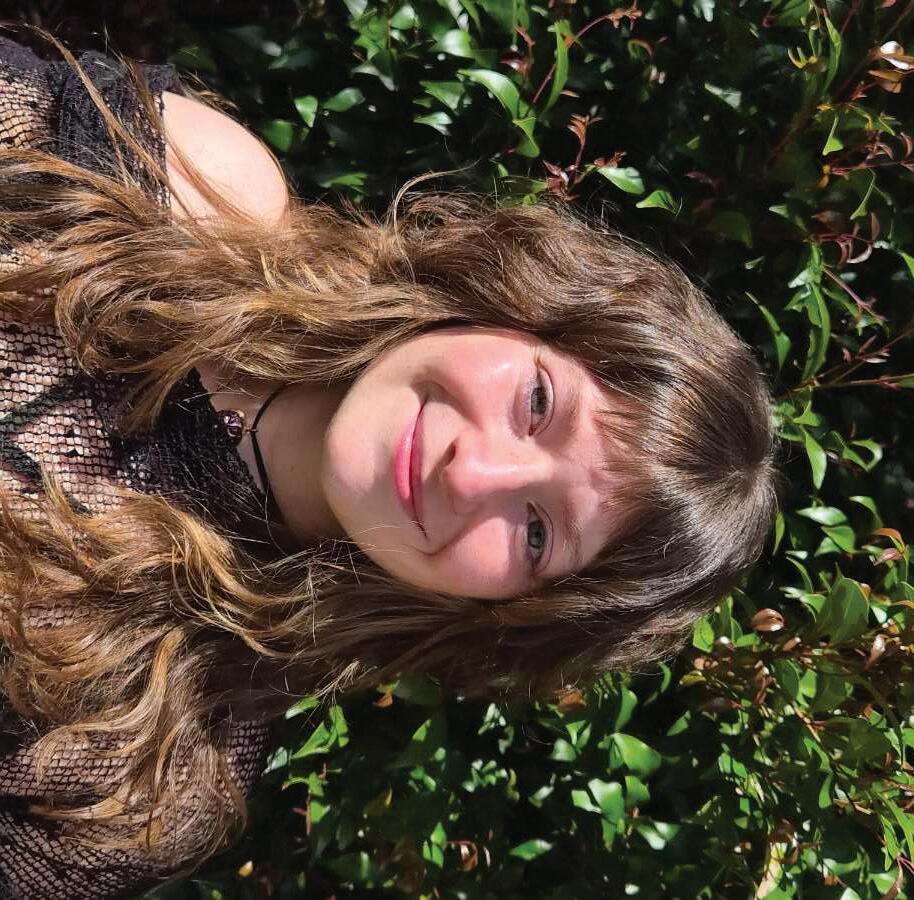
My degree has given me confidence with hands-on skills like Excel and understanding finances, which helps me work with budgets more effectively. More importantly, the connections I’ve made through Te Herenga Waka have strengthened my ability to collaborate effectively and lead with cautious empathy. I’m excited to carry these lessons into next year, building a supportive and inclusive environment where we can work together toward our grand shared goals.
Joelian for VUWSA!
If you elect me, you can expect timely reporting, a well-rounded budget to give stronger support to VUWSA’s campaigns and events, more cross-campus cooperation and events, all underpinned by a bare minimum to be held accountable for my decisions. Reporting for duty for you, Te Herenga Waka. For 2026, vote
It’s fair to say I know a thing or two about service for Te Herenga Waka and its students past, present, and future, as well as running events and initiatives while maintaining its day-to-day operations and crucially their financing.
Reflecting on this year, I feel proud of maintaining a clean, structured, and efficient approach to my responsibilities. Looking ahead to 2026, my vision for the role evolves. Building on the skills and experience I’ve gained, aim to take a more goal-driven approach that prioritises equity, accountability, and collaboration. want to ensure that decisions are transparent, that all voices are heard (internally and externally), and that the exec and students’ collective efforts are aligned toward meaningful outcomes.
A fifth-year Conjoint Law and Commerce (Accounting) Student of Te Herenga Waka Victoria University of Wellington, I’ve long been involved with various clubs and societies, from past VUWSA initiatives (O’Week ‘23, Stress Free Study Week), as a Student Ambassador for Tītoko, multiple UN Youth Wellington conferences, Treasurer for the Asian Law Students’ Association, and currently as the Vice-President (Finances) of the VUW Law Students’ Society.
Secretary as part of the 2026 Executive!
I’m Sanjukta Dey, a third-year student completing my Bachelor of Science in Economics and Psychology. This year, I’ve had the privilege of serving as VUWSA’s Treasurer/Secretary for 2025, an experience that has allowed me to develop skills in organisation, communication, and financial management.
Ko Joelian toku ingoa. I’m excited to announce I’m putting my hand up for VUWSA, and I’m running for the role of Treasurer-
Kia ora!
Kia ora koutou katoa, Magandang araw sa inyong lahat, Good morning to you all!
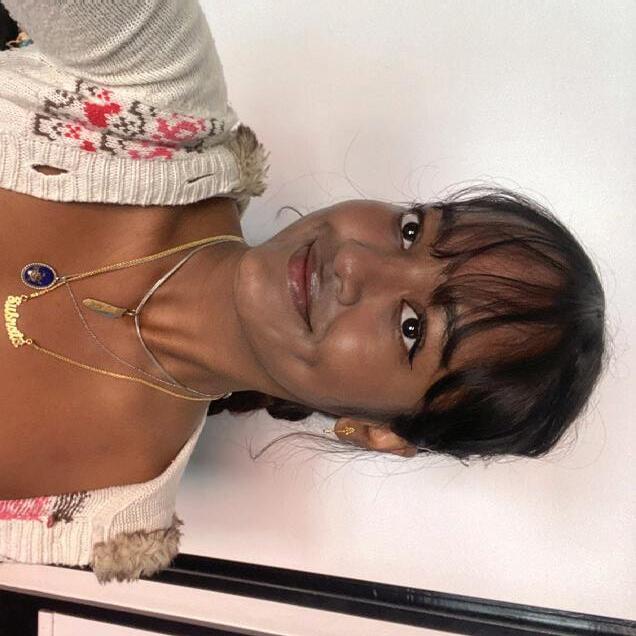
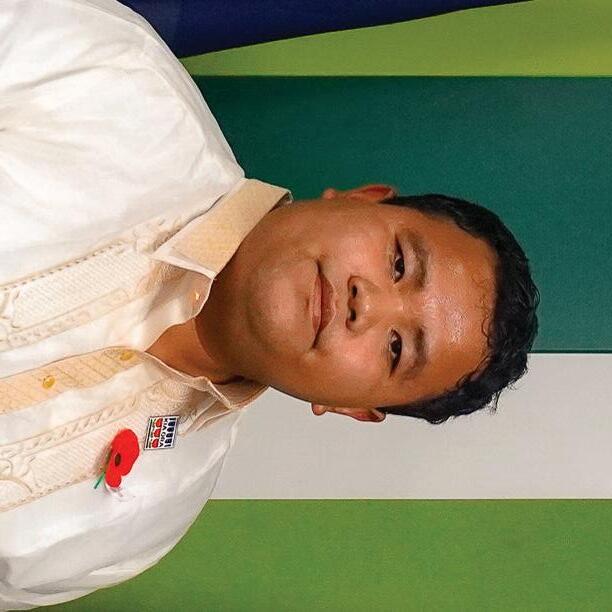
THURSDAY
25TH SEPTEMBER
Voting will open 9am Monday 22nd September and close 11:30am Thursday 25th September.
To have your say on the 2026 Student Exec head to vuwsa.org.nz or @vuwsagram for the voting link!
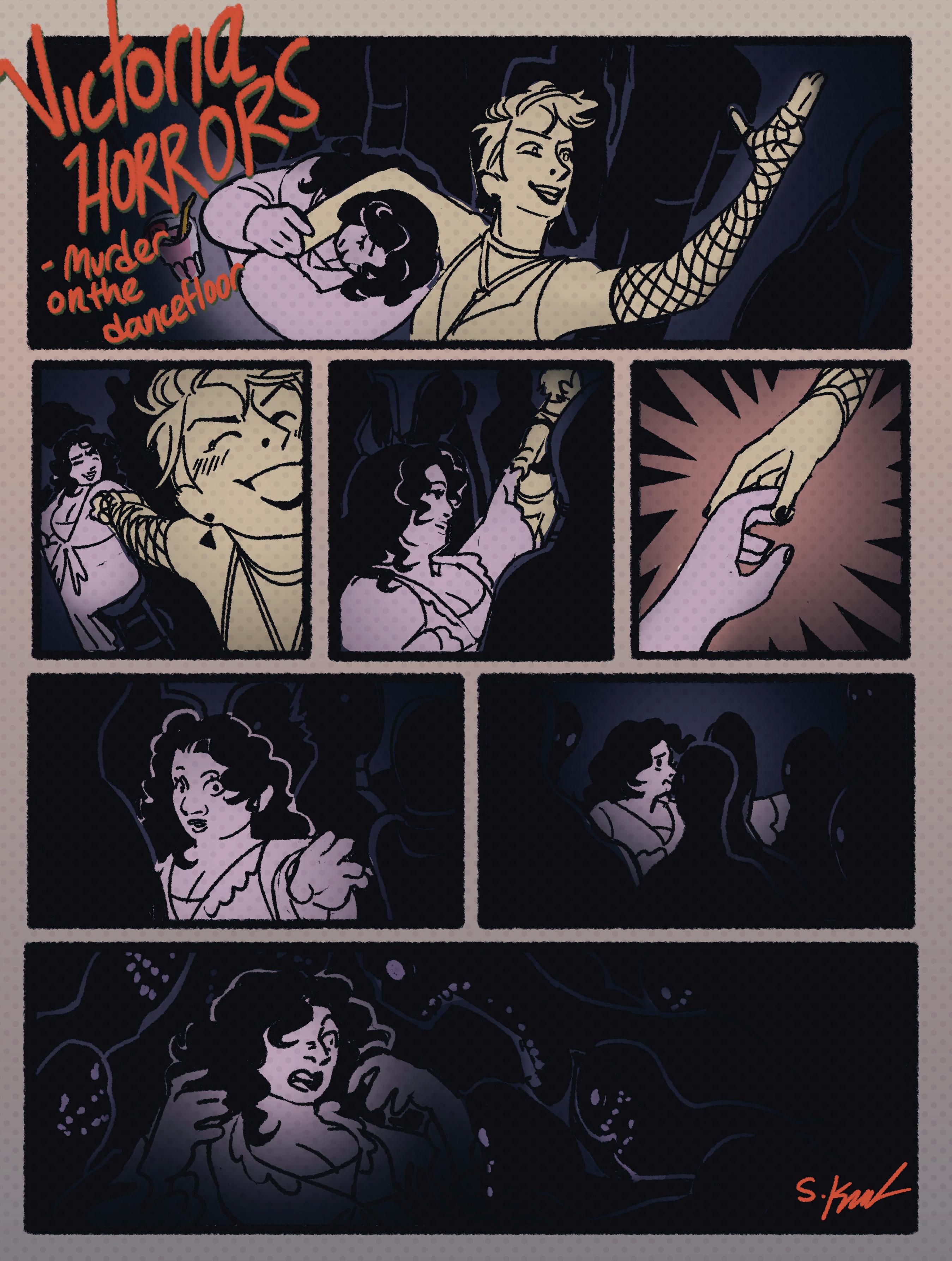
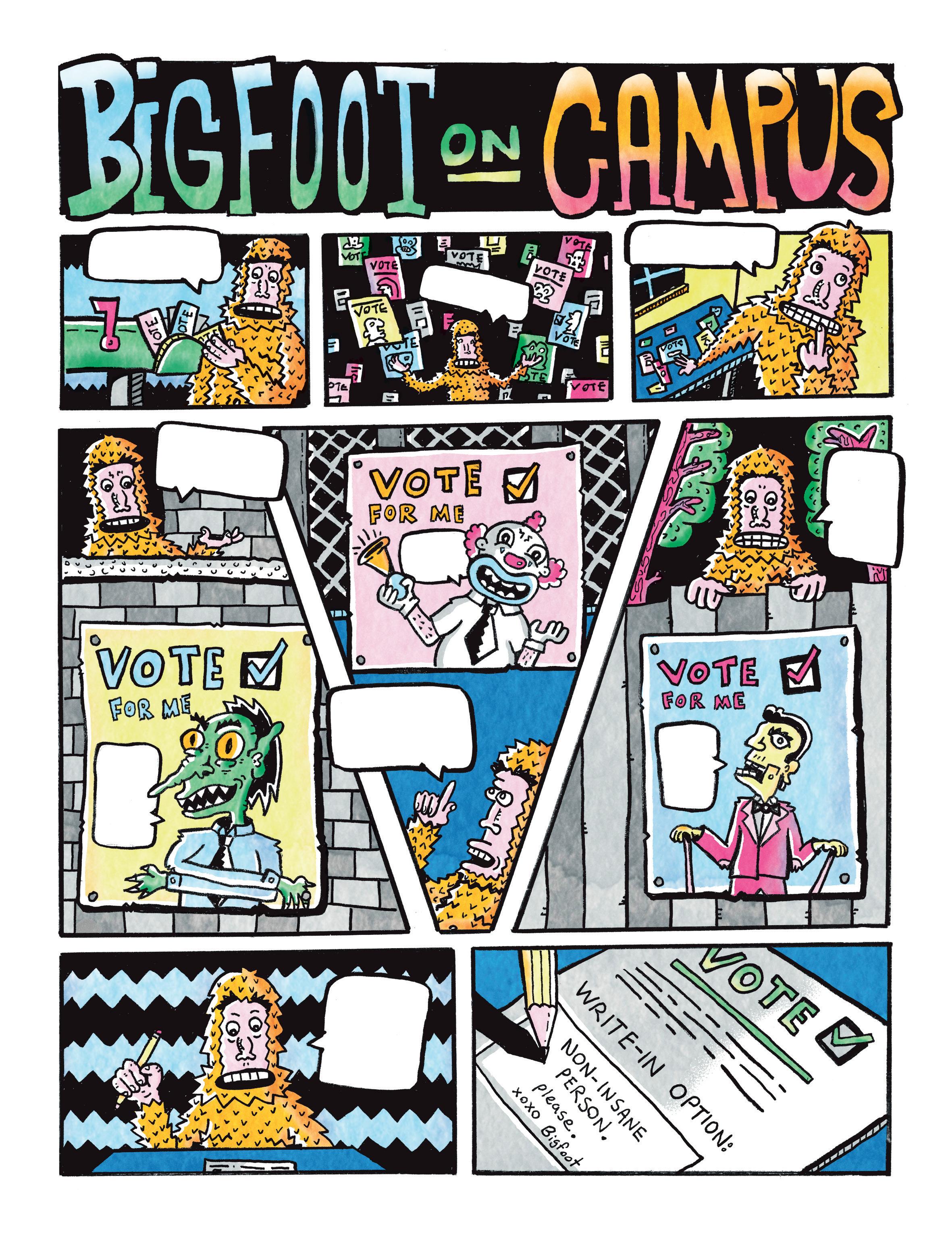
oh man, is it time to vote again?

how do i know who really represents me as student?
there’s all these options. how can i pick?
this candidate is a bit ghoulish, not sure i can trust them...
i truly care! trust me.
this one seems harmless but they are also a big clown. everything they say is a joke...
more car parks. less taxes. no bull shit.
i
think i’mgogonna with the thatoption.write-in Feels like thesaFest bet.
The moon takes up our sky; it’s the first time in weeks I have no open wounds. I can smell my sister’s gash. The split near her eye is beginning to weep. I prefer to be solitary for this reason. Her weakness is sickness. My underbelly hurts pressing against the thin, hostile wires. She needs to move over. This metal box will soon be our casket.
Her cries echo through the forest, thin and desperate. My heart picks up pace, and blood pounds in my ears.
I am scared, I am angry. She is going to get us killed.
She is easy to silence. My teeth sink into her fur as I bite down on her neck. The fur brushes against my tongue with the consistency of grain. I wait until her cries turn into a whispered pain, and I lick her tears. I am thirsty.
*
“We have a signal!” I yell up the stairs, expecting my sister to be still lying on the couch. I gesture at the air like she’s in the room.
I sigh and bang the handrail, “Georgina!” I shove on my boots with conviction. We need to keep these traps clear; that’s the singular task Dad gave us. I can picture his beard moving when he gives us instructions like an animated possum clinging to his face.
“The people need their cardigans, son,” he jokes with his hands on his hips, a proud gleam in his eyes.
He considers himself a bogan Santa Claus, but instead of wearing a red cloak he wears a faded Swanndri, and instead of giving presents,
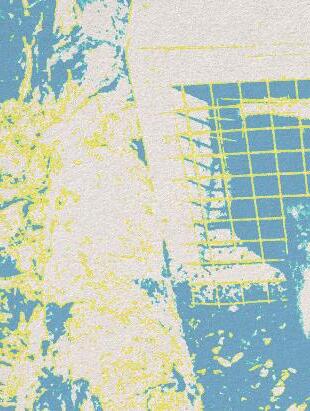
children exclusively get possum hides. If I didn’t know my dad, I would consider him a dangerous person. Possums even more so; they would consider him the Grim Reaper. He sometimes breaks their necks if they’re still alive. It’s a terrible way to die, squished by his large hands. I would hate an afterlife where I’m contorted, disfigured, and worn to church by one of the Karaka Street ladies. Knowing my luck, I’d probably end up stuffed on Uncle Mikaere’s mantle, frozen in time like a brutish spell.
The world is cruel, I thought.
Still standing inside the entryway I open and slam the front door. Georgie’s crisp-covered face pokes through the doorway to see if I am gone. We stood in a stand-off, my raised eyebrow triggering the guilt on her face. A small moment of decision rolled over her expression.
“Fine!” She tossed her slipper down towards me, it was her version of waving the white flag.
*
My claws dig in between the spaces of the wire. I harrow at the dirt. My sister forces herself against the side, she cowers as I dig; trembling in the same rhythm as my scratches.
Are there worms trapped in the ground? Are they trapped like us? Would they meet me at the surface?
My scratches are a call to the cattle of the earth. I am hungry. My tongue sifts through the sediment. Smaller, harder rocks graze over the bumps. The soil bugs prance into my mouth. I save nothing for her.
*
“Fuck it’s cold,” Says Georgie as she wraps her dressing gown tighter around her chest.
I struggle with the torch, it’s about as old as we are. With a frustrated sigh, Georgie rips it out of my grip, smacking it thrice onto her palm. A warm, amber light pours onto the entryway into the bush, two Koru ferns shape the entrance like a natural doorway. The tightly coiled spirals look like little hands beckoning us in. We begin our trek to the trap, I go in first while Georgie slowly saunters behind.
My dad is a master at tricking possums; the trap lies embedded amongst a cluster of bushes. Two trapped creatures freeze at the sight of the torch.
“Oh my god, they stink.” Said Georgie, she was shivering in the middle of the track, her hand covering her mouth like a mask.
Four enormous brown orbs lock with mine, my hands push past the foliage to reveal their furry bodies.
“Shut up, Georgie.” My chest tightened a little, “The smaller one is injured.”
The poor thing had a festered wound adorning its eye and was cornered in the trap by the larger one. We had never caught two before, and it was evident there wasn’t enough room in the trap for both. I was surprised they hadn’t turned on each other yet.
“We forgot the rifle.” Georgie groaned, I dropped my head into my hands. I handed her the torch hesitantly, and her footsteps on the gravel slowly faded into the night.
*
A boy crouched down beside the metal wires. I could feel his guilt. His eyes were smaller than ours, slightly glazy. It shows weakness. I don’t move, but my sister twitches from fear.
Open the box
My eyes challenge his.
It’ll be between us, a battle between two males.
*

I was in the dark covered by bushes, accompanying these small creatures. I could hear the thuds of my dad throwing their corpses into the back of his truck, I would grimace at the sight.
“They’re pests, Tane.” He would hiss.
I feel as if this pair is special, they got trapped together. They shouldn’t be separated, even by death. I don’t want them to die just for being small.
A smaller one wouldn’t make a decent cardigan anyway, I thought.
I made sure my demeanour was gentle and I slowly reached towards the mechanism. I tried my best to approach this like I was their friend. The larger possum seemed to catch on to what I was doing and pressed closer towards the wire. The smaller one waited patiently in its shadow.
I open the trap, and gravel shifts from behind me.
It was Georgie with Dad’s gun.
*
My blood fills up the metal box. My sister is twitching, her eyes rolling back.
*
Georgie swings the rifle back behind her shoulder blades and picks up the possums by the scruffs of their necks.
“Just hold the torch, Tane.” She said, gently nodding towards home.
Author Bio: My name is Brigit Nelson, and I’m a graduate of Creative and Literary Communications from Te Herenga Waka –Victoria University of Wellington. I love writing, you can find me deep in a Moleskine in my spare time.
1. Mall security guards might watch out for these criminals (11) *
7. Commercial plane; shade of black (3)
9. Rip the stitches out of (5)
10. Deep pieces of tableware (4,5) *
11. They're worn in theatre productions (8)
12. 'Something in the Water' singer Fraser (6)
14. Type of thief who might be the villain of a Western (6,7) *
19. Hawkeye's projectiles (6)
21. Medical term for the collarbone (8)
24. They buy shares on the market (9) *
25. Yoghurt-based side dish in Indian cuisine (5)
26. The ruru is a species of this bird (3)
27. Assessing the situation... or what the answers to the starred clues are known for doing (6,5)
1. Genesis; thing to cite in an essay (6)
2. 'Wonderwall' band (5)
3. Civil action brought in a court (it might be a tort) (7)
4. Went bad, like the uncle in 'The Addams Family'? (8)
5. Aussie birds that won a 1930s 'war' (4)
6. Not even tipsy (5)
7. Body part that Māui's fish hook was made from (7)
8. like walruses, elephants, and orcs (6)
13. Adds to; uses for construction (6,2)
15. The 'a' in "eta?" (7)
16. Fantasy pubs (7)
17. New Zealand spider with a distinctive red stripe (6)
18. New Jersey city and airport that sounds like Noah's replacement boat (6)
20. "That ____ what I meant!" (5)
22. largest city in africa (5)
23. Counterpart of an egg's albumen (4)
By Puck!
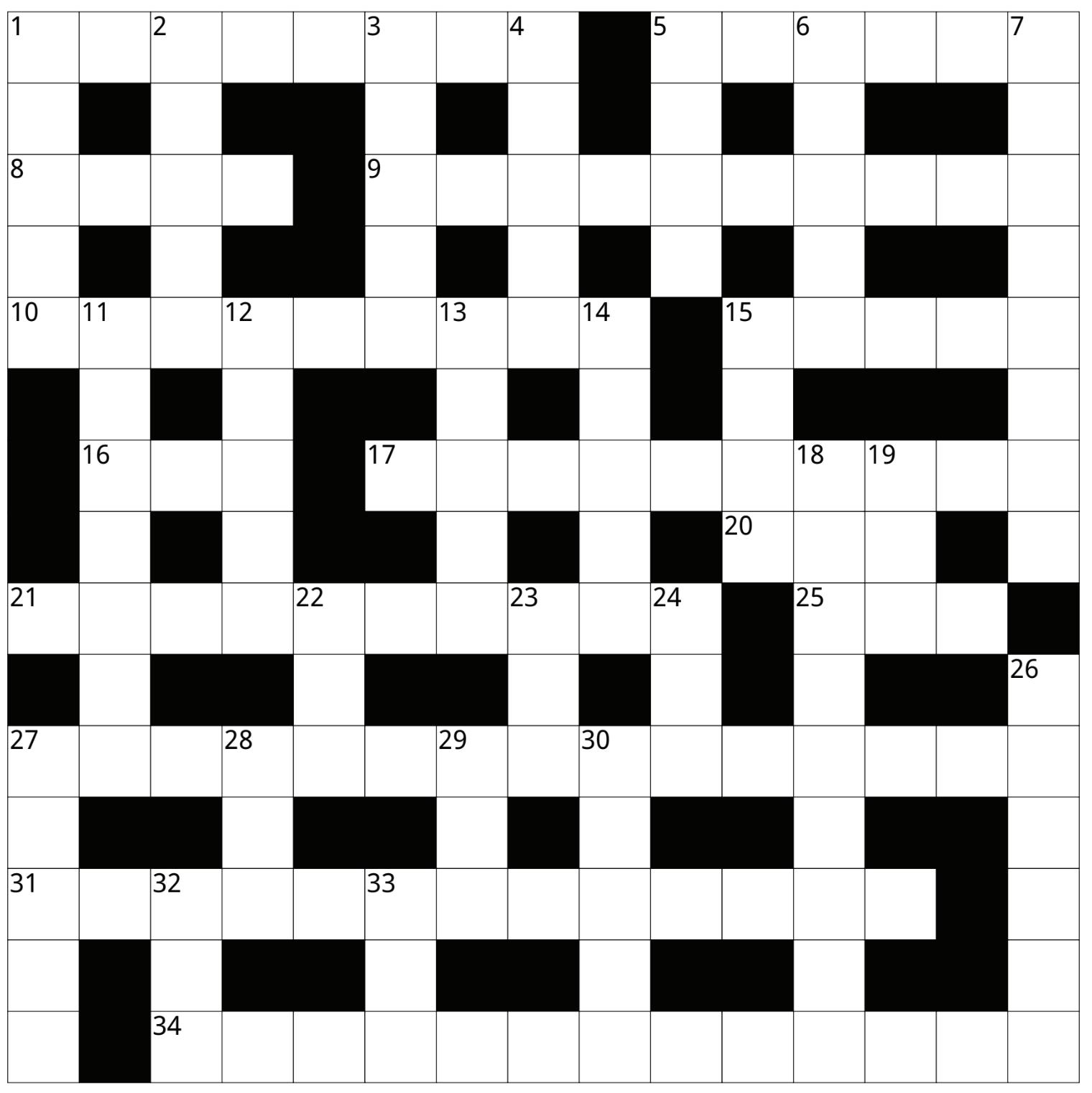
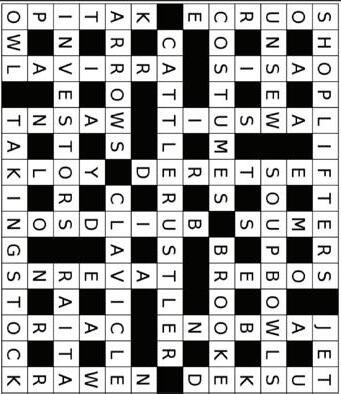
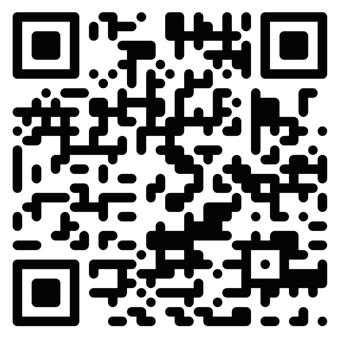
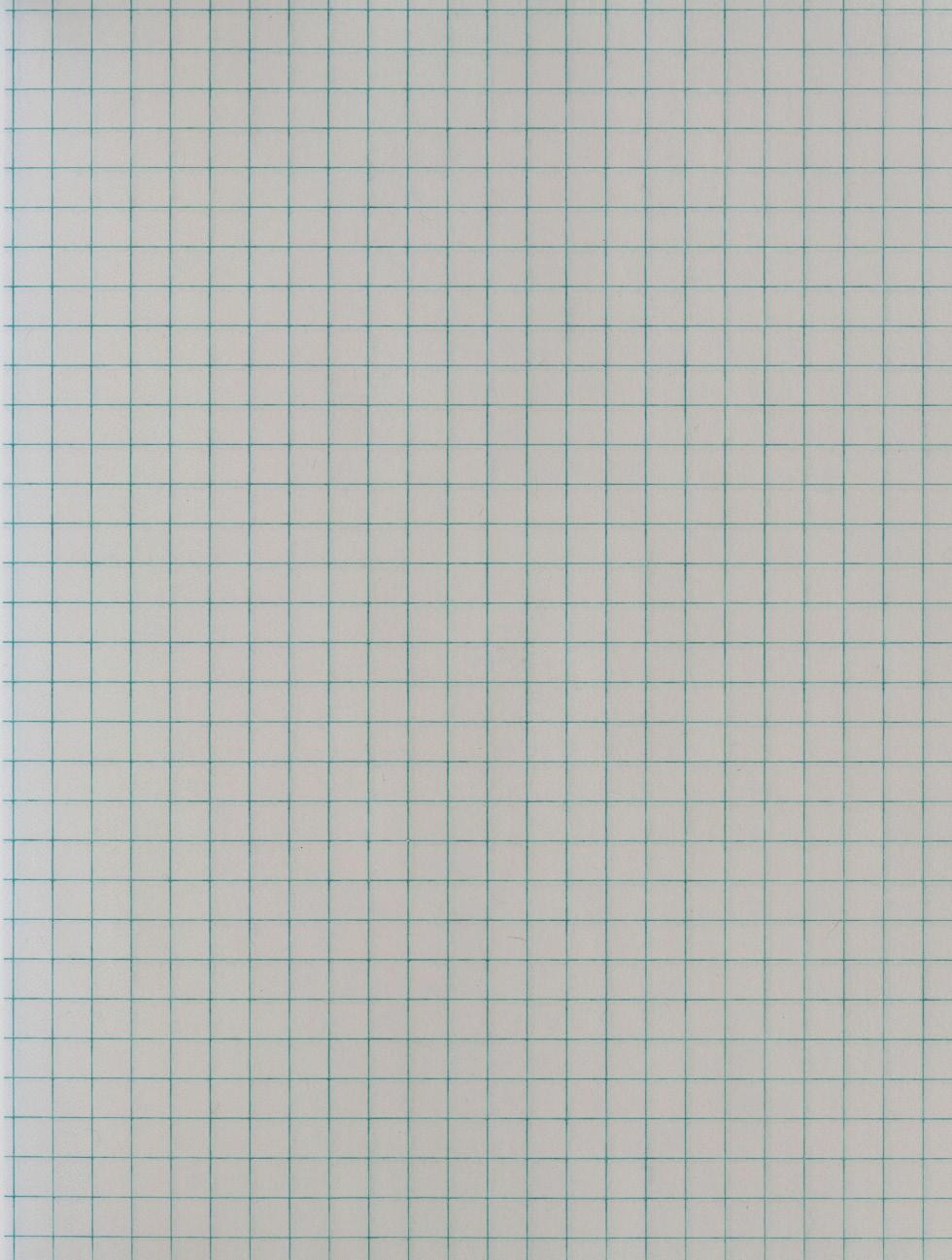
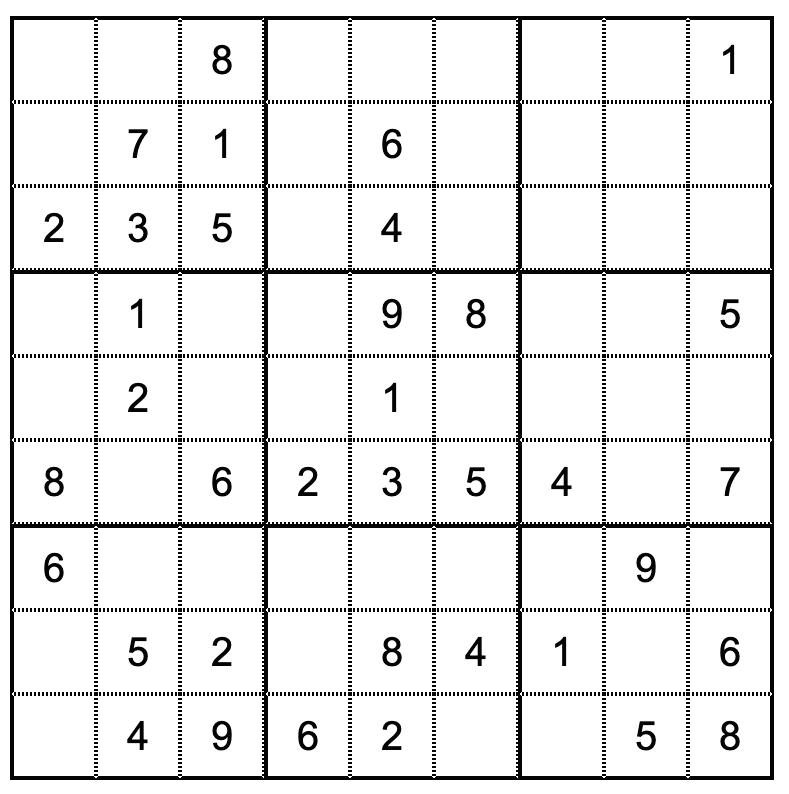
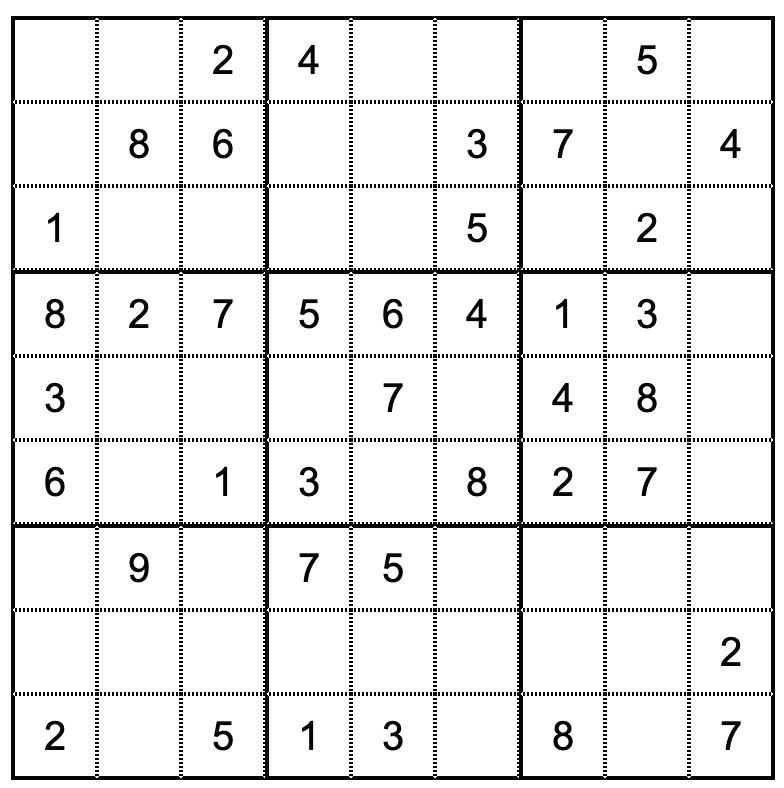
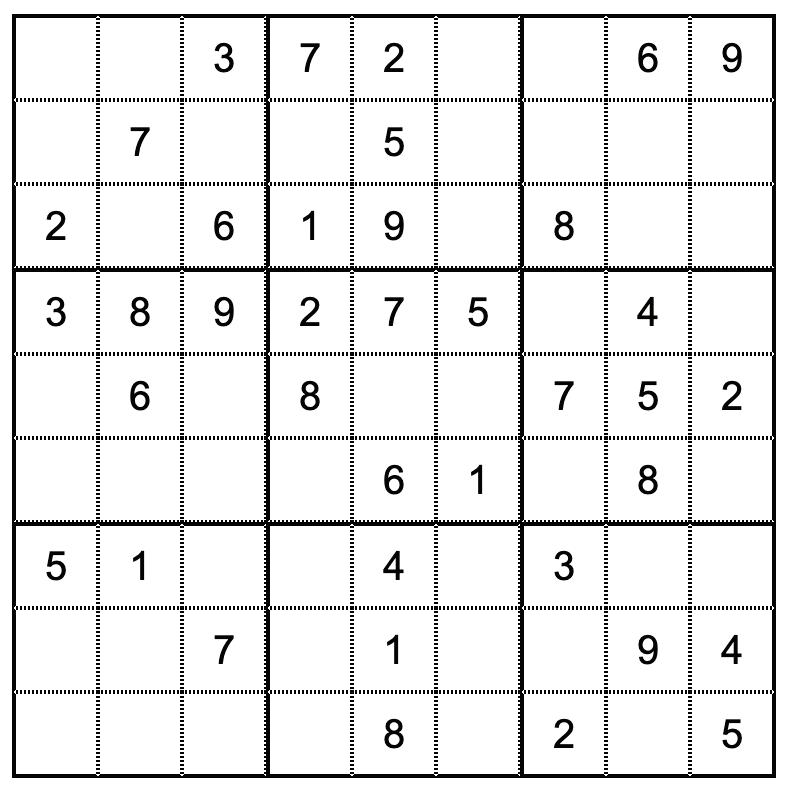
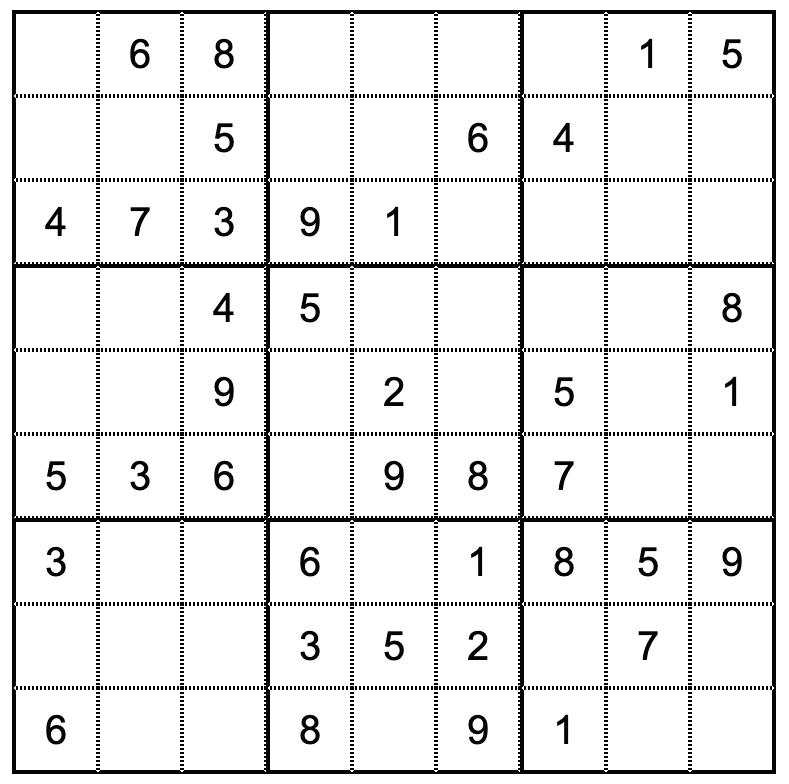
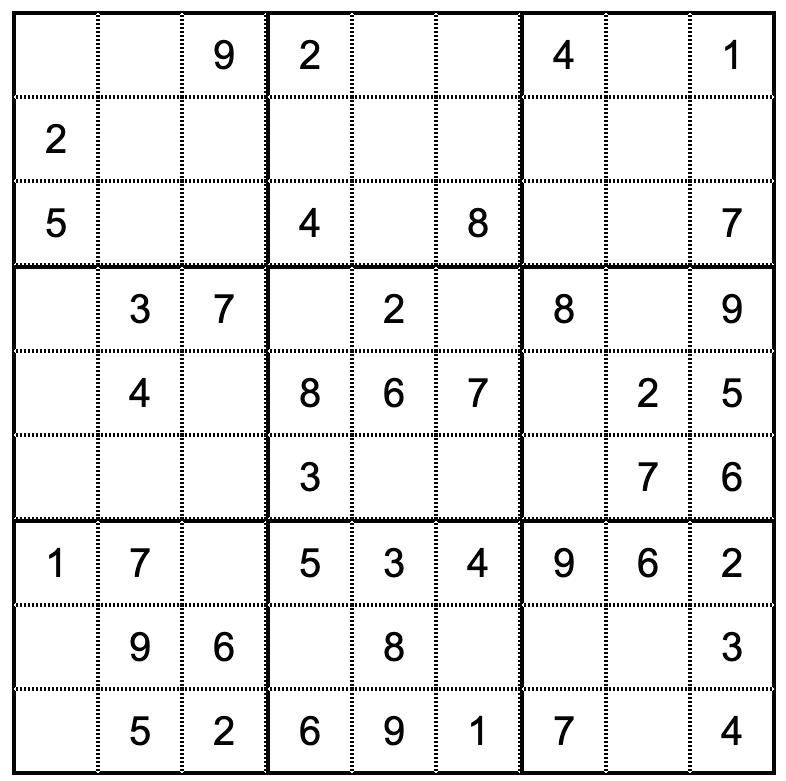
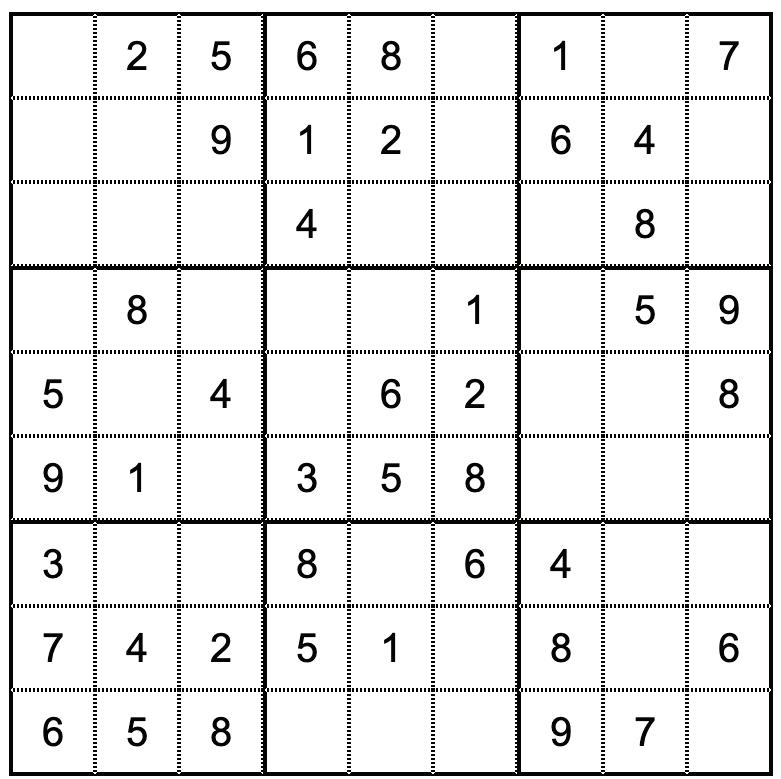

Can you find `` ?
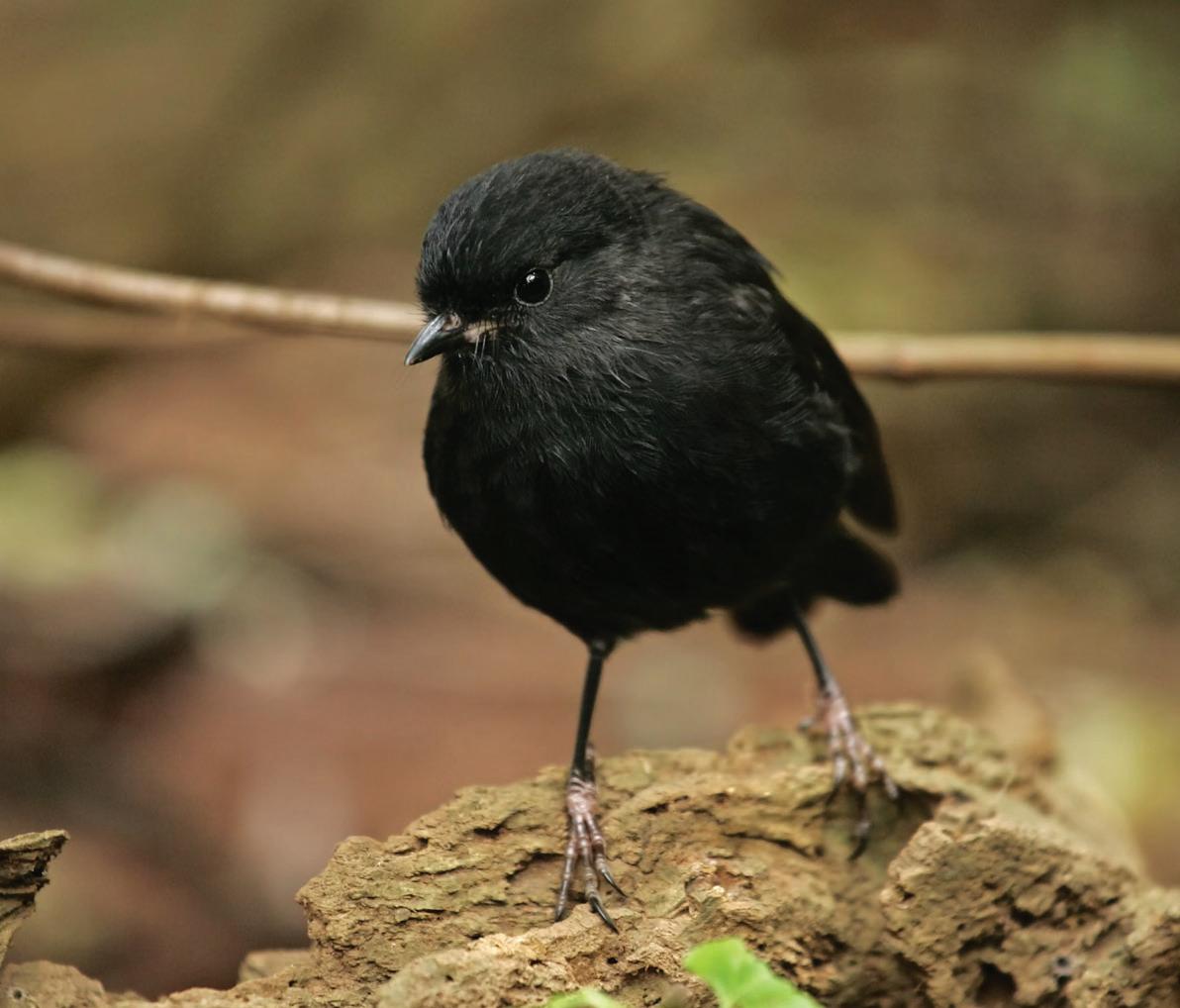
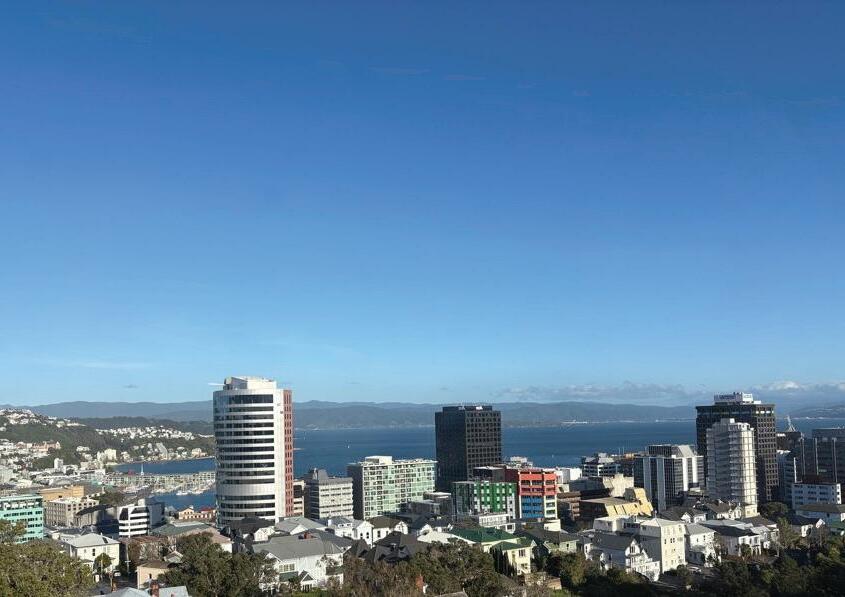
By Abbie Wood, Bachelor of Design Innovation student
If you’re anything like me, the constant headlines of “Wellington’s dead” are getting a bit old. As students, we know all too well that times are tough right now, but to say the city has lost its spark misses the point. The beating heart of Pōneke has always been its people, especially its students. I’ve made it my mission to collect those special memories and places that mean so much to our student community.
Dear Wellington, an upcoming interactive exhibition at Te Aro campus, leans into the chaos and creativity of student lifepast and present, and reminds us of why it’s worth celebrating. From freezing flats to midnight dance floors, from Mt Vic to lecture halls, the stories, photos, and memories on display remind us that Wellington is very much alive. Be part of Dear Wellington and share your story.
Dear Wellington pop-up exhibition
Opening night - Mon 29 Sept 5-7pm
Mon 29 Sept to Thurs 2 Oct
Te Aro campus, 139 Vivian Street
CORE MEMORY
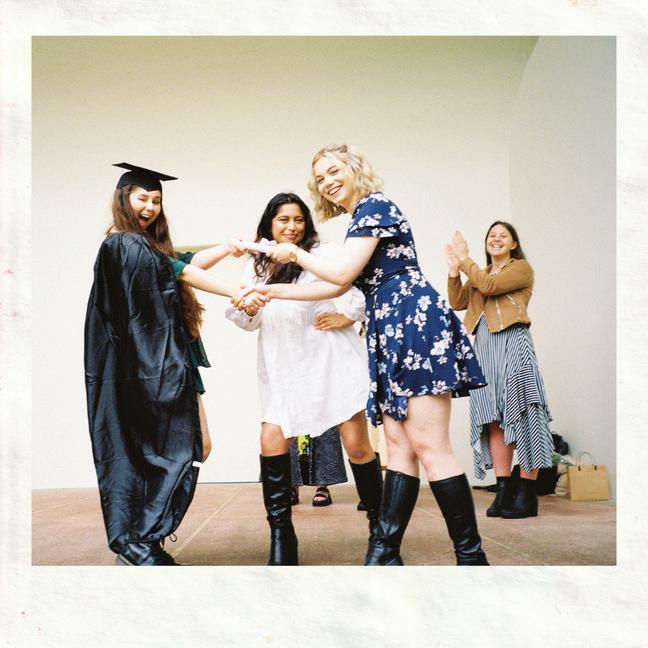



CORE MEMORY
At the end of each semester going to the Hunter Lounge with the Jazz School and seeing the amazing projects/performances that everyone has been working on throughout the semester. It is always amazing seeing everyone from all three year levels getting along collaborating doing what they love by playing music.
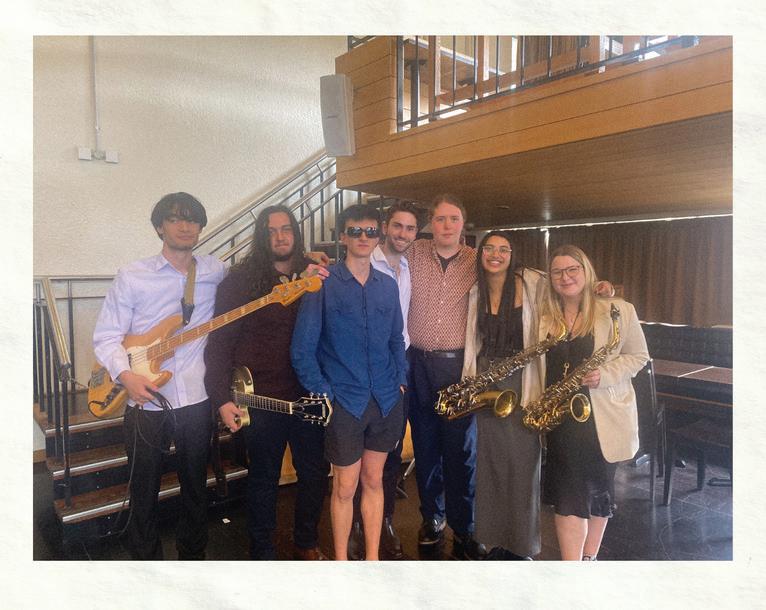

CORE MEMORY
From Mel

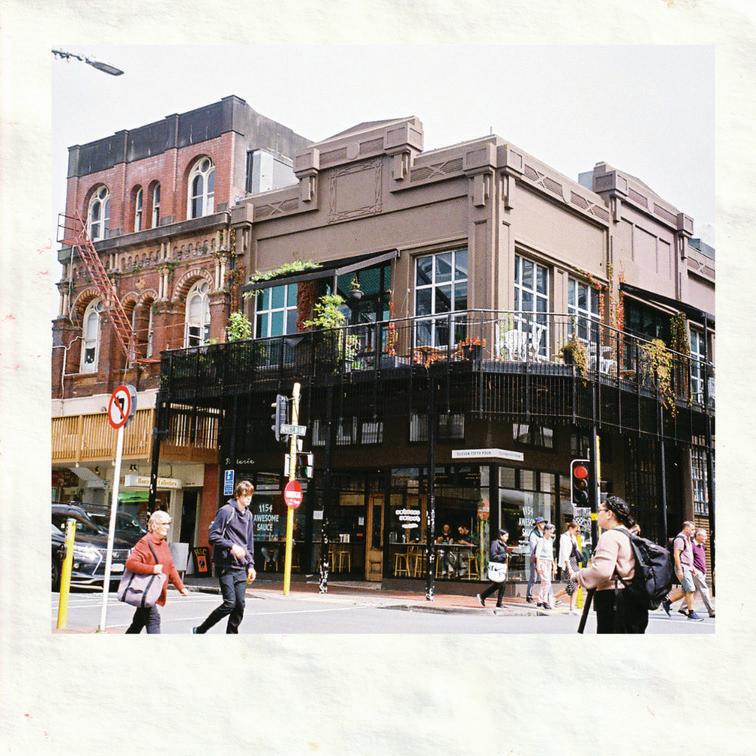
Walking into my first law lecture with my mates and realising that this really is what I’m destined to do.
From Cory
Bachelor of Music, Jazz performance
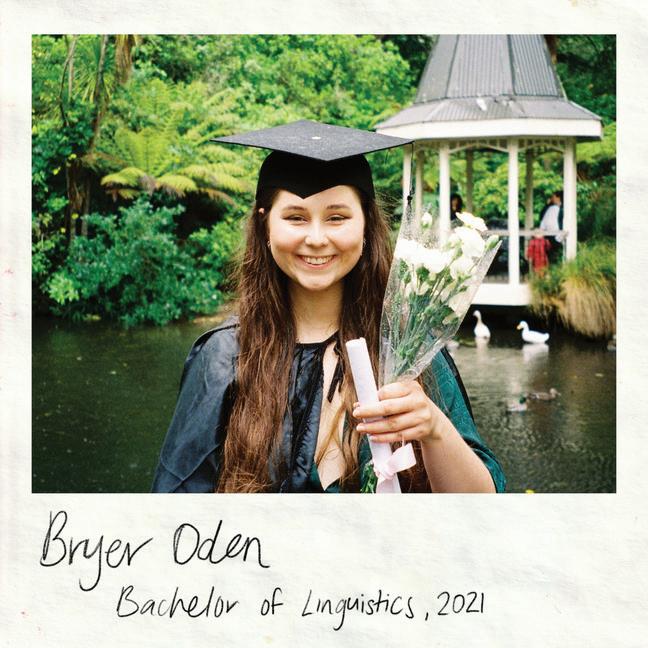
A space that holds a special memory for me is the Sound Shell in the Botanic Gardens, where I hosted a fake Graduation Ceremony for myself towards the end! My graduation for my BA degree was postponed 3 times because of COVID, so I decided to host my own ceremony instead. We sang the National Anthem and I invited my friends to be guest performers and give speeches (they did the WAP), and they presented me with a fake degree and shook my hand on stage as I wore a fake cap and gown from Look Sharp. It was a beautiful reminder that it's not so much about the piece of paper but the achievement of it all, and the beautiful people you collect along the way.
To get here, we drove from Vermont down to Maryland (700km) then to Wisconsin (1630km), then through a blizzard to the Chicago airport (300km). When we got the airport, Cyclone Gabrielle had just hit Auckland and the airport was flooded so all of the flights were being diverted to Sydney. We boarded the plane unsure of whether we’d even be able to land or what country we’d be going to. Three weeks later we started uni knowing nobody but each other and about a decade older than our peers, but we’ve never once regretted the decision.
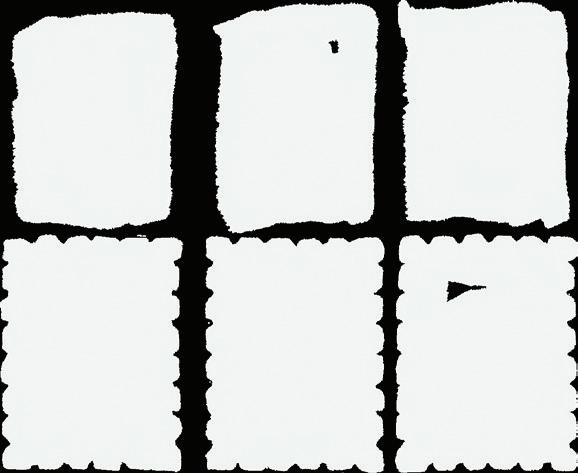

From Alisha + Noah
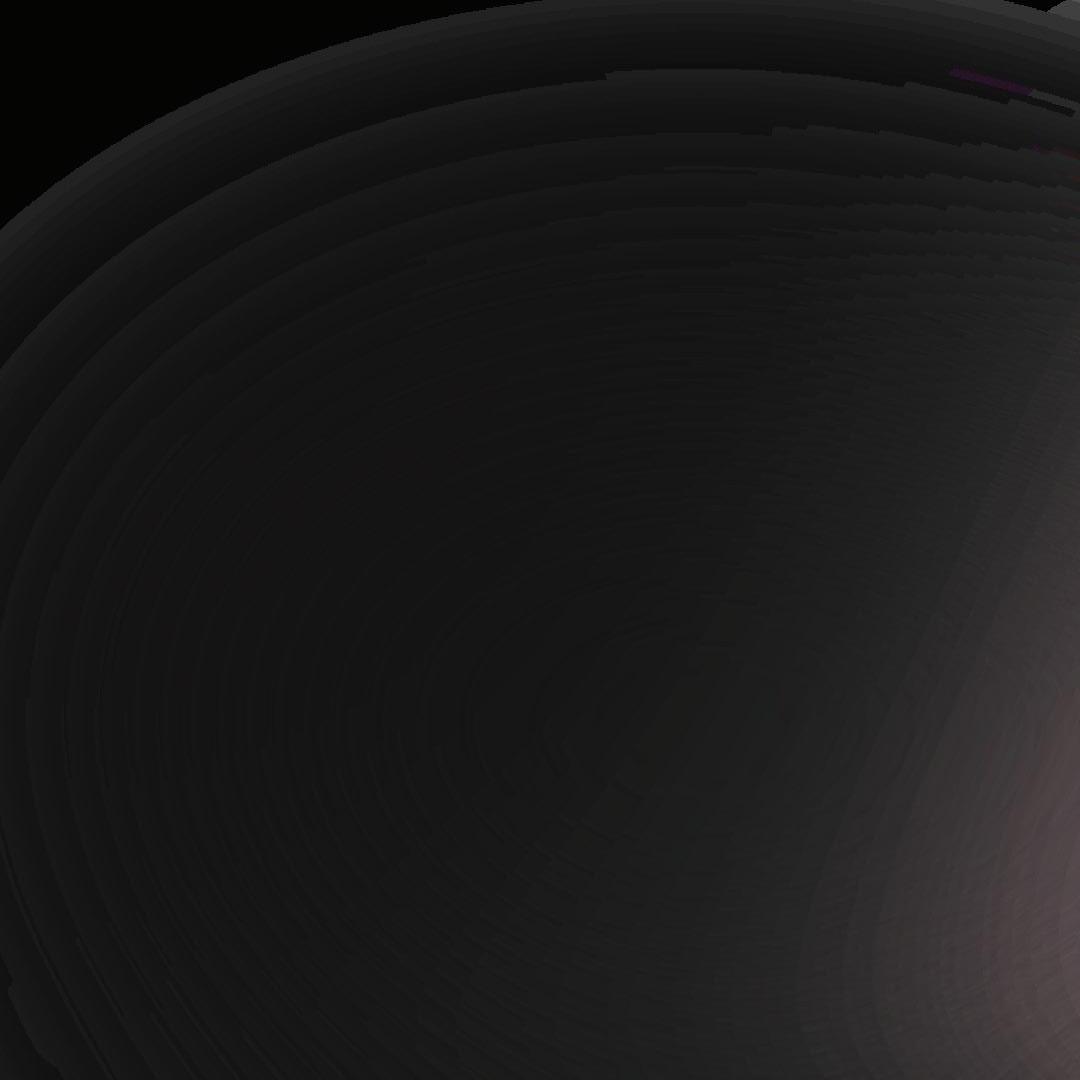

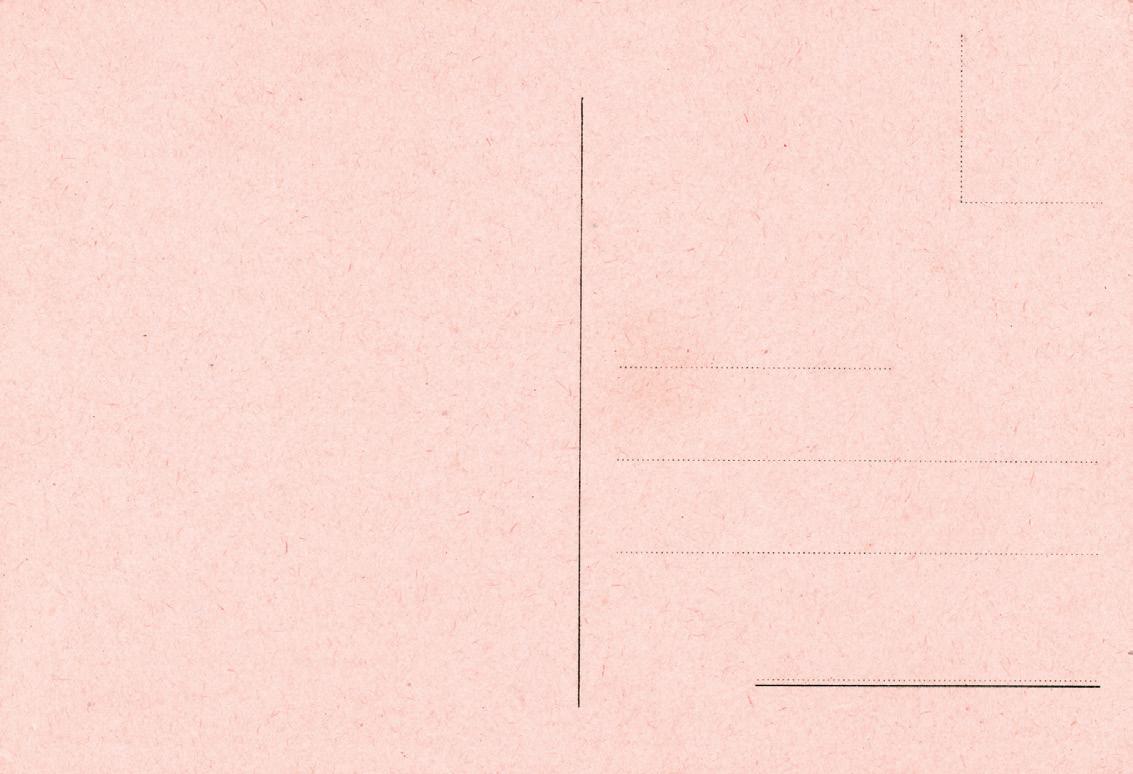
I was VUWSA student president in 1987. The spectre of fees and loans was being raised. On 30 April of that year, I (along with other student activists) organised one of the biggest marches on Parliament in years. Exhausting and satisfying.
Bachelor of Design Innovation, Fashion and Industrial Design
Former Labour Party MP + cabinet minister
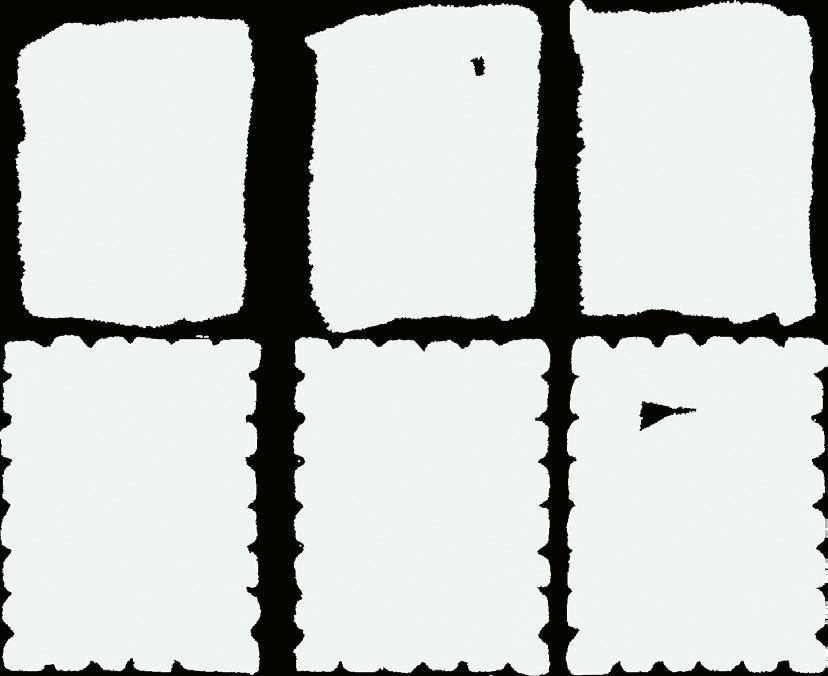


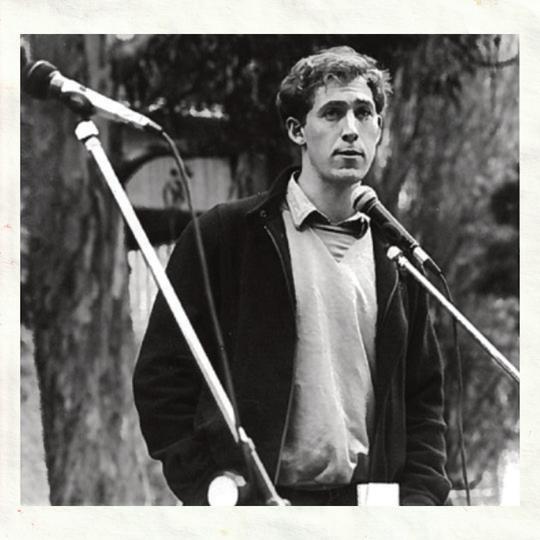
From Andrew Little Law and arts (philosophy and public policy)
Bachelor of Architectural Studies Landscape Architecture
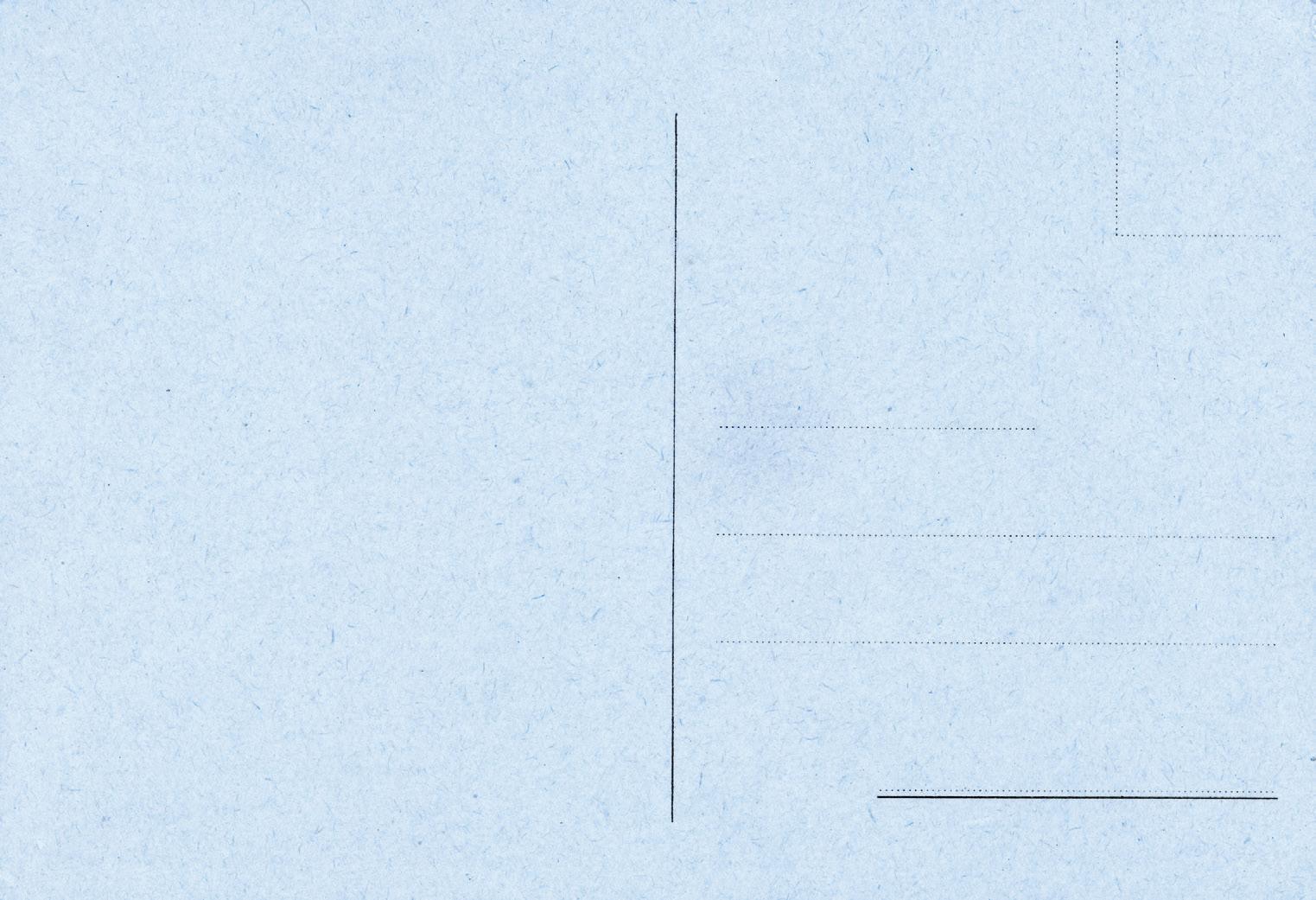
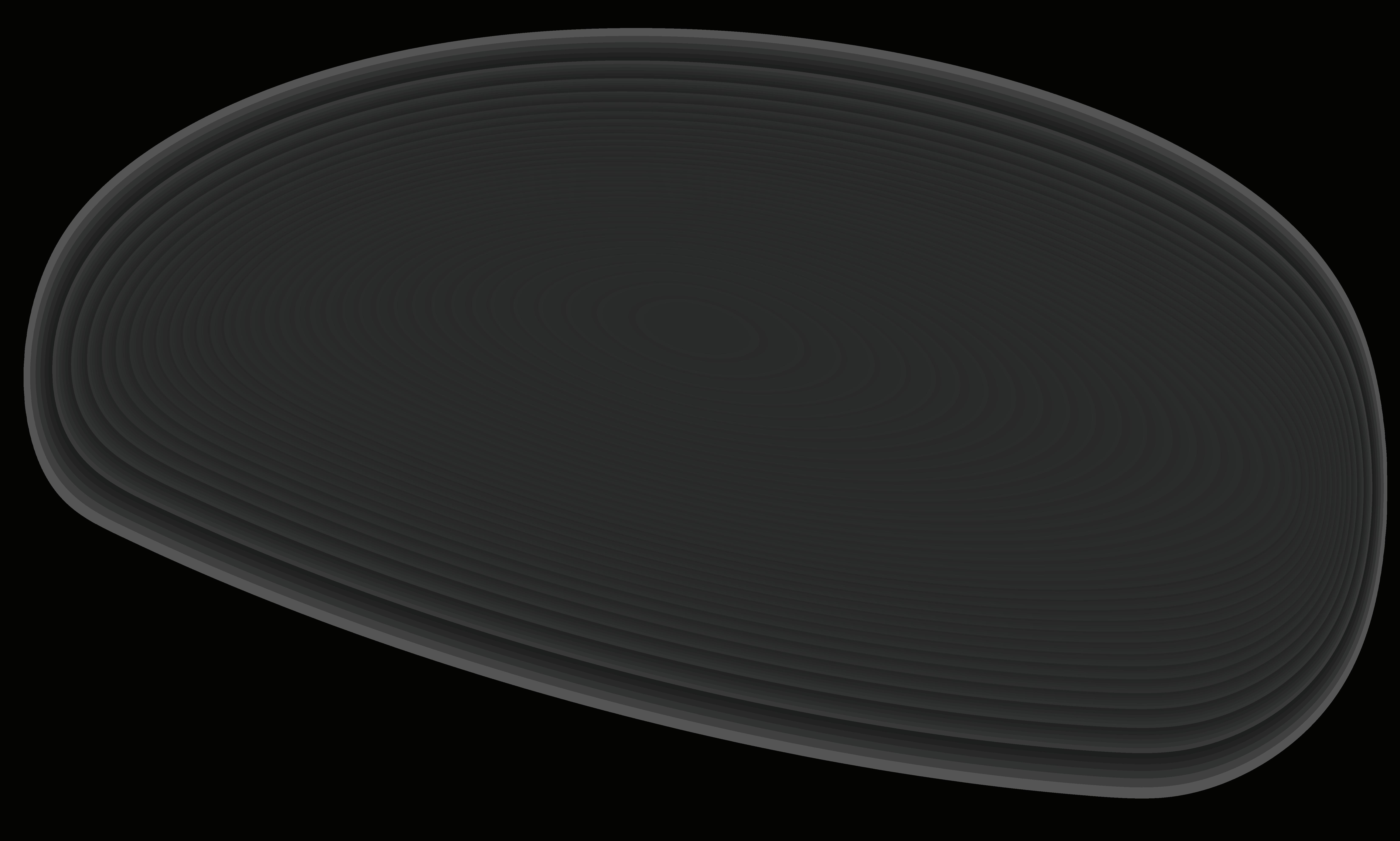
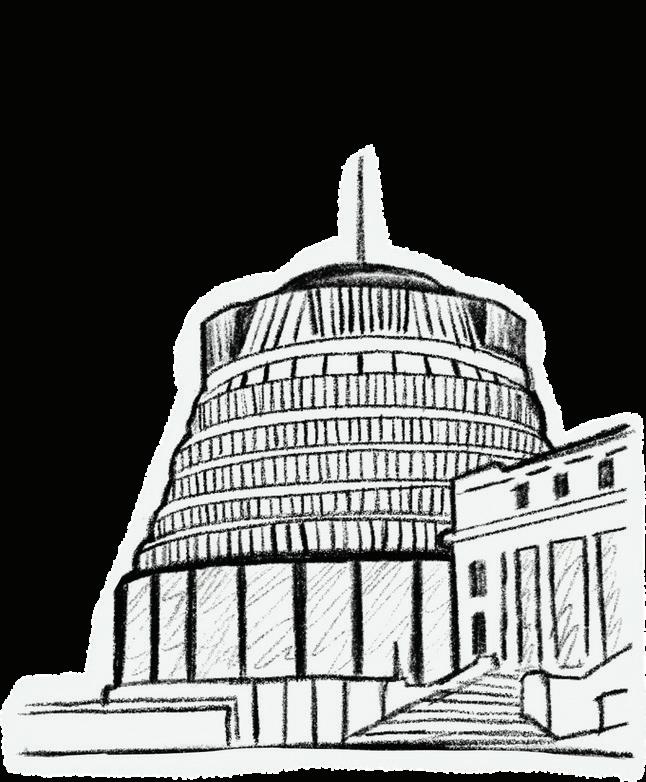
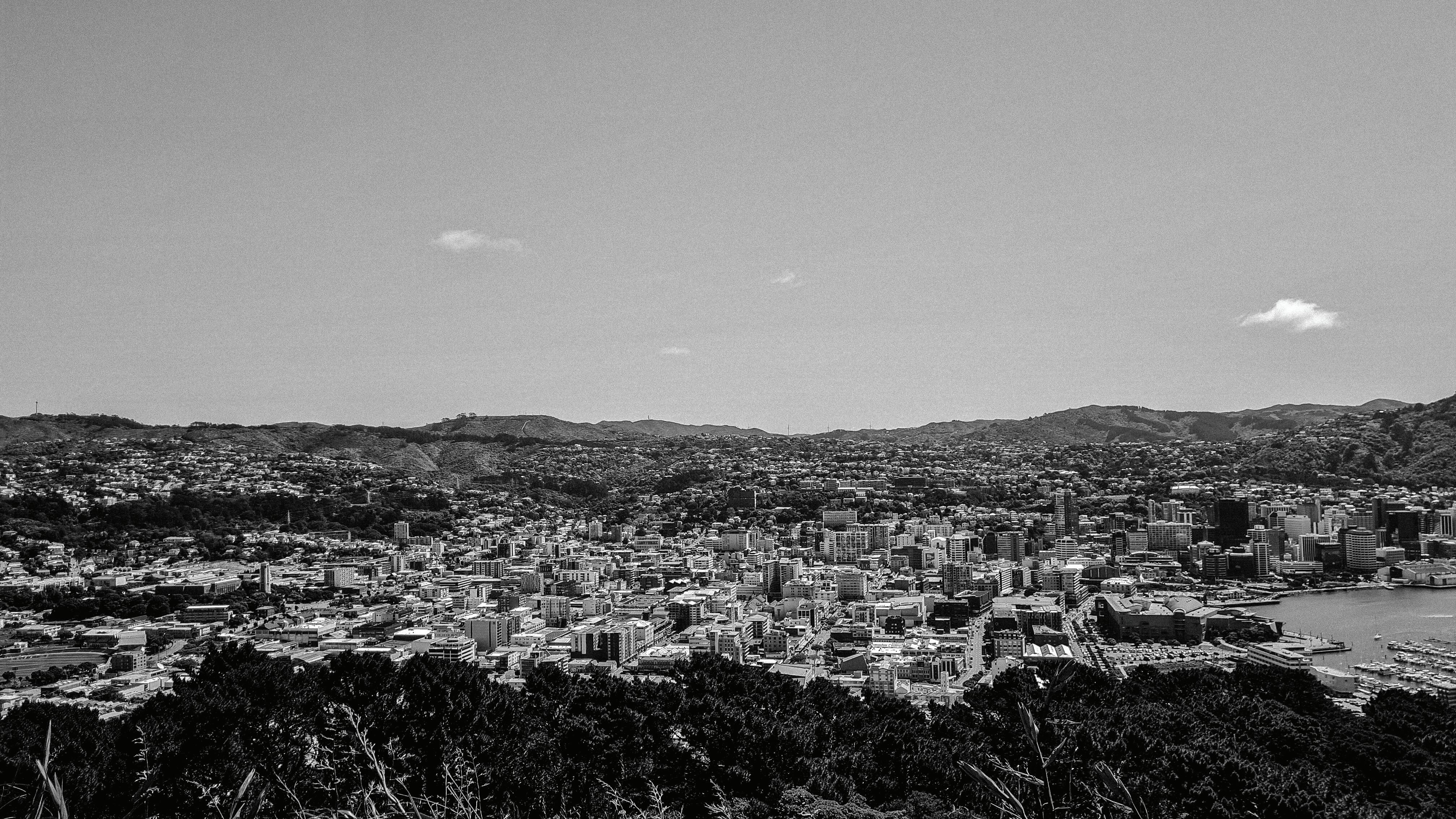







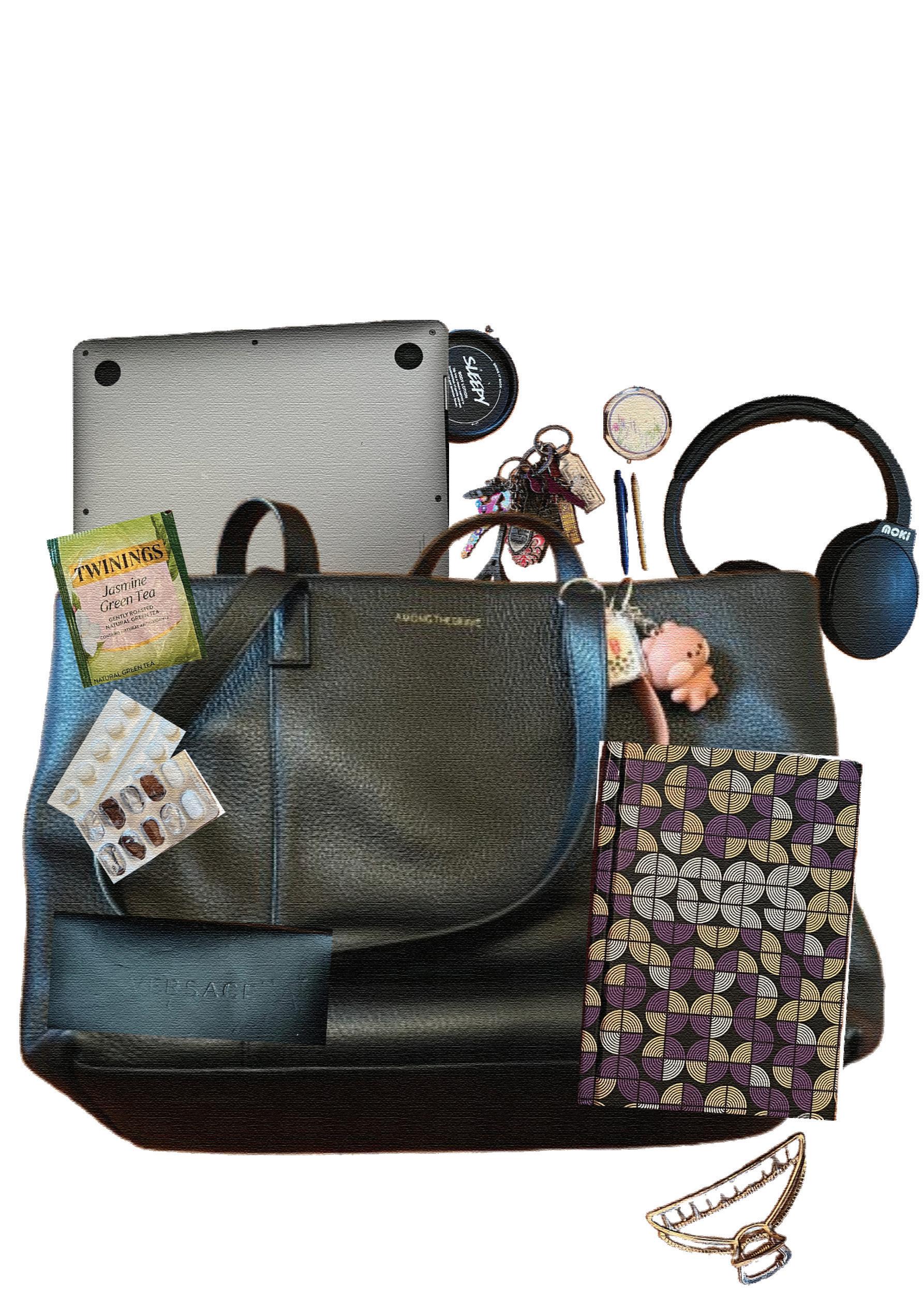
I got my current bag as a lovely birthday present last year, and it’s been one of my prized possessions ever since. It’s a massive upgrade from my tote bag collection which has now been relegated to off-campus duty. It fits my laptop perfectly (a law school necessity) and has several different little pockets which I love, since I have a fair collection of small items I take everywhere with me on campus. Notable favourites are my keys with a ridiculous amount of keychains, my green tea for when I feel calm and on top of my workload, and pain meds for when I’m definitely not.
I would not be able to survive studying on campus without these. My current study ambience is a Studio Ghibli-inspired playlist that my sister recommended.

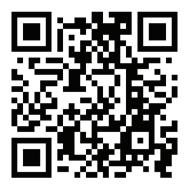
I decided to get a proper paper calendar diary this year, and it’s been a great help being able to physically see my week planned out! Plus, it makes me feel a lot more put together than I actually am.

law student? Fine arts major? We want to snoop inside your bag and see what students of different degrees are carrying with them on and off campus
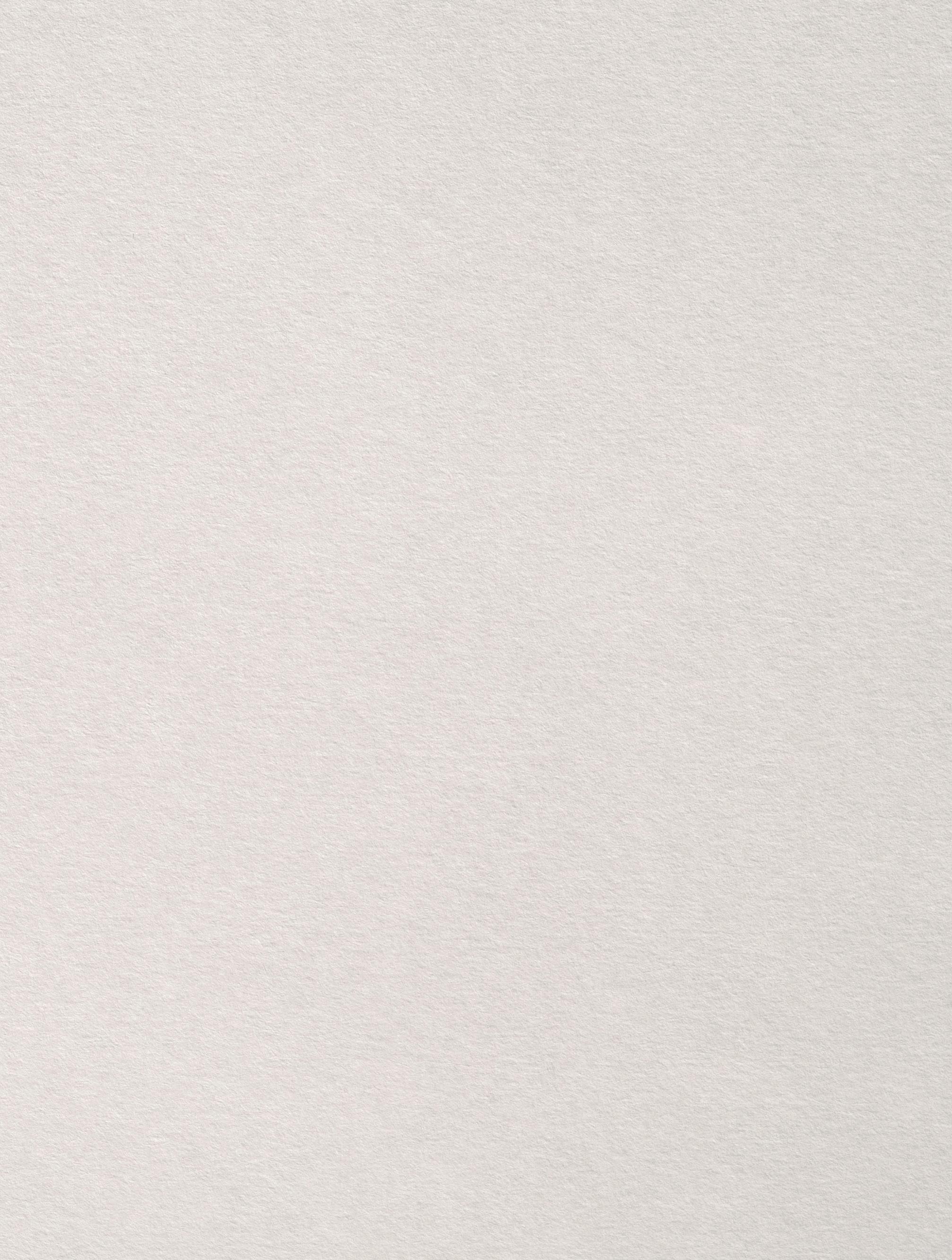


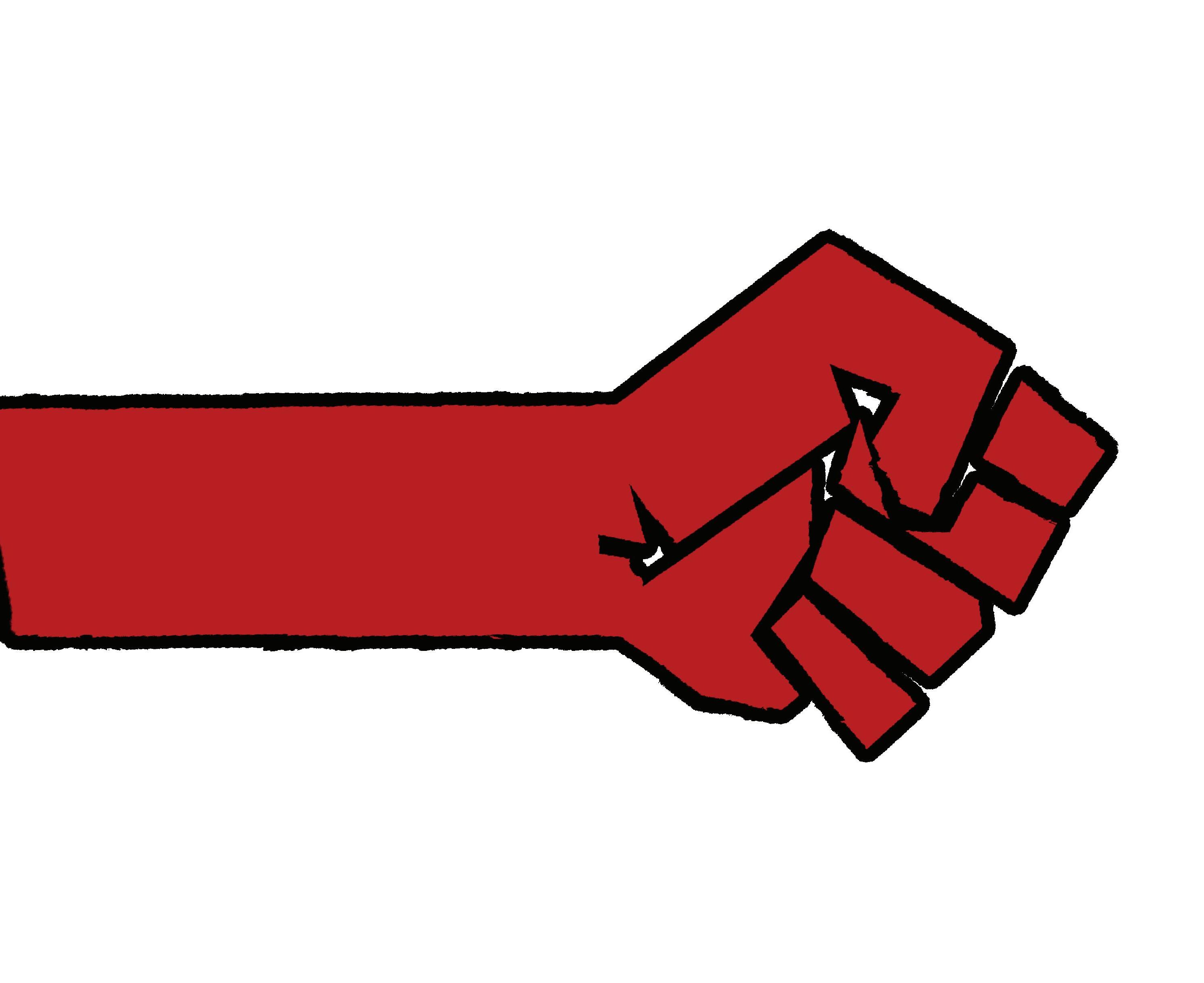
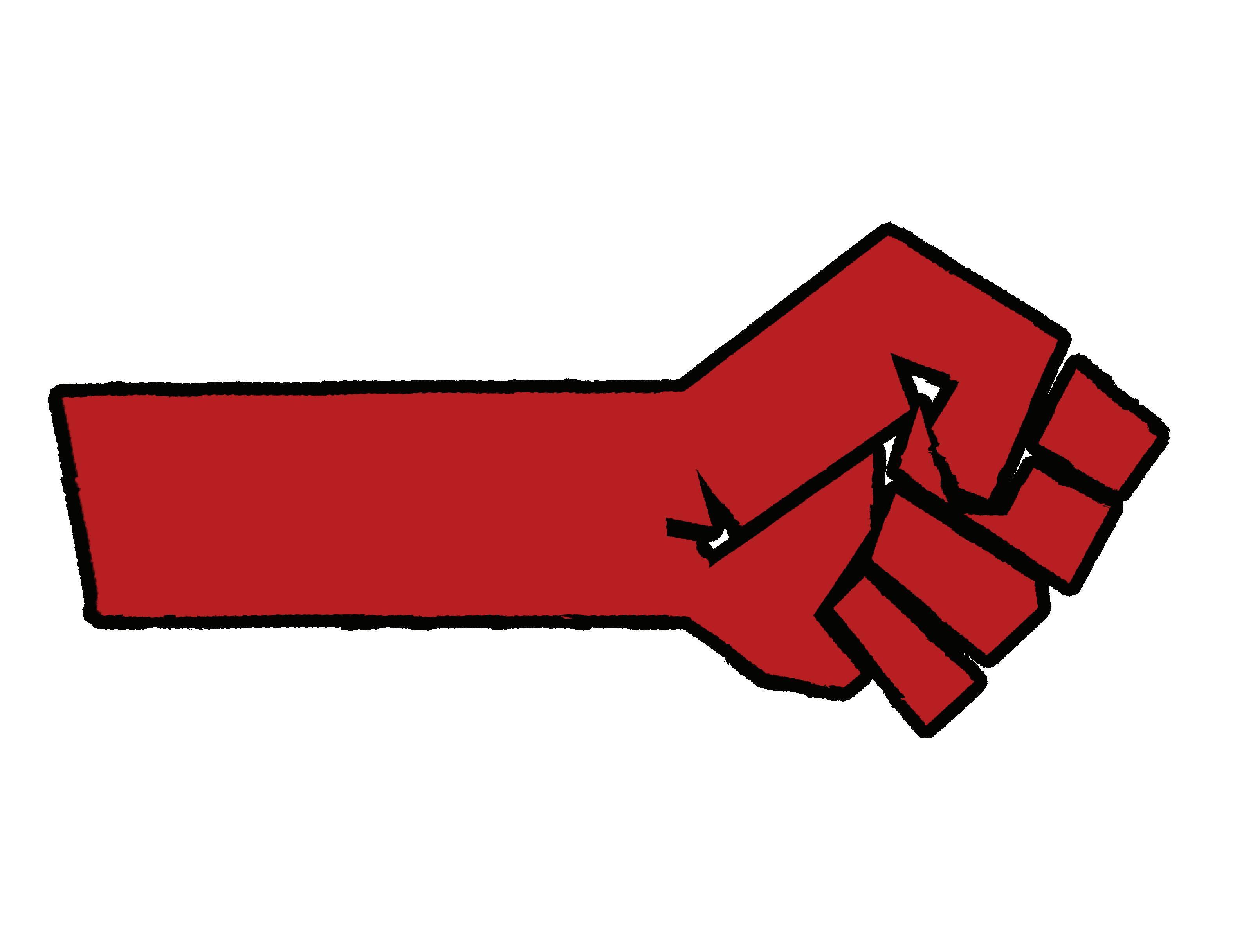
A Column by VUW International Socialists / ISO
It’s enough to make anyone feel insane. Almost two years into the current genocide Israeli soldiers and officials celebrate the destruction of Gaza, and deny the destruction of Gaza. New Zealand politicians advocate for America’s “rulesbased order” while America facilitates war crimes. Police beat and arrest Jewish activists for being “antisemitic”.
What makes a genocide on this scale possible? 100 000 tonnes of explosives dropped over two years, by a nation ten times smaller than Aotearoa. We know Israel receives more funding from the US than any country in the world, but that raises a further question: how is that much funding put in place?
Providing $228 billion in military aid to another country can only happen under certain legal and political conditions. Specifically, sales can only be approved ‘when they are consistent with the foreign policy interests of the United States’ (Arms Export Control Act 1976). In other words, warfare is the continuation of policy by other means: the bomb achieves what the briefcase cannot.
So long as Israel acts in America’s interests, the funding is likely to continue. These interests are not particularly difficult to work out. As Biden once declared, Israel is America’s ‘best investment, where we get the biggest bang for our buck.’ Especially in the age of austerity, the US would not invest billions of dollars in another country without expecting a serious benefit.
Palestine has long been seen by ruling powers as a vital economic centre: a gateway between African, Asian, and European trade routes, and a guardian of Red Sea maritime traffic. When Britain laid siege to northern Palestine in 1840, its foreign secretary lord Palmerston explained that ‘it was the duty of the Government to open new channels for the commerce of the country’.
Installing a Zionist settler colony in these lands would provide an enormous strategic benefit for the Global North: an outpost of allies armed and ready to defend their interests, without having to risk their own personnel. This was not unique to Palestine: similar arrangements had already been set up in the Falklands, Algeria, and South Africa. What is unique to the region, however, is an enormous concentration of oil. The Middle East has the largest share of oil production on the map, with fifty-one percent of known global reserves. This became especially relevant after the Second World War, when oil replaced coal as the world’s principal energy source.
As oil production expanded, anti-colonial struggles swept across the Middle East. Iran in 1951 wrested Anglo-Iranian Oil from the British. Around the same time, Egypt overthrew the British-backed monarchy and later nationalised the Suez Canal. Palestine had already seen a decades-long revolt against Zionist settlement. Ever since then Israel has been central to subduing these movements and ensuring the Global North has sustained access to oil fields, trade routes, and shipping lanes. It proved this by helping regain control of the Suez Canal in 1956, and crushing regional resistance in 1967. This is what makes the genocide possible: the endless drive for market dominance.
On the 9th of October 2023, Gazan poet and academic Refaat Alareer vowed to throw his pen at invading Israeli soldiers if it was the last thing he did. In the long months after, Israel murdered him, his family, and countless other families. Meanwhile, our incumbent politicians cannot even pick up a pen to sanction this madness. How do they live with themselves?
For the rest of us: let’s keep showing up until Palestine is free.
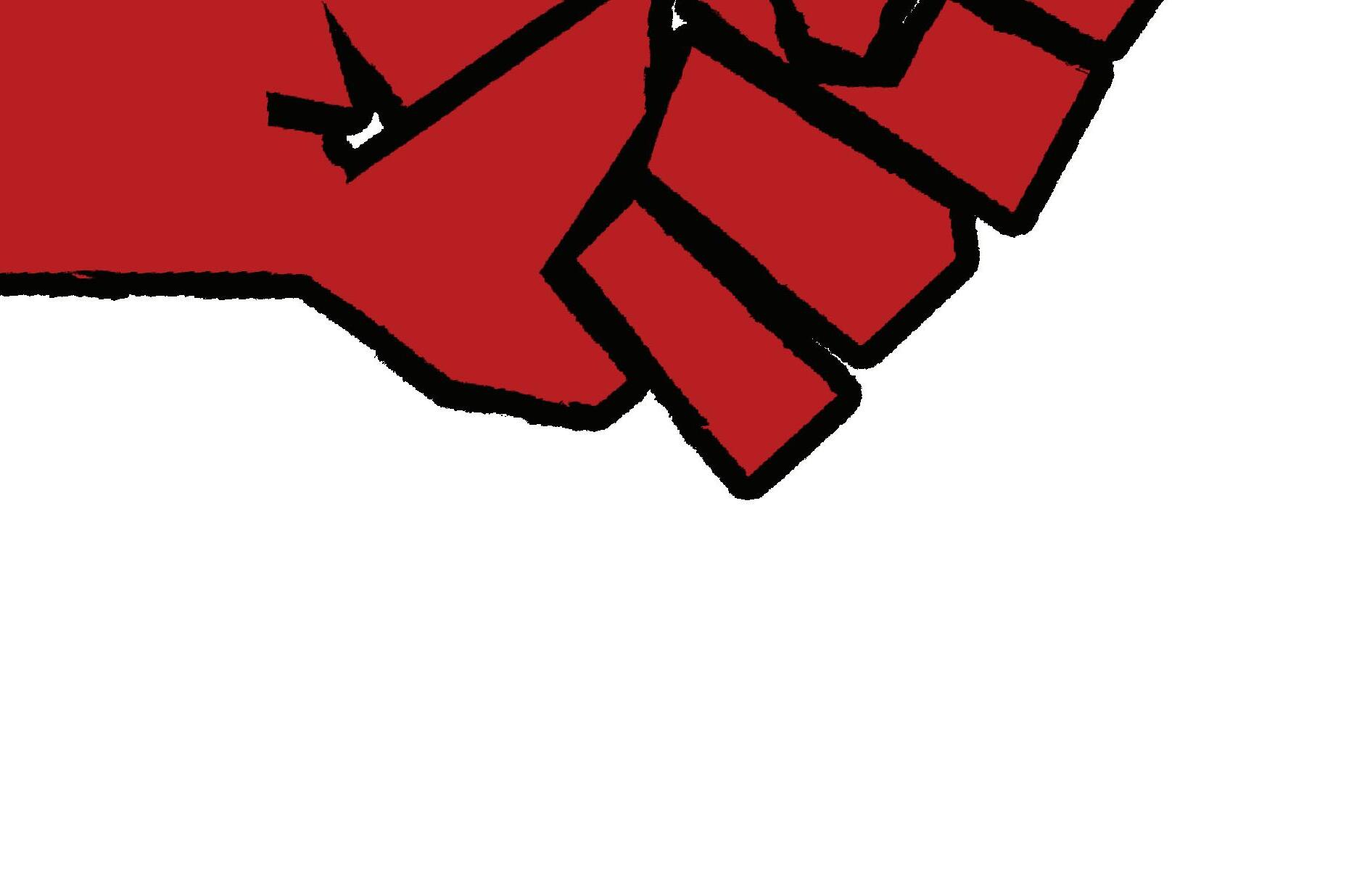

Despite being an avid book buyer, priorities, the cost of living, and a dose of common sense have forced me to halt my spending and focus on the unread stack already on my shelves.
Thankfully, I’m blessed with parents that are both avid readers and book fair regulars. They keep an eye on the local book fairs, and any time I visit during one, it becomes a multi hour affair as we peruse all the selections scanning for anything interesting, or useful. Who needs a bookstore when their parents are working on an ever-expanding library?
Williwaw , however, wasn’t found at a book fair. It’s a book I would have probably skipped over due to my own preference for fantasy titles. My father suggested it to me as I pilfered from their latest book fair haul.
Williwaw is Gore Vidal’s debut novel. Vidal was a prolific author, producing numerous novels, nonfiction, essays, and plays; much of his most recognised work is historical fiction. Williwaw isn’t even Vidal’s most interesting book; it’s just one that I particularly like.
Vidal wrote Williwaw in 1945, when he was nineteen, during his army service in the Aleutian Islands (a chainlike archipelago stretching between Alaska and Russia). It was published in 1946, and is directly inspired by his time there. Though most of the place names within the novel are fictitious, in the novel’s preface Vidal notes that military censorship was alive and well at the time of publishing, and he “had to change the names.”
The novel follows a military ship navigating storm warnings in the Aleutian Islands. During this journey, a murder takes place. I would describe this novel as men at sea having the same conversation over and over again—and I mean this without criticism. It’s the same conversation pulled from multiple perspectives, reordered and repeated.
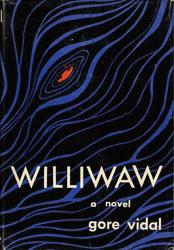
Words by: Ursula Holmes
Each chapter is broken up into multiple perspectives; readers are constantly given new information to that central conversation. This allows the reader a unique insight to each character. This structure also provides us with a distinctive and memorable look into the compelling character of Skipper Evans.
Vidal creates subtle depth in Evans, a straightforward sailor that feels annoyed with others’ performance of intelligence; Evans has a love of particular words, but lacks the understanding of them. Vidal uses Evans to make a point about situational intelligence: Evans has the correct knowledge in the correct place. He’s no word smith or great philosopher, yet his knowledge and experience is invaluable in weathering the storm.
At its core, Williwaw is a novel about power: the power passengers surrender when they step onboard, the trust crew place in each other despite personal grievances. Power can be honoured, or it can be betrayed. Vidal sets these stories side by side—one man holding true, another failing. And yes, Williwaw is also a book about a murder. The mystery is never forgotten in the lead up to the act—who kills, who dies—but it feels like the antitheses of a murder mystery. The tension is not in the act of the murder or in the suspense of a murder amongst the men. Instead, the tension lies less in the act itself than in its build-up: the claustrophobia, the repetition, the small frictions of men trapped on a ship in frigid Northern Pacific waters. As pages run out, all characters become potential perpetrators until the murderous act is completed.
Reading is a personal experience, ruled by preferences and one’s own taste. Williwaw might be a book you’ve rarely encountered, or a genre you’ve seldom been interested in. My hope is simply to stir interest and curiosity for a book that might not be exactly your cup of tea—but still worth a sip.
We’ve invited restaurants from all over Aotearoa to get creative and design their own limited-edition dumplings. Your mission?
Taste as many as you can between 19-28 September, then head online to NZClW.com to vote for your favourite. Not only do you help crown NZ’s top dumpling, but you’ll also go in the draw to score some tasty prizes!
Mark your calendars, foodies, because National Dumpling Day is back on September 26! This year, we’re leveling up the celebrations with 10 days of endless dumplings from 19–28 September, brought to you by New Zealand Chinese language Week. Why dumplings? Apart from being delicious, they’ve been part of Chinese culture for nearly 2,000 years— symbolising family, sharing, and celebration. So grab your mates and go celebrate National Dumpling Day!
Here’s how you can get in on the action:
• Try your hand at the art of dumpling making
• Create a dumpling flight with all your fave toppings
• Go on a dumpling crawl around town (check out our registered Design-a Dumpling restaurants!)
• Attend a dumpling-themed pub quiz
• Enter into our Dumpling Giveaway @nzchineselanguageweek on Insta/ Facebook

Find participating restaurants and more dumpling inspiration at www.nzclw.com/dumpling-day-2025
About the Centrefold Artist: Elias BatachEl
I’m a queer, trans, and intersex multimedia artist. A lot of my work is deeply tied to my experiences with depression and the ways I use art to process emotions and make sense of myself and the world. Creating gives me a space for expression when words feel out of reach. Right now, I’m also fundraising for top surgery. If you’d like to support me, please scan the QR code to donate.


You know how you have a flat inspection coming up? Well here at Salient we think you should ditch the cleaning and jump in the harbour instead. Once again, the weather is beautiful, the sand is shining, and your landlord can kick rocks. Do: own your messiness Don’t: text him back.
Remember that girl you ghosted? Yeah you probably shouldn't have done that… she's coming back for revenge, let's be nice this time. She just wants to be friends! Do: Play poptropica Don't: ignore the wishes of your girlfriend and her best friend
Treat yourself! Get up a little early and stop at a cafe on your way to classes; get that coffee and sweet treat, you deserve it. This week is a week for relaxing and being proud of yourself, you’re doing well, we are all noticing. Do: Netflix binges in bed Don’t: Self doubt
It’s time for a change, I think what you should do is get a tattoo. Walk down Cuba street, take a look at the flash available and just pick something! You’ll be so much cooler and sexy once you do it. Do: take out course related costs Don’t: chicken out, it is destiny.
Delete Hinge. Go back to dating manually. I would recommend giving up on men, and deleting your dating apps. Maybe buy a new boardgame and host a boardgame social night, get your friends to bring their friends. Maybe you’ll find the love of your life. Do: conversations in person. Don’t: men.
What are you doing?!? I’m not gonna lie, you keep fumbling. That ex that you left for no reason? They moved on. Go lie in a park and listen to Chappel Roan (especially The Subway), bring whimsy back into your life. Do: Be so for real Don’t: Go crawling back
This week is a week for dinner parties and hosting your friends. You’ve been wanting to hang out with your friends lately; host a potluck and have everyone over, do a powerpoint night with all of your friends, tell your friends you love them; they’ll tell you they love you back. Do: Campaign for VUWSA exec Don’t: Be cocky
Remember that old flatmate you had a falling out with? She misses you. Get coffee and chat. I'm sure you both have a lot to share! It will be very fun and not awkward; you will love eachother. Do: Text first Don’t: Over think
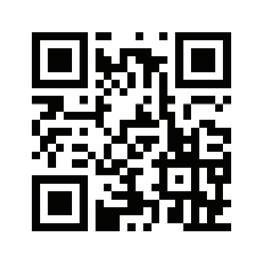
Take your headphones off and socialise with your coworkers. You are the most angelic person ever, use that to your advantage. Write something for Salient; you never know where it will lead. Do: be blunt with your flirting Don’t: give up on love.
It’s time for you to reevaluate your priorities. You need to take time for people you love. Ask someone to coffee, catch up with old friends, and start prioritising others. Do: Reach out Don’t: Hold grudges.
You know what? You should treat your girlfriend this week; take her out to the Hunger Lounge and buy her and her friends all beer and get out $2 coins for the pooltable. She will love you even more; but more importantly, so will her friends. I’m sure you can also convince them in a round of darts of two… just don’t throw any at the floor (again). Do: respect women’s hobbies Don’t: Cheap out on buying the rounds
Get on film! Whether it's watching a movie or making one! Go old school, use a VCR recorder. Try a French new wave aesthetic. Buy a pack of cigarettes and a baguette and relax. Do: Initiate Don’t: Be camera shy.
